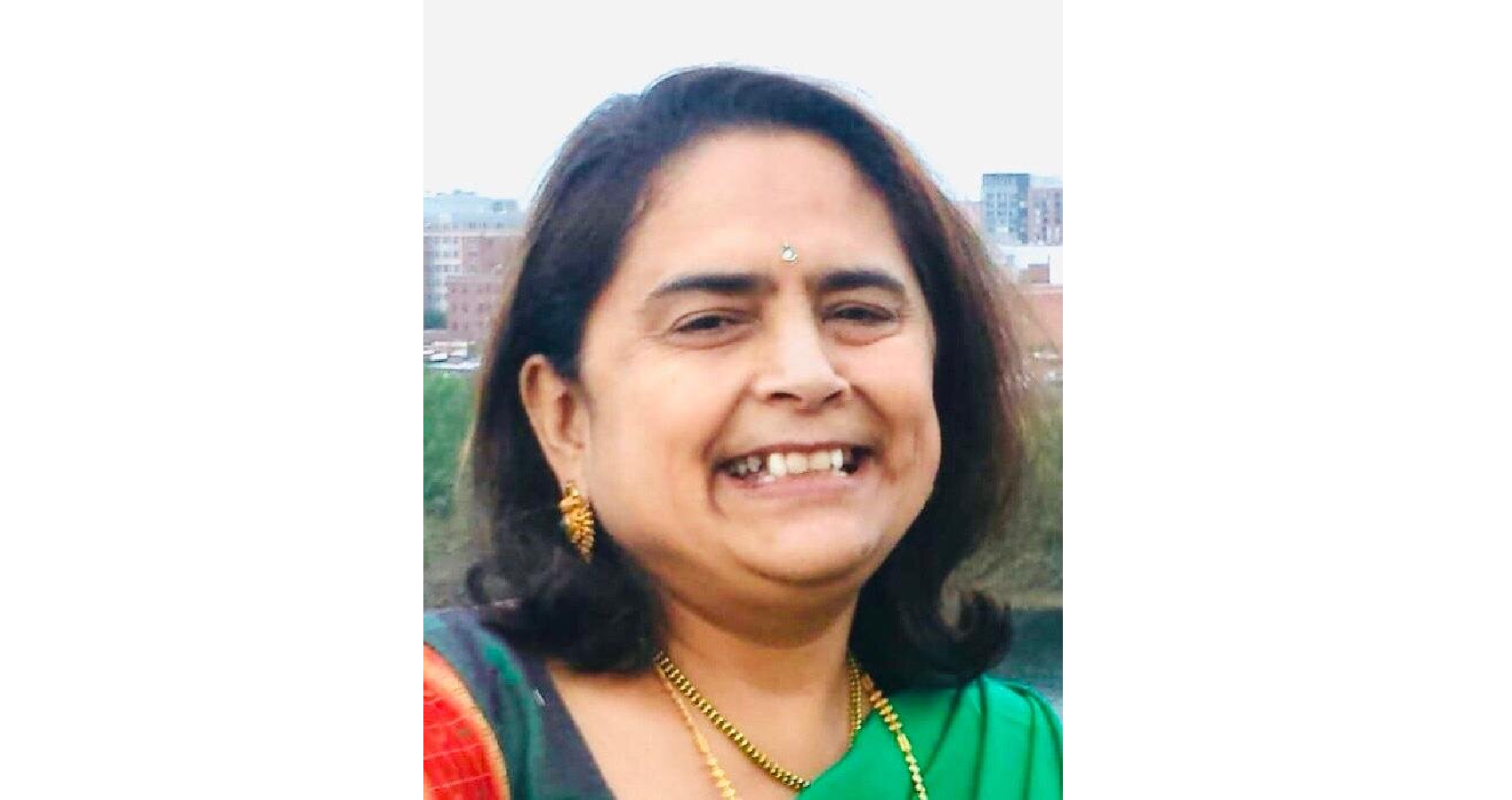Hindu Women Globally Lead By Building Communities, Taking On Positions In Organizations And Passing On Knowledge
When Sushma Dwivedi started seriously thinking about performing wedding rites and other Hindu religious blessings in New York City and elsewhere, she knew who she needed to talk to — her grandmother.
Together, they went through the mantras that are recited by pandits, the priests who perform Hindu religious rituals, to find the ones that resonated with what Dwivedi was trying to do — offer Hindu blessings and services that were welcoming of all, irrespective of gender identity, sexual orientation, race, any of it.
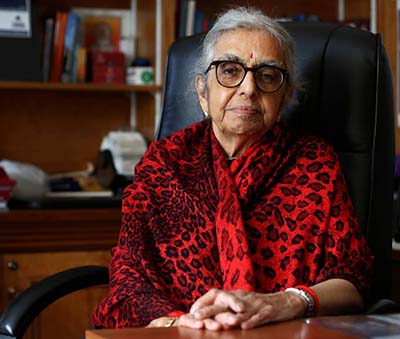 Her grandmother isn’t a pandit — in India, as well as in Indian diaspora communities, that’s been a domain that is largely populated by men, with cultural mores at play. But she had a wealth of religious knowledge, of ritual, of proper pronunciation, to share with her granddaughter.
Her grandmother isn’t a pandit — in India, as well as in Indian diaspora communities, that’s been a domain that is largely populated by men, with cultural mores at play. But she had a wealth of religious knowledge, of ritual, of proper pronunciation, to share with her granddaughter.
And that her grandmother played an integral role in Dwivedi’s understanding and practice of Hinduism reflects a larger religious reality. Those who study the religion and its traditions say that while there aren’t a lot of women priests (although that is changing in India and in other places), women in Hinduism globally continue to take on leadership roles in other ways — building communities, taking on positions in organizations, passing on knowledge.
“We just jammed together and sort of went through scriptures. … And in that sense, that’s the ‘old school’-est Hindu way on Earth, right? You pass it down,” Dwivedi said.
After all, it was through her grandparents, immigrants from India, that Dwivedi had been exposed to Hinduism while growing up in Canada. They helped build a Hindu mandir, or temple, in their Montreal community, and made the religion an integral part of her life from childhood.
Hinduism encompasses a range of practices and philosophies, and has a pantheon of divine figures encompassing both male and female. People can call themselves Hindus and yet practice in different ways from each other. There is no central authority, like an equivalent to the role the pope plays in Catholicism.
So leadership, in India as well as Indian immigrant communities, is decentralized and diverse, encompassing religious scholars, Hindu temple boards and more, said Vasudha Narayanan, a religion professor at the University of Florida who studies Hinduism in India and in the Indian diaspora. “I would also say that women sometimes create the spaces where they can be leaders in all these other ways,” she said.
Dr. Uma Mysorekar, president of the Hindu Temple Society of North America, poses for a portrait at their offices in New York City on Friday, Dec. 3, 2021. Mysorekar got involved with the temple in the mid-1980s and has been part of its administration for years, as it expanded its facilities as well as its programming. (AP Photo/Jessie Wardarski)
They’re women like Dr. Uma Mysorekar, who serves as president of the Hindu Temple Society of North America. It runs one of the oldest Hindu temples in the United States in the Flushing section of New York City’s Queens borough.
Mysorekar, trained as a physician, got involved with the temple in the mid-1980s, and has been part of its administration for years, as it expanded its facilities as well as its programming. There are programs for seniors as well as young adults; the temple kitchen is available on food delivery apps.
Being an administrator wasn’t her intention when she started, Mysorekar said. “I didn’t get involved to become a president. But when the circumstances were forced in, I did accept that challenge.” She’s convinced that in Hinduism, women can be leaders simply by virtue of their ability to communicate the faith to others, notably to children.
“How many women have led … going back to times immemorial, and what they have contributed, it should give you that exemplary feeling,” she said. “It’s not that women have to be priests to be leaders, women have to be able to spread the teachings.”
And in this modern age, when so much vital activity occurs online, women are making a difference there, too, said Dheepa Sundaram, assistant professor of Hindu studies, critical theory and digital religion at the University of Denver (and a contributor to Religion News Service).
“If you look at social media spaces, you see a lot of women leading different kinds of groups now,” she said.
She pointed to shubhpuja.com as an example, a site co-founded by a woman, Saumya Vardhan, that allows people all over the world to connect with pandits in India, who perform pujas, the religious rituals, that can be seen via videoconferencing.
“We’re seeing women carve out different spaces in the spirituality ecosystem to find a way to actually gain power in that ecosystem,” she said.
And there are examples of women making inroads even when it comes to being pandits, of pushing back against patriarchal restraints.
Manisha Shete, a practicing Hindu priest, smiles as she performs posthumous rituals for her client’s mother at a residence in Pune, India, Wednesday, Oct. 20, 2021. Shete, who first began to officiate at religious ceremonies in 2008, said demand is growing and “people have started accepting women priests.” (AP Photo/Abhijit Bhatlekar)
Manisha Shete, 51, a female priest who has been working as the coordinator at Jnana Prabodhini, a Hindu reformist school in Pune in western India that trains men and women to perform rituals, first began to officiate at religious ceremonies in 2008.
Her aspirations stemmed in part from an interest in India’s ancient scriptures; after getting married, she studied “After my wedding, I studied Indology — the history, culture, languages and literature of India. During my research work at the Sanskrit language department in Jnana Prabodhini … I felt that I can do this and I should do it. It was my favorite subject,” Shete told The Associated Press.
Shete said at her school in Pune, where the course for the priesthood can extend up to 18 months, 80% of the students were women, including many who had been housewives and many others who voluntarily their jobs to enter the school.
She said the demand for female priests is growing in urban areas, especially among young women, and she often gets requests even from Indian families overseas to conduct rituals. “People have started accepting women priests. Every reform comes with some obstacles. But it is happening.”

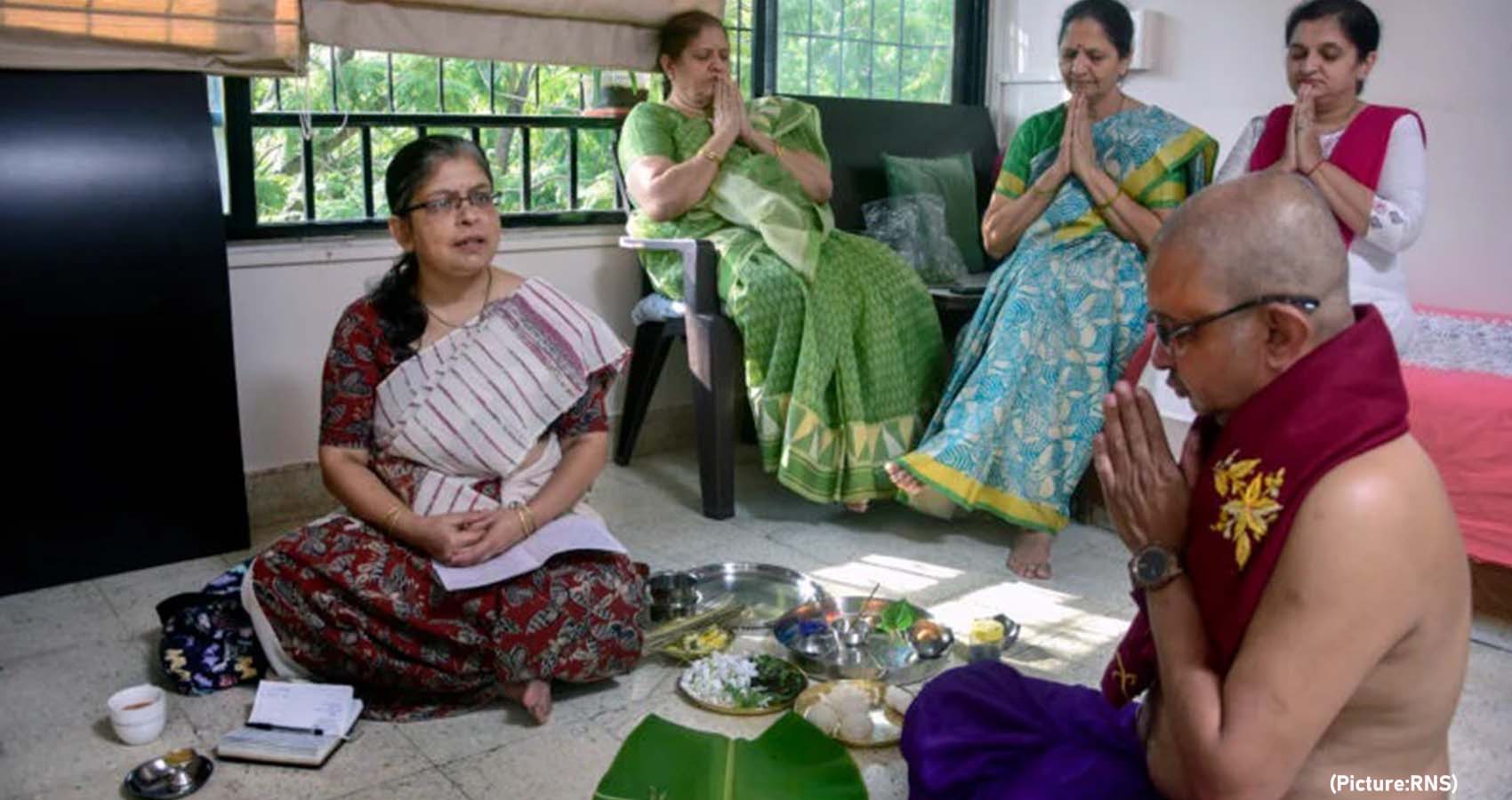
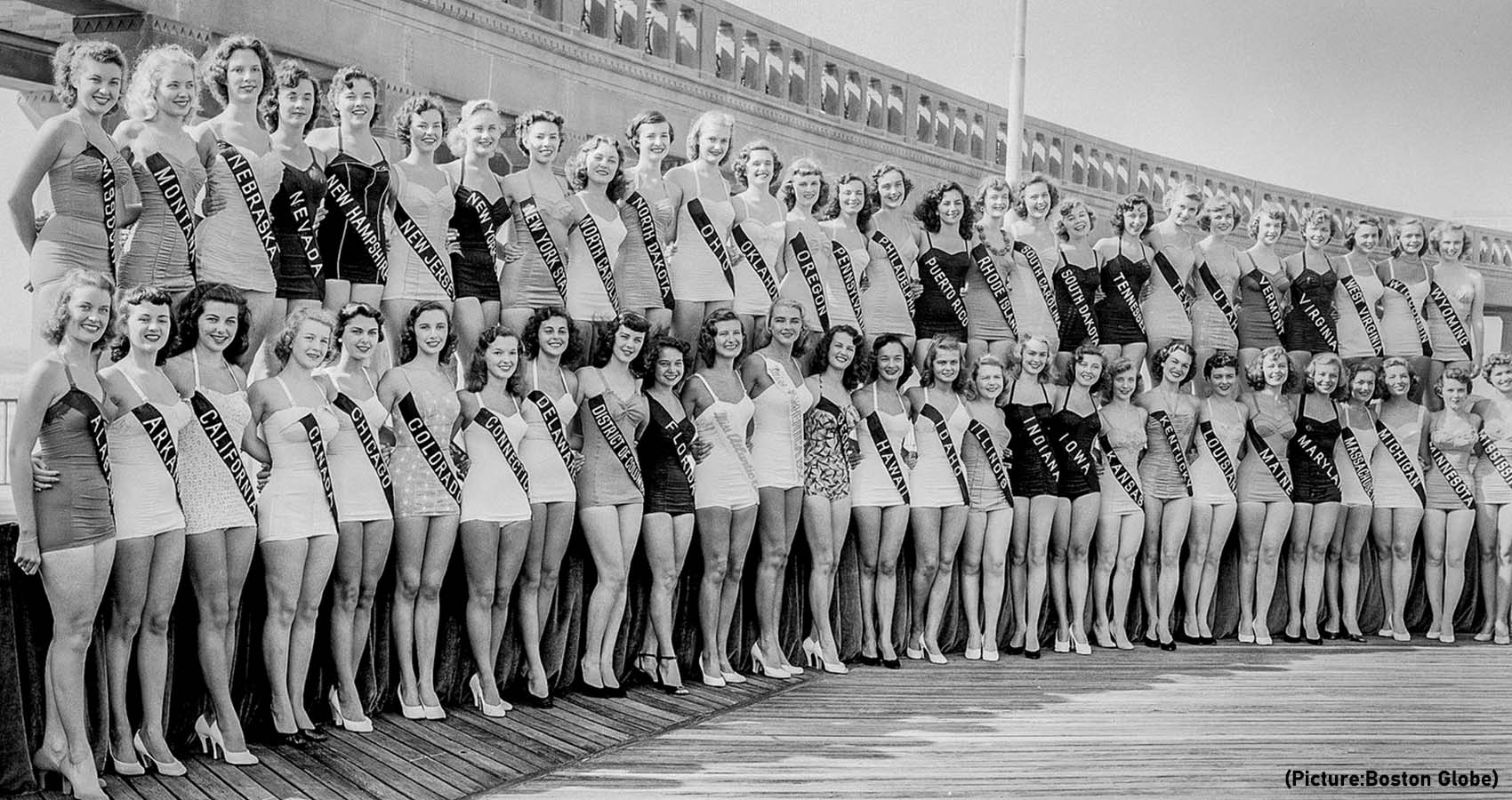
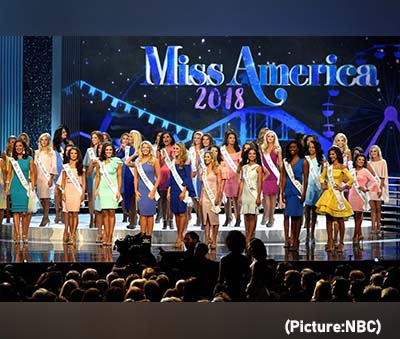 Faithful Miss America organizers and enthusiasts contend the annual ritual is here to stay and will keep changing with the times. And even though they may not have indeed devised a plan for world peace, many participants say the organization — a large provider of scholarship assistance to young women — has been life-altering, opening doors for them professionally and personally. Others should have the same opportunities, they say.
Faithful Miss America organizers and enthusiasts contend the annual ritual is here to stay and will keep changing with the times. And even though they may not have indeed devised a plan for world peace, many participants say the organization — a large provider of scholarship assistance to young women — has been life-altering, opening doors for them professionally and personally. Others should have the same opportunities, they say. Miss America President and CEO Shantel Krebs, a former South Dakota secretary of state who does not take a salary, contends the Miss America organization is “committed to diversity, equity and inclusion.”
Miss America President and CEO Shantel Krebs, a former South Dakota secretary of state who does not take a salary, contends the Miss America organization is “committed to diversity, equity and inclusion.”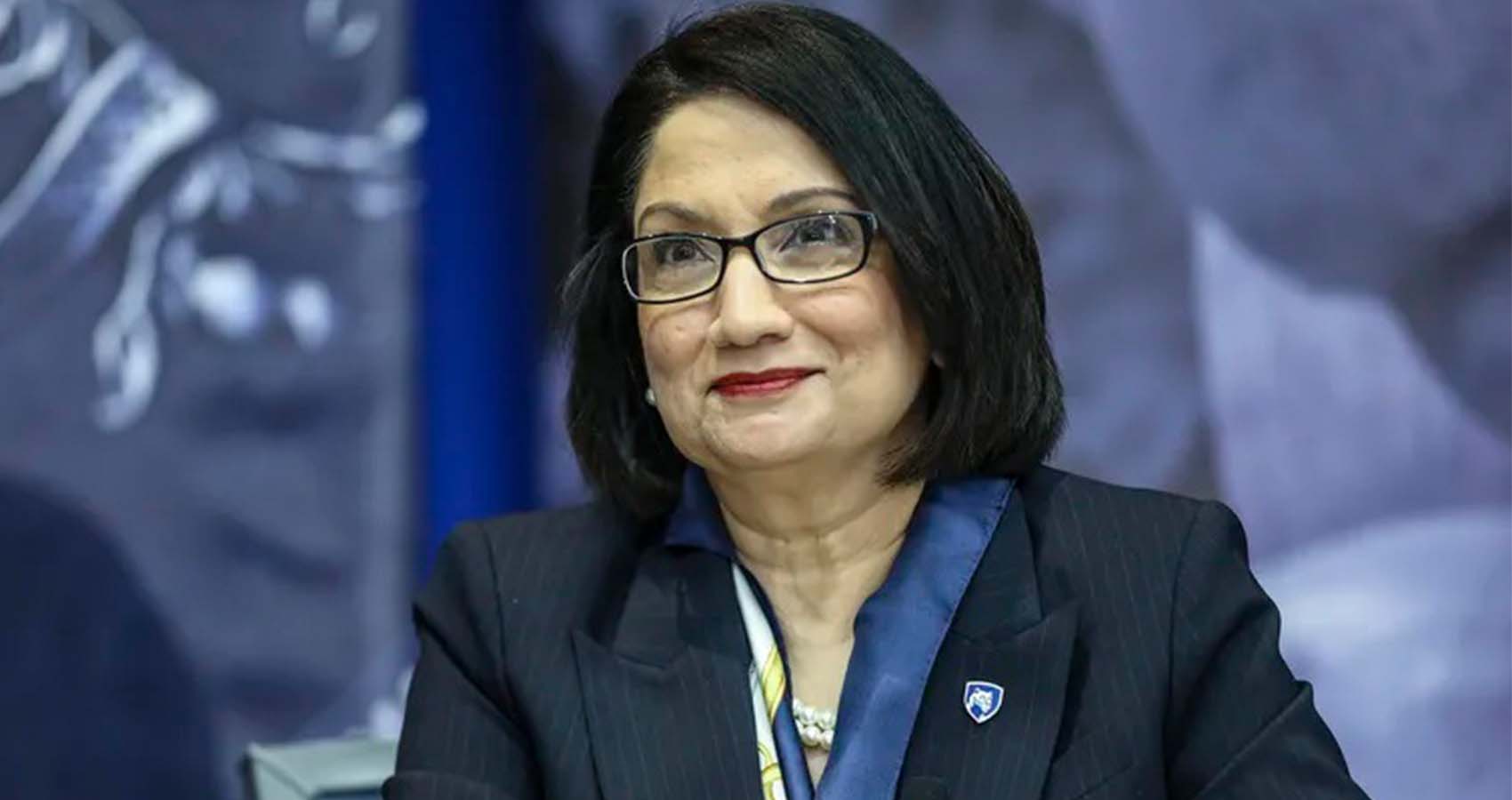
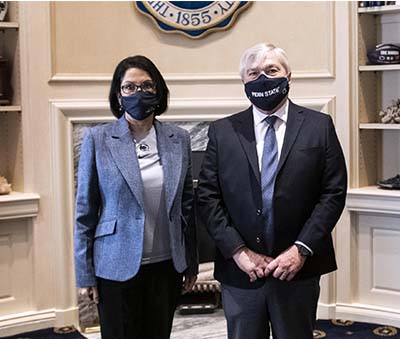 “Penn State is a world-class university, and I couldn’t be prouder and more excited to join this vibrant community of outstanding students, faculty, staff and alumni throughout the commonwealth and beyond.”
“Penn State is a world-class university, and I couldn’t be prouder and more excited to join this vibrant community of outstanding students, faculty, staff and alumni throughout the commonwealth and beyond.”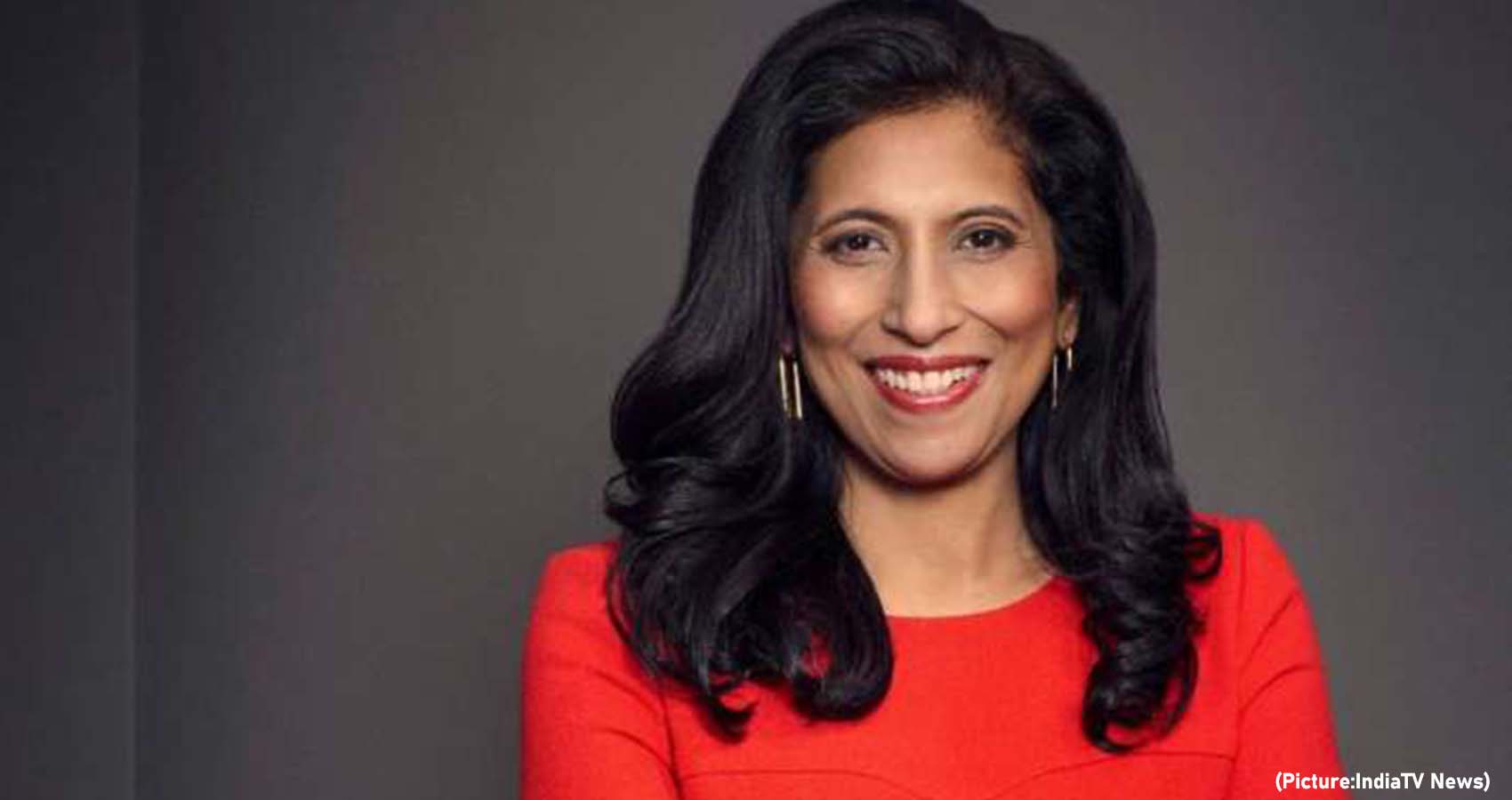
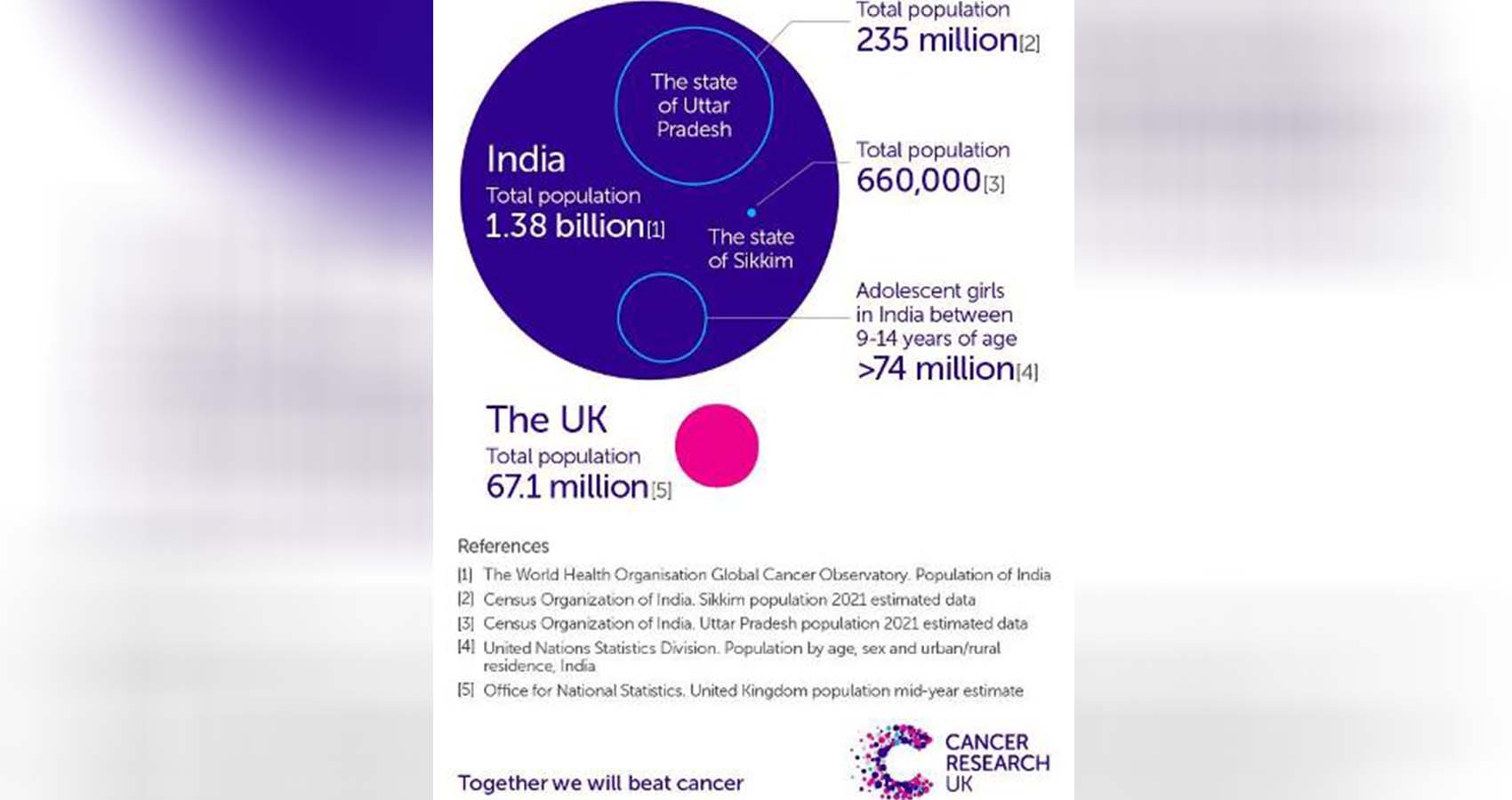
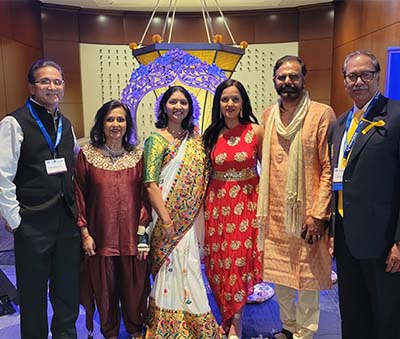 According to The American Cancer Society, Cervical Cancer was once one of the most common causes of cancer death for American women. The cervical cancer death rate dropped significantly with the increased use of the Pap test for screening. Cervical cancer is among a number of cancers that can be caused by infections with pathogens – bacteria, viruses, and parasites.
According to The American Cancer Society, Cervical Cancer was once one of the most common causes of cancer death for American women. The cervical cancer death rate dropped significantly with the increased use of the Pap test for screening. Cervical cancer is among a number of cancers that can be caused by infections with pathogens – bacteria, viruses, and parasites.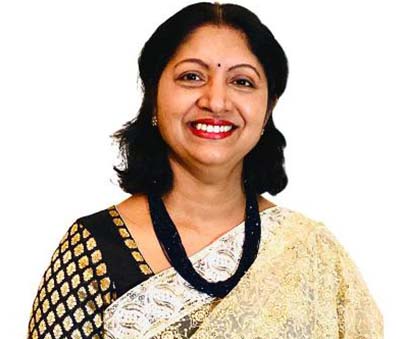 Dr. Anjana Samadder, Vice President of AAPI, said, “In addition to Cervical cancer, GHS 2022 will also focus on: Chronic diseases which can be prevented- notably diabetes, cardiovascular, hypertension, COPD, oncology, maternal and infant mortality, Mmanagement of neurological emergencies ENLS a certification course are only some of those that are going to be covered during this Summit.”
Dr. Anjana Samadder, Vice President of AAPI, said, “In addition to Cervical cancer, GHS 2022 will also focus on: Chronic diseases which can be prevented- notably diabetes, cardiovascular, hypertension, COPD, oncology, maternal and infant mortality, Mmanagement of neurological emergencies ENLS a certification course are only some of those that are going to be covered during this Summit.”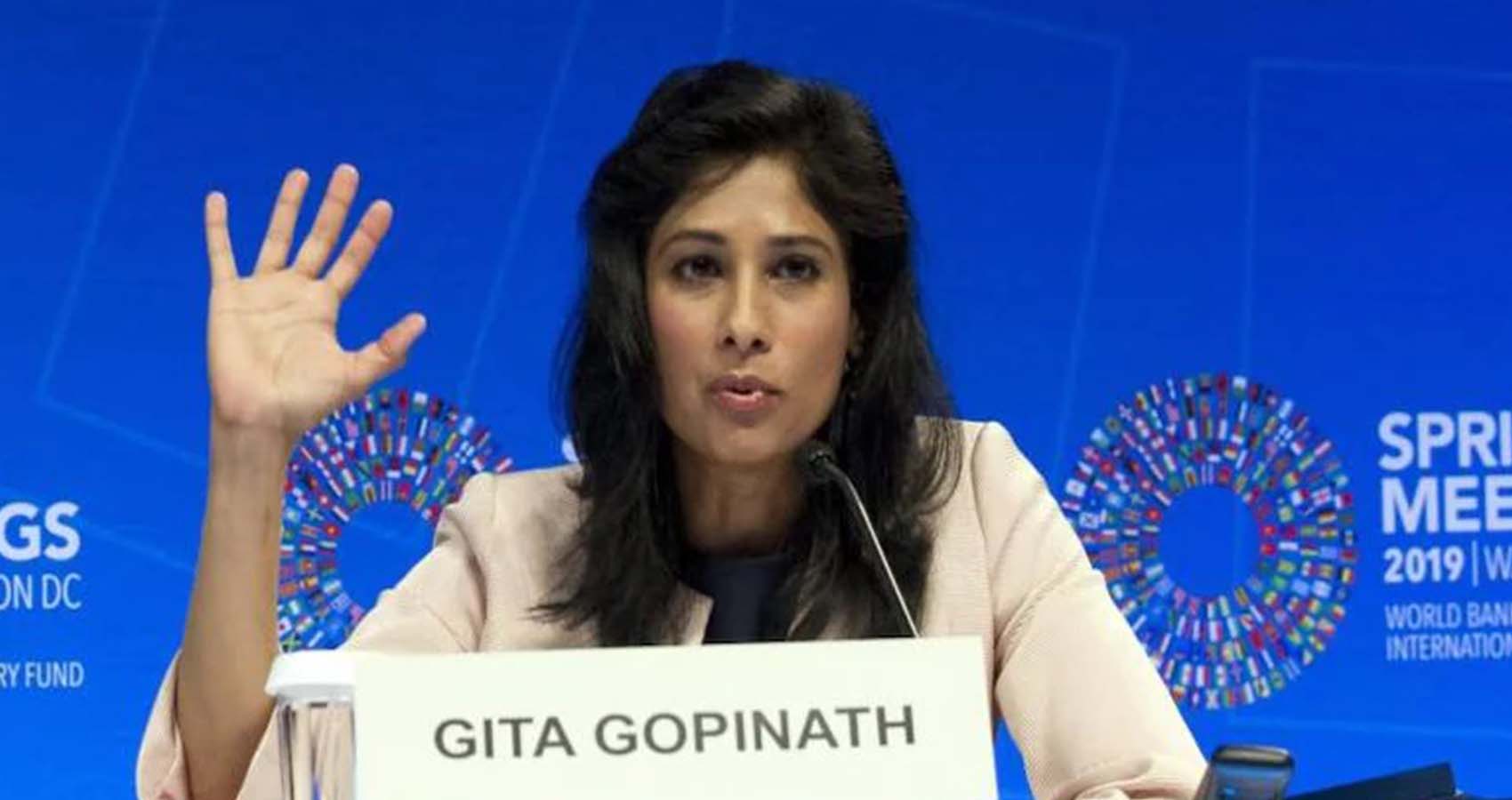
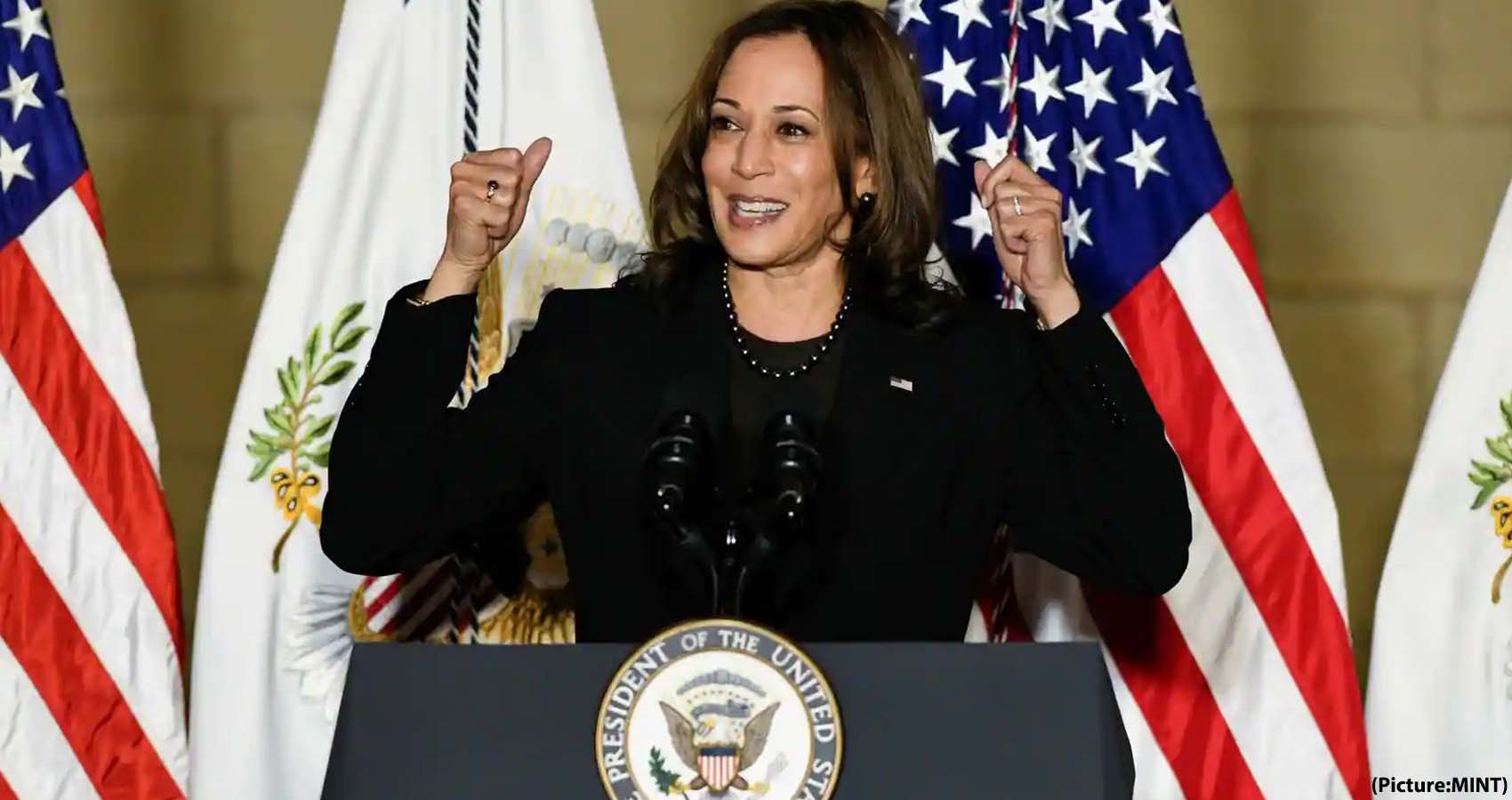
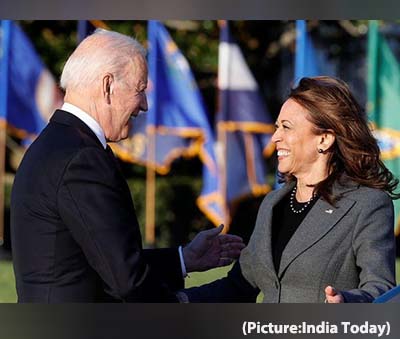 Pursuant to the 25th Amendment to the Constitution, Biden signed a letter to the president pro tempore of the Senate and the speaker of the House of Representatives saying he is unable to discharge his duties while under anesthesia, making Harris the acting president, and will send them another letter upon the conclusion of the procedure to resume his duties.
Pursuant to the 25th Amendment to the Constitution, Biden signed a letter to the president pro tempore of the Senate and the speaker of the House of Representatives saying he is unable to discharge his duties while under anesthesia, making Harris the acting president, and will send them another letter upon the conclusion of the procedure to resume his duties.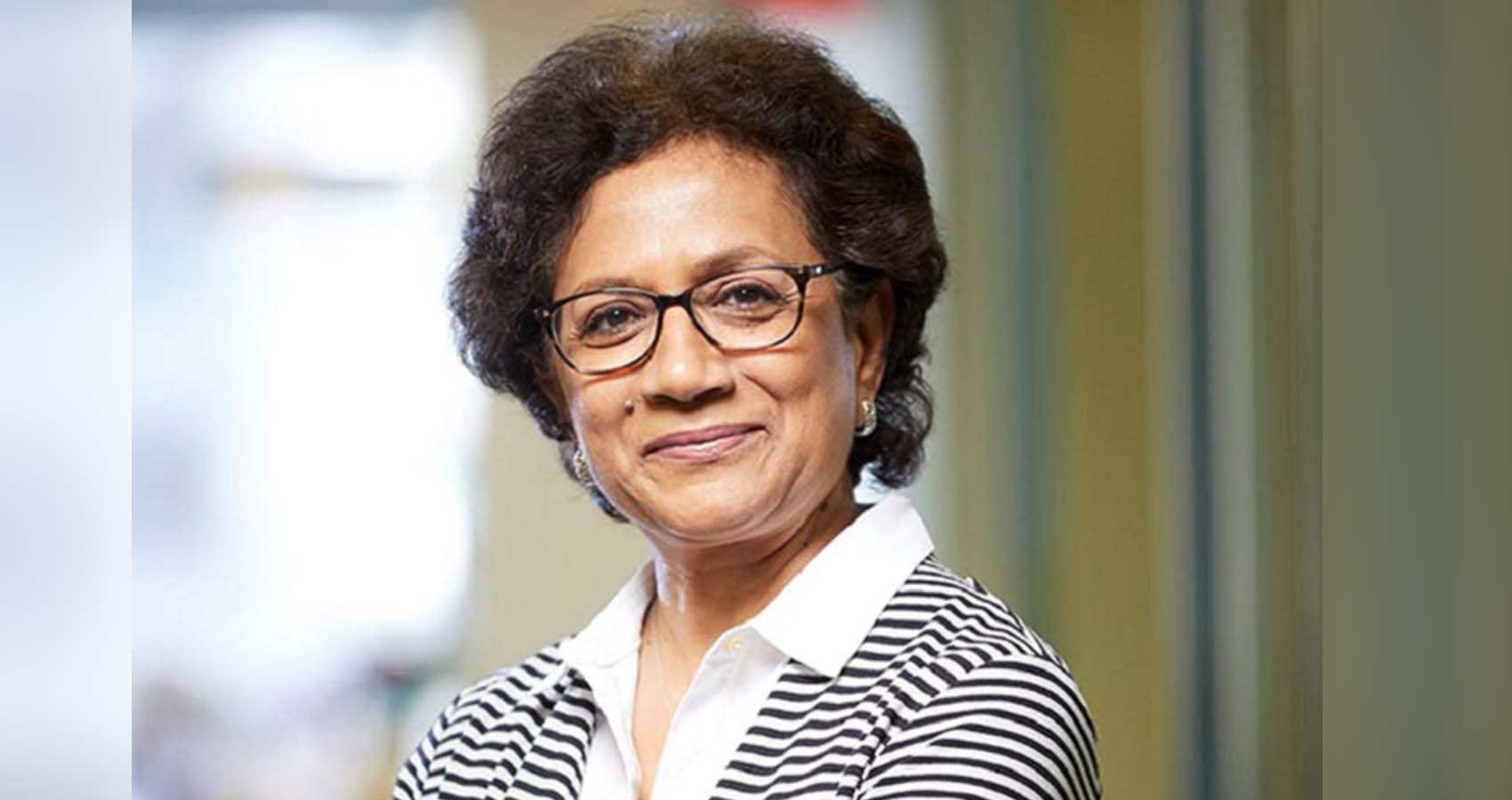
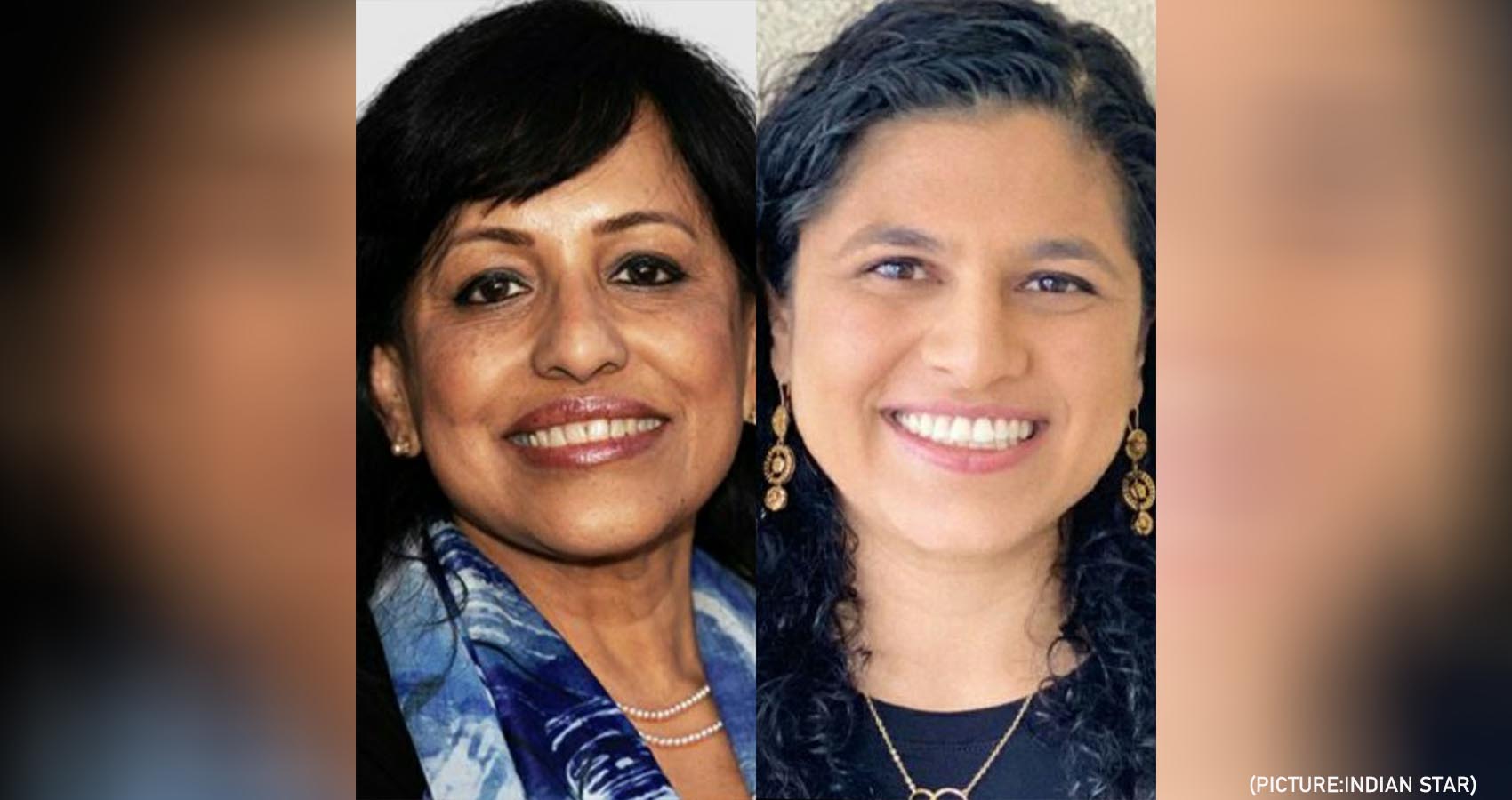

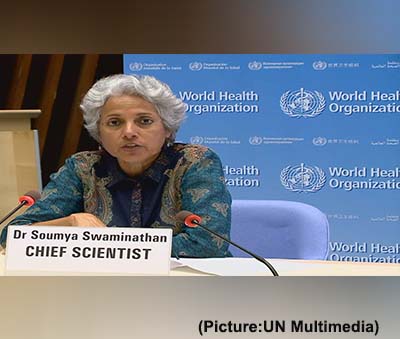 “Vaccination is just one tool. It’s not a silver bullet,” she told DW. “Vaccines are very effective against protecting against severe disease…But vaccines are not 100% effective against infection.”
“Vaccination is just one tool. It’s not a silver bullet,” she told DW. “Vaccines are very effective against protecting against severe disease…But vaccines are not 100% effective against infection.”
 Yousafzai’s parents, Ziauddin Yousafzai and Toor Pekai Yousafzai, shared their excitement along with some photos by Malala’s friend, photographer Malin Fezehai. “It is beyond words,” Ziauddin Yousafzai
Yousafzai’s parents, Ziauddin Yousafzai and Toor Pekai Yousafzai, shared their excitement along with some photos by Malala’s friend, photographer Malin Fezehai. “It is beyond words,” Ziauddin Yousafzai 
 Assistant U.S. Attorney Sarala Vidya Nagala, a career prosecutor, was among several of President Joe Biden’s nominees to be confirmed last week. The 38-year old Nagala was born in North Dakota and educated in Stanford University and University of California.
Assistant U.S. Attorney Sarala Vidya Nagala, a career prosecutor, was among several of President Joe Biden’s nominees to be confirmed last week. The 38-year old Nagala was born in North Dakota and educated in Stanford University and University of California.

 It took place amid tight security on what was her 70th birthday and was attended by only around 50 guests — mostly family members — due to the Covid-19 pandemic.
It took place amid tight security on what was her 70th birthday and was attended by only around 50 guests — mostly family members — due to the Covid-19 pandemic.
 Anand, 54, will replace long-time defense minister Indian-origin Harjit Sajjan, whose handling of the military sexual misconduct crisis has been under criticism.
Anand, 54, will replace long-time defense minister Indian-origin Harjit Sajjan, whose handling of the military sexual misconduct crisis has been under criticism.
 The hearings will take place one month before the Supreme Court is set to hear arguments in another pivotal abortion case, Dobbs v. Jackson Women’s Health, which directly challenges the abortion-rights precedent established in 1973 under Roe v. Wade. The court announced on Friday its decision to hear arguments over whether the Biden administration had the right to sue to end enforcement of the law, Sotomayor indicated that she
The hearings will take place one month before the Supreme Court is set to hear arguments in another pivotal abortion case, Dobbs v. Jackson Women’s Health, which directly challenges the abortion-rights precedent established in 1973 under Roe v. Wade. The court announced on Friday its decision to hear arguments over whether the Biden administration had the right to sue to end enforcement of the law, Sotomayor indicated that she 
 Tanden has been
Tanden has been 
 Tamannah, who topped as the tenth most influential social media star, expressed her happiness over achieving the feat. The actress also shares the credit with her fans and followers, who she thinks is the main reason behind her success. Forbes India considered the Instagram activity of celebrities from Telugu, Tamil, Kannada, and Malayalam film industries over the most recent 25 posts. The influence is represented through Qoruz Score, using a digital tool which calculates the score based on the likes, number of followers, video views, and other social media activity.
Tamannah, who topped as the tenth most influential social media star, expressed her happiness over achieving the feat. The actress also shares the credit with her fans and followers, who she thinks is the main reason behind her success. Forbes India considered the Instagram activity of celebrities from Telugu, Tamil, Kannada, and Malayalam film industries over the most recent 25 posts. The influence is represented through Qoruz Score, using a digital tool which calculates the score based on the likes, number of followers, video views, and other social media activity.
 In early October, Ayyub was rushed to the hospital in the middle of the night with a suspected heart attack. She remembers screaming to doctors in her hospital bed: “I’m dying.” The scare turned out to be a palpitation, and she was prescribed blood pressure medication. “It happened because I was fearful of my life,” Ayyub, 37, says in a phone interview with TIME two weeks later. “I was just tired of this existence.”
In early October, Ayyub was rushed to the hospital in the middle of the night with a suspected heart attack. She remembers screaming to doctors in her hospital bed: “I’m dying.” The scare turned out to be a palpitation, and she was prescribed blood pressure medication. “It happened because I was fearful of my life,” Ayyub, 37, says in a phone interview with TIME two weeks later. “I was just tired of this existence.”
 After Apple CEO Tim Cook set the tone late on Monday, Susmita Dutta who is engineering program manager for SoC (system-on-chip) for audio products, introduced the next-generation AirPods, featuring spatial audio, industry-leading sound, longer battery life and an all-new design during the ‘Unleashed’ event at Apple Park in Cupertino, California.
After Apple CEO Tim Cook set the tone late on Monday, Susmita Dutta who is engineering program manager for SoC (system-on-chip) for audio products, introduced the next-generation AirPods, featuring spatial audio, industry-leading sound, longer battery life and an all-new design during the ‘Unleashed’ event at Apple Park in Cupertino, California.
 Cardinal Pietro Parolin, the Vatican’s secretary of state, read the pontiff’s message by video to a special two-day gathering in Milan of the Women’s Forum for the Economy & Society, founded by Publicis public relations to highlight women’s voices in government and diplomacy. The forum is taking place days before the summit in Rome of the heads of state of the world’s largest economies. Before the event,
Cardinal Pietro Parolin, the Vatican’s secretary of state, read the pontiff’s message by video to a special two-day gathering in Milan of the Women’s Forum for the Economy & Society, founded by Publicis public relations to highlight women’s voices in government and diplomacy. The forum is taking place days before the summit in Rome of the heads of state of the world’s largest economies. Before the event, 
 The two took to Instagram to share the news with their fans. They captioned the post, “YA GIRLS MADE IT TO A BILLBOARD IN TimesSquare ???? This day will always be remembered. #SuPraInNY ?? Thank you @spotify and @spotifyindia for making this possible! Big love to our @vyrloriginals fam and @bandbaaja ????”
The two took to Instagram to share the news with their fans. They captioned the post, “YA GIRLS MADE IT TO A BILLBOARD IN TimesSquare ???? This day will always be remembered. #SuPraInNY ?? Thank you @spotify and @spotifyindia for making this possible! Big love to our @vyrloriginals fam and @bandbaaja ????”
 Describing Domestic Violence as “a serious public health concern” Dr. Anupama Gotimukula, President of AAPI, in her welcome address said, “October is Domestic Awareness Month. Nearly one in four women and one in seven men in the U.S. have experienced physical violence at the hands of their domestic partners, according to the U.S. Centers for Disease Control and Prevention. The very important discussion today with an experts panel is aimed at helping AAPI members and the larger society to learn on ways to help promote healthy, respectful and nonviolent relationships.”
Describing Domestic Violence as “a serious public health concern” Dr. Anupama Gotimukula, President of AAPI, in her welcome address said, “October is Domestic Awareness Month. Nearly one in four women and one in seven men in the U.S. have experienced physical violence at the hands of their domestic partners, according to the U.S. Centers for Disease Control and Prevention. The very important discussion today with an experts panel is aimed at helping AAPI members and the larger society to learn on ways to help promote healthy, respectful and nonviolent relationships.” Dr. Preeti Saran, Domestic Violence Survivor and currently practicing Family Medicine & Obesity Specialist at RNJ Barnabas Hospital, New Jersey, pointed out that Domestic Violence is prevalent in all parts of the world. Sharing her own life’s challenges and abuses, Dr. Saran said, “Coming from very traditional society back in India, initially I thought it was happening to me because of my background.” Married to a dominant person, who was demanding, but suspicious and with trust issues, she had suffered immensely with insecurity and complexities of married life with intimidation and fearful for her own life. But she was able to turn her life around and has made a positive impact in the society. “Now, I am to reach out to other women who need support,” she said.
Dr. Preeti Saran, Domestic Violence Survivor and currently practicing Family Medicine & Obesity Specialist at RNJ Barnabas Hospital, New Jersey, pointed out that Domestic Violence is prevalent in all parts of the world. Sharing her own life’s challenges and abuses, Dr. Saran said, “Coming from very traditional society back in India, initially I thought it was happening to me because of my background.” Married to a dominant person, who was demanding, but suspicious and with trust issues, she had suffered immensely with insecurity and complexities of married life with intimidation and fearful for her own life. But she was able to turn her life around and has made a positive impact in the society. “Now, I am to reach out to other women who need support,” she said.
 She further said, “I have always appreciated frankness. There is no need to speak to me through the media. So let us all have a free and honest discussion. But what should get communicated outside the four walls of this room is the collective decision of the CWC.”
She further said, “I have always appreciated frankness. There is no need to speak to me through the media. So let us all have a free and honest discussion. But what should get communicated outside the four walls of this room is the collective decision of the CWC.”
 It has been reported that President Biden will meet with Francis on October 29th. While serving as the U.S. Vice President, Biden had met with Pope Francis for the first time in September 2015, when the pope visited the United States to attend the World Meeting of Families in Philadelphia.
It has been reported that President Biden will meet with Francis on October 29th. While serving as the U.S. Vice President, Biden had met with Pope Francis for the first time in September 2015, when the pope visited the United States to attend the World Meeting of Families in Philadelphia. Francis’ private meeting with Pelosi, a Catholic and a defender of abortion rights, came as American Catholic bishops consider how to press the church’s teaching against abortion while the country’s second Catholic president, Joe Biden, heads an avowedly pro-choice Democratic administration
Francis’ private meeting with Pelosi, a Catholic and a defender of abortion rights, came as American Catholic bishops consider how to press the church’s teaching against abortion while the country’s second Catholic president, Joe Biden, heads an avowedly pro-choice Democratic administration The speaker, in her statement on the meeting, emphasized the pontiff’s support for measures to combat climate change. “His Holiness’s encyclical Laudato Si’ is a powerful challenge to the global community to act decisively on the climate crisis with special attention to the most vulnerable communities.” She went on to praise “the immense moral clarity and urgency that His Holiness continues to bring to the climate crisis.”
The speaker, in her statement on the meeting, emphasized the pontiff’s support for measures to combat climate change. “His Holiness’s encyclical Laudato Si’ is a powerful challenge to the global community to act decisively on the climate crisis with special attention to the most vulnerable communities.” She went on to praise “the immense moral clarity and urgency that His Holiness continues to bring to the climate crisis.”
 Calling it an inspiring story, Kajol, 47, captioned the picture as, “So happy to announce my next film with the super awesome Revathi directing me.. called ‘The Last Hurrah’. A heartwarming story that made me instantly say YES! Can I hear a “Yipppeee” please.
Calling it an inspiring story, Kajol, 47, captioned the picture as, “So happy to announce my next film with the super awesome Revathi directing me.. called ‘The Last Hurrah’. A heartwarming story that made me instantly say YES! Can I hear a “Yipppeee” please.
 Access, ownership and use of digital tools are not gender-neutral
Access, ownership and use of digital tools are not gender-neutral
 Here are details about the upcoming song: Durga Maa Elo Re is a Bengali dance number and the first in that language for Juju. The song is a tribute to the Goddess Durga and celebrates the joyful Dussehra season. In addition to Juju’s melodious singing, the song is a visual treat, featuring Bengali actress Tina Dutta.
Here are details about the upcoming song: Durga Maa Elo Re is a Bengali dance number and the first in that language for Juju. The song is a tribute to the Goddess Durga and celebrates the joyful Dussehra season. In addition to Juju’s melodious singing, the song is a visual treat, featuring Bengali actress Tina Dutta.
 Saini, who has been recognized by several organizations and states and world renowned persons for her work and is aspiring to be an actor, told this writer during a recent interview “I am now “Miss World America Washington,” which is preliminary to Miss World America and Miss World! Miss World Titles have been won by Aishwarya Rai and Priyanka Chopra. It’s the largest and the most philanthropic pageant, having raised 1.3 billion dollars for charities around the world. And I want to promote the many charitable initiatives this noble organization does all around the world.”
Saini, who has been recognized by several organizations and states and world renowned persons for her work and is aspiring to be an actor, told this writer during a recent interview “I am now “Miss World America Washington,” which is preliminary to Miss World America and Miss World! Miss World Titles have been won by Aishwarya Rai and Priyanka Chopra. It’s the largest and the most philanthropic pageant, having raised 1.3 billion dollars for charities around the world. And I want to promote the many charitable initiatives this noble organization does all around the world.” Instead of giving up, Shree Saini went back to dance class with her left arm tied up in a cast and practiced up to 6 hours a day in order to regain her strength. Saini noted on media that even though “dance is a very competitive, cut-throat, high stakes sport”, she wants to “encourage teachers, students, parents to always be uplifting, emphatic, especially when it’s difficult. Real Love takes courage.”
Instead of giving up, Shree Saini went back to dance class with her left arm tied up in a cast and practiced up to 6 hours a day in order to regain her strength. Saini noted on media that even though “dance is a very competitive, cut-throat, high stakes sport”, she wants to “encourage teachers, students, parents to always be uplifting, emphatic, especially when it’s difficult. Real Love takes courage.” Being uprooted from one’s culture and dear ones was undoubtedly a major challenge. She had to experience hardships while in high school, where she was bullied. Young Shree fought bravely a heart ailment which required her to use a pacemaker. Shree, who had a pacemaker implanted at the age of 12 and was told that she would never be able to dance, is an inspiration for all. “I practice dance almost every day for several hours,” Shree says, pointing to the pacemaker she carries with her all the time.
Being uprooted from one’s culture and dear ones was undoubtedly a major challenge. She had to experience hardships while in high school, where she was bullied. Young Shree fought bravely a heart ailment which required her to use a pacemaker. Shree, who had a pacemaker implanted at the age of 12 and was told that she would never be able to dance, is an inspiration for all. “I practice dance almost every day for several hours,” Shree says, pointing to the pacemaker she carries with her all the time.
 Progressives claimed victory after a planned infrastructure vote was delayed following their united front to oppose the $1 trillion bill without assurances about the fate of the accompanying Democratic spending plan last week. The move highlighted the growing power of leftwing Democrats, and sent a strong message to the rest of their party: You can’t get one bill without the other. West Virginia senator Manchin and his fellow holdout Kyrsten Sinema of Arizona might hold the cards in the 50-50 US Senate, but in the lower chamber at least the progressives were in the driving seat.
Progressives claimed victory after a planned infrastructure vote was delayed following their united front to oppose the $1 trillion bill without assurances about the fate of the accompanying Democratic spending plan last week. The move highlighted the growing power of leftwing Democrats, and sent a strong message to the rest of their party: You can’t get one bill without the other. West Virginia senator Manchin and his fellow holdout Kyrsten Sinema of Arizona might hold the cards in the 50-50 US Senate, but in the lower chamber at least the progressives were in the driving seat. The move illuminated how the newly powerful progressive movement can shape the way Biden’s agenda moves through Congress, with the power to delay or even block some moderate priorities. The progressive movement has been building in influence and organizing capacity since 2016, when Sanders’ insurgent presidential campaign breathed new life into the grassroots left. The progressive caucus has frequently threatened to withhold votes over ideological differences with more moderate Democrats, but usually failed to actually stop a major agenda item. Now, the once-fledgling progressive wing of the Democratic party has become a political force strong enough to resist the will of moderates and its own party’s leaders.
The move illuminated how the newly powerful progressive movement can shape the way Biden’s agenda moves through Congress, with the power to delay or even block some moderate priorities. The progressive movement has been building in influence and organizing capacity since 2016, when Sanders’ insurgent presidential campaign breathed new life into the grassroots left. The progressive caucus has frequently threatened to withhold votes over ideological differences with more moderate Democrats, but usually failed to actually stop a major agenda item. Now, the once-fledgling progressive wing of the Democratic party has become a political force strong enough to resist the will of moderates and its own party’s leaders.
 In 1990, a heady sense of opportunity in both West and East Germany created the public support that Helmut Kohl needed to take on one of the most ambitious and complex global governing challenges since the end of World War II. Over the Merkel era of the past 16 years, by contrast, Germans (and Europeans generally) have needed a thoughtful, flexible problem-solver to guide them through a debt emergency, a surge of migrants from the Middle East, and the deadliest global pandemic in a century. In the process, Angela Merkel helped save the European Union. That’s an accomplishment that deserves lasting respect.
In 1990, a heady sense of opportunity in both West and East Germany created the public support that Helmut Kohl needed to take on one of the most ambitious and complex global governing challenges since the end of World War II. Over the Merkel era of the past 16 years, by contrast, Germans (and Europeans generally) have needed a thoughtful, flexible problem-solver to guide them through a debt emergency, a surge of migrants from the Middle East, and the deadliest global pandemic in a century. In the process, Angela Merkel helped save the European Union. That’s an accomplishment that deserves lasting respect.
 Patel garnered 3,277 votes, compared with 1,791 votes cast for Dimitrios Serpanos, who is a professor at the University of Patras and the president of the Computer Technology Institute, Greece, added the release. Patel leads a critical part of Otis’ global engineering development, providing a wide range of new product capabilities in connected, smart, IoT-based platforms. She was previously with L3Harris where she was senior director, engineering, and led multi-disciplinary, embedded-software design teams in innovative research and new product development, for which she was recognized for significant technical contributions as 2014 L3 Engineer of the Year and 2011 New Hampshire Engineer of the Year.
Patel garnered 3,277 votes, compared with 1,791 votes cast for Dimitrios Serpanos, who is a professor at the University of Patras and the president of the Computer Technology Institute, Greece, added the release. Patel leads a critical part of Otis’ global engineering development, providing a wide range of new product capabilities in connected, smart, IoT-based platforms. She was previously with L3Harris where she was senior director, engineering, and led multi-disciplinary, embedded-software design teams in innovative research and new product development, for which she was recognized for significant technical contributions as 2014 L3 Engineer of the Year and 2011 New Hampshire Engineer of the Year.
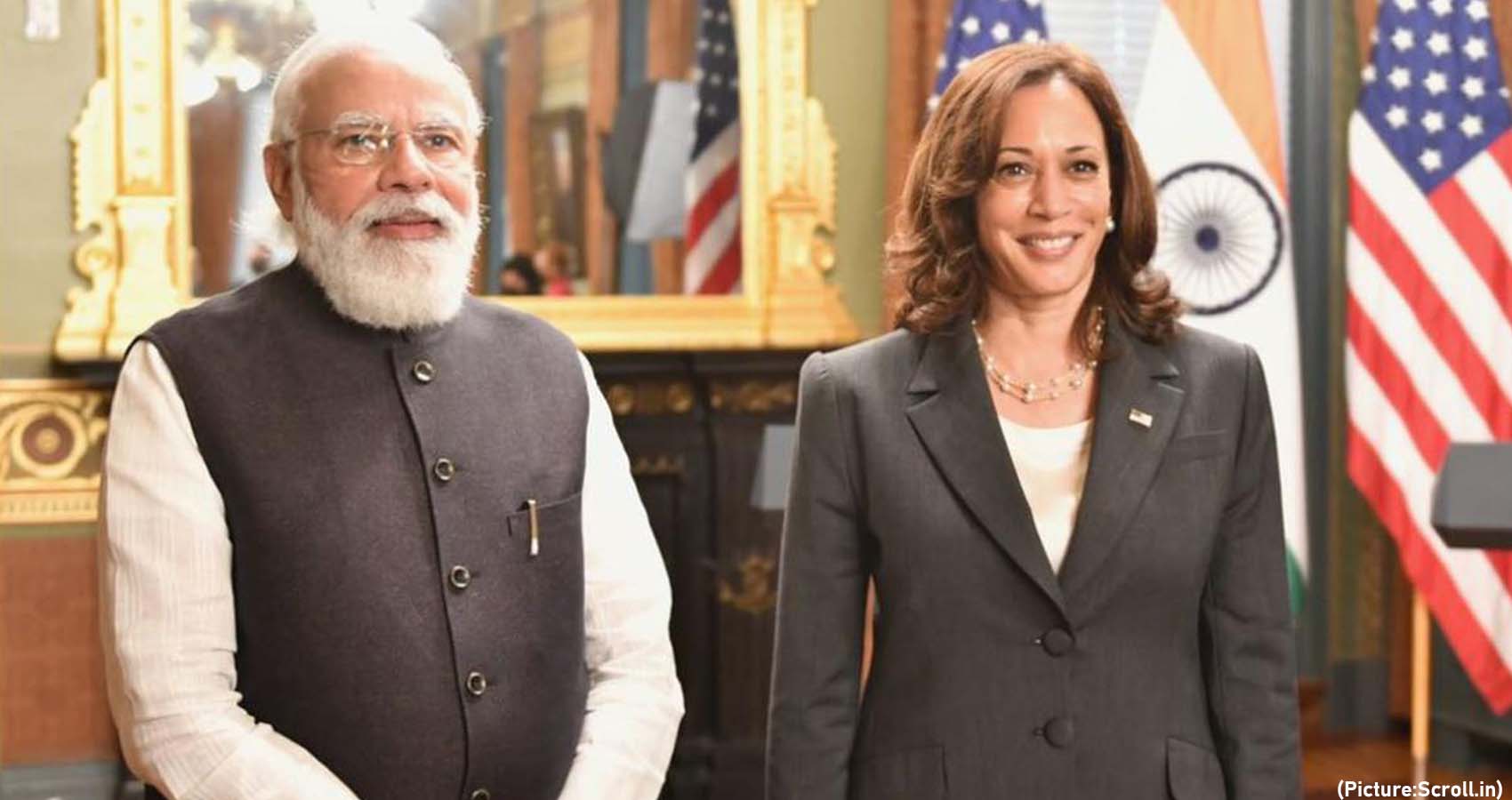
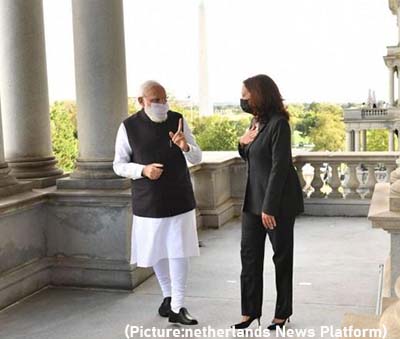 Harris praised India for stepping forward to help other countries with vaccines at the outset of the pandemic. Prime Minister Modi praised the leadership of the new administration in overcoming challenges besetting the country.
Harris praised India for stepping forward to help other countries with vaccines at the outset of the pandemic. Prime Minister Modi praised the leadership of the new administration in overcoming challenges besetting the country.

 “I wanted to start the foundation so that we could raise awareness so that we could increase funding on a federal level, so that we could lobby insurance companies to pay for women getting checked out properly,” she was quoted as saying by Variety. “I don’t want any young woman in the next generation to go through what I and millions of women have gone through.”
“I wanted to start the foundation so that we could raise awareness so that we could increase funding on a federal level, so that we could lobby insurance companies to pay for women getting checked out properly,” she was quoted as saying by Variety. “I don’t want any young woman in the next generation to go through what I and millions of women have gone through.”
 According to Variety, the makers of the upcoming project have shifted its five-episode format to a one-time documentary special. For the unversed, “The Activist” aims to pit several activists and public figures against each other in order to promote their causes on social media with the goal of securing the highest amount of funding to win the game. Many social media users have called out the competitive series, which has Chopra, Usher, and Julianne Hough as hosts. They slammed the show for being tone-deaf and insensitive. Amid the ongoing criticism, CBS and producing partners Global Citizen and Live Nation issued a statement announcing the change in the show’s format.
According to Variety, the makers of the upcoming project have shifted its five-episode format to a one-time documentary special. For the unversed, “The Activist” aims to pit several activists and public figures against each other in order to promote their causes on social media with the goal of securing the highest amount of funding to win the game. Many social media users have called out the competitive series, which has Chopra, Usher, and Julianne Hough as hosts. They slammed the show for being tone-deaf and insensitive. Amid the ongoing criticism, CBS and producing partners Global Citizen and Live Nation issued a statement announcing the change in the show’s format.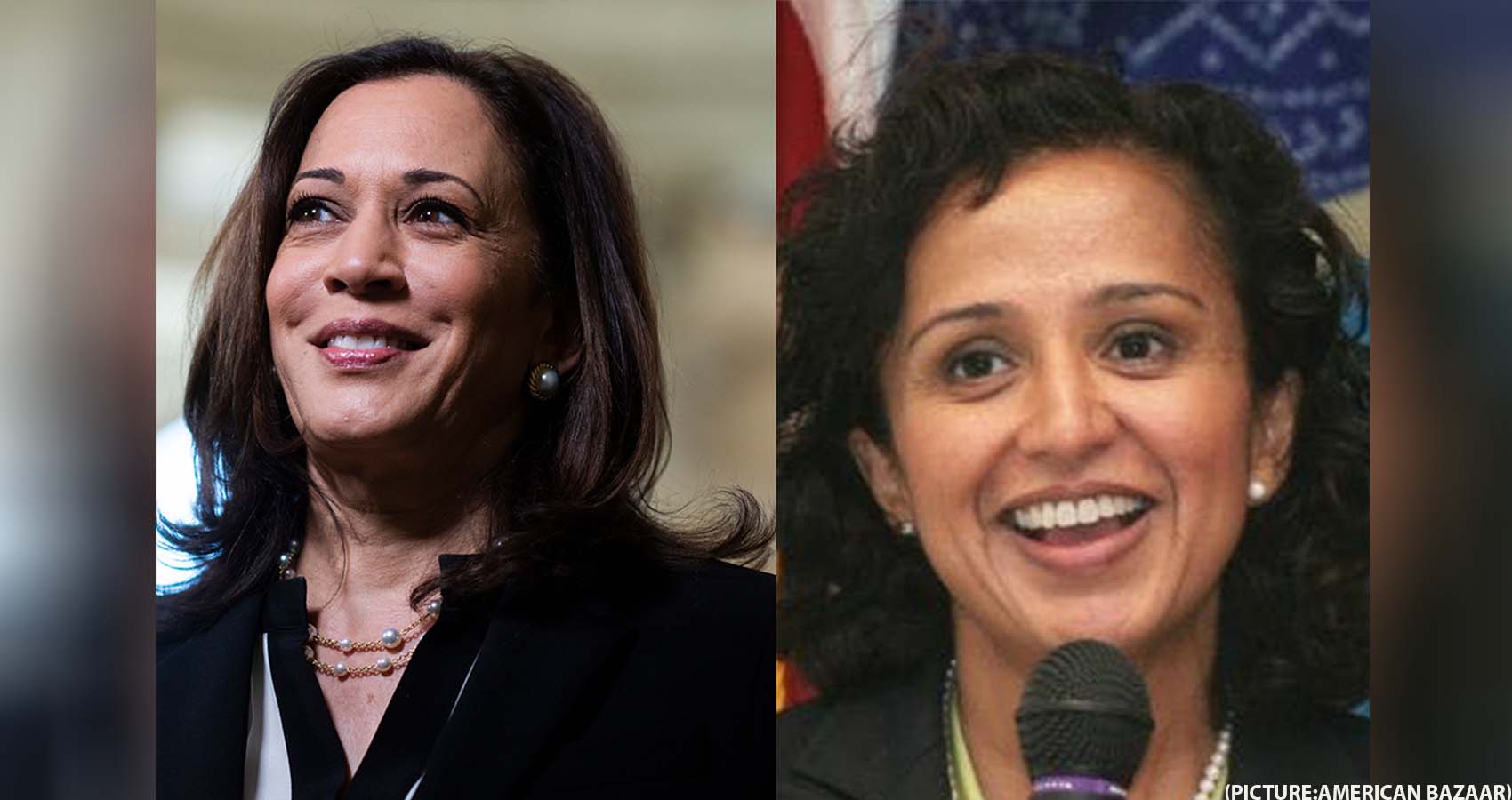
 Kulkarni and Stop AAPI Hate co-founders Cynthia Choi and Russell Jeung were named in the “Icons” section of the list, alongside Prince Harry and Meghan Markle, pop singers Britney Spears and Dolly Parton, Sherrilyn Ifill, president and director-counsel of the NAACP Legal Defense and Educational Fund; and Russian opposition leader Alexie Navalny, among others. “In a turbulent year, as the U.S. has seen a surge in racist, anti-Asian attacks—from terrifying assaults on senior citizens to the tragic mass shooting in Atlanta—no coalition has been more impactful in raising awareness of this violence than Stop AAPI Hate.” wrote poet Kathy Park Hong, in Time Magazine’s tribute to the founders of Stop AAPI Hate.
Kulkarni and Stop AAPI Hate co-founders Cynthia Choi and Russell Jeung were named in the “Icons” section of the list, alongside Prince Harry and Meghan Markle, pop singers Britney Spears and Dolly Parton, Sherrilyn Ifill, president and director-counsel of the NAACP Legal Defense and Educational Fund; and Russian opposition leader Alexie Navalny, among others. “In a turbulent year, as the U.S. has seen a surge in racist, anti-Asian attacks—from terrifying assaults on senior citizens to the tragic mass shooting in Atlanta—no coalition has been more impactful in raising awareness of this violence than Stop AAPI Hate.” wrote poet Kathy Park Hong, in Time Magazine’s tribute to the founders of Stop AAPI Hate.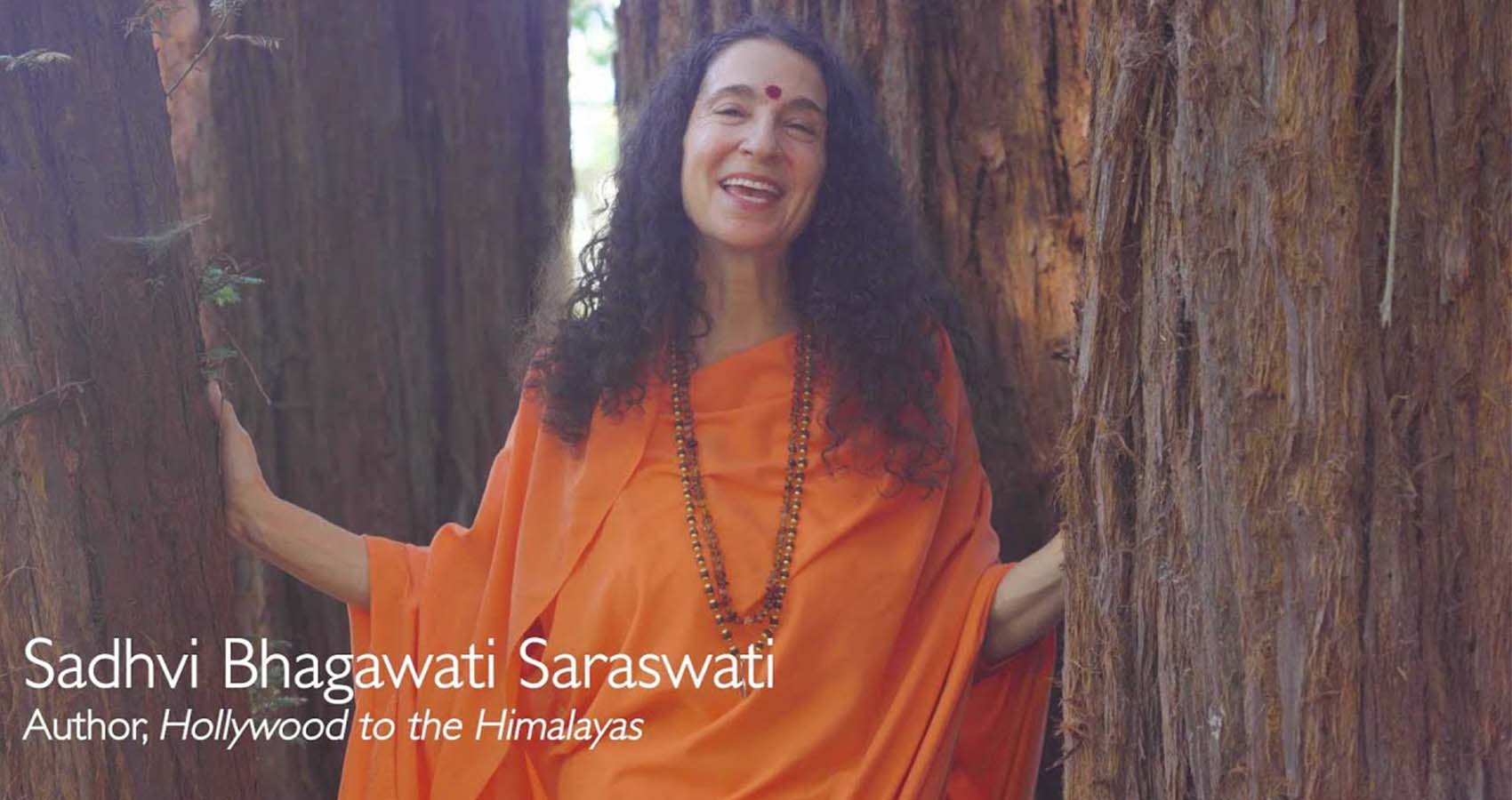
 The event was attended, among others, by the Secretary-General, Religions for Peace Prof. Azza Karam; secretary-general, Global Interfaith WASH Alliance, Parmarth Niketan; Special Adviser to the Secretary-General of the UN and head of the United Nations Office of Genocide Prevention, Alice Nderitu; President of Parmarth Niketan and founder and chair of Global Interfaith WASH Alliance, Swami Chidanand Saraswati; India’s Minister of State for External Affairs & Culture, Meenakshi Lekhi; Consul General of India to New York Randhir Jaiswal; President/Founder of the International Academy for Multicultural Cooperation, President of the Light of Awareness International Spiritual Family Audrey Kitagawa, JD; Padma Shri Dr. Sudhir Parikh, chairman of Parikh Worldwide Media and ITV Gold; and Jonathan Granoff, president, Global Security Institute.
The event was attended, among others, by the Secretary-General, Religions for Peace Prof. Azza Karam; secretary-general, Global Interfaith WASH Alliance, Parmarth Niketan; Special Adviser to the Secretary-General of the UN and head of the United Nations Office of Genocide Prevention, Alice Nderitu; President of Parmarth Niketan and founder and chair of Global Interfaith WASH Alliance, Swami Chidanand Saraswati; India’s Minister of State for External Affairs & Culture, Meenakshi Lekhi; Consul General of India to New York Randhir Jaiswal; President/Founder of the International Academy for Multicultural Cooperation, President of the Light of Awareness International Spiritual Family Audrey Kitagawa, JD; Padma Shri Dr. Sudhir Parikh, chairman of Parikh Worldwide Media and ITV Gold; and Jonathan Granoff, president, Global Security Institute. After the ceremonial lighting of the lamp and recitation of auspicious prayers, Sadhvi Bhagawatiji presented each of the dignitaries on the dais a copy of Hollywood to the Himalayas. Minister of State for External Affairs and Culture Meenakshi Lekhi praised the Indian-American community for its devotion to the well-being of India. “Let me say at the outset how proud I am of all of you. We, in India, are extremely grateful to our diaspora which carries on all the traditional functions and are the ‘Ambassadors of India’ while the formal Ambassadors have formal jobs to do. But the ‘informal ambassadors’ carry the job far, far, far better and reach out to people,” Lekhi said. “The values that India stands for are exhibited by people who are away from their homes, but carry their hearts on their sleeves and always believe in and stand up for Mother India,,” she added.
After the ceremonial lighting of the lamp and recitation of auspicious prayers, Sadhvi Bhagawatiji presented each of the dignitaries on the dais a copy of Hollywood to the Himalayas. Minister of State for External Affairs and Culture Meenakshi Lekhi praised the Indian-American community for its devotion to the well-being of India. “Let me say at the outset how proud I am of all of you. We, in India, are extremely grateful to our diaspora which carries on all the traditional functions and are the ‘Ambassadors of India’ while the formal Ambassadors have formal jobs to do. But the ‘informal ambassadors’ carry the job far, far, far better and reach out to people,” Lekhi said. “The values that India stands for are exhibited by people who are away from their homes, but carry their hearts on their sleeves and always believe in and stand up for Mother India,,” she added.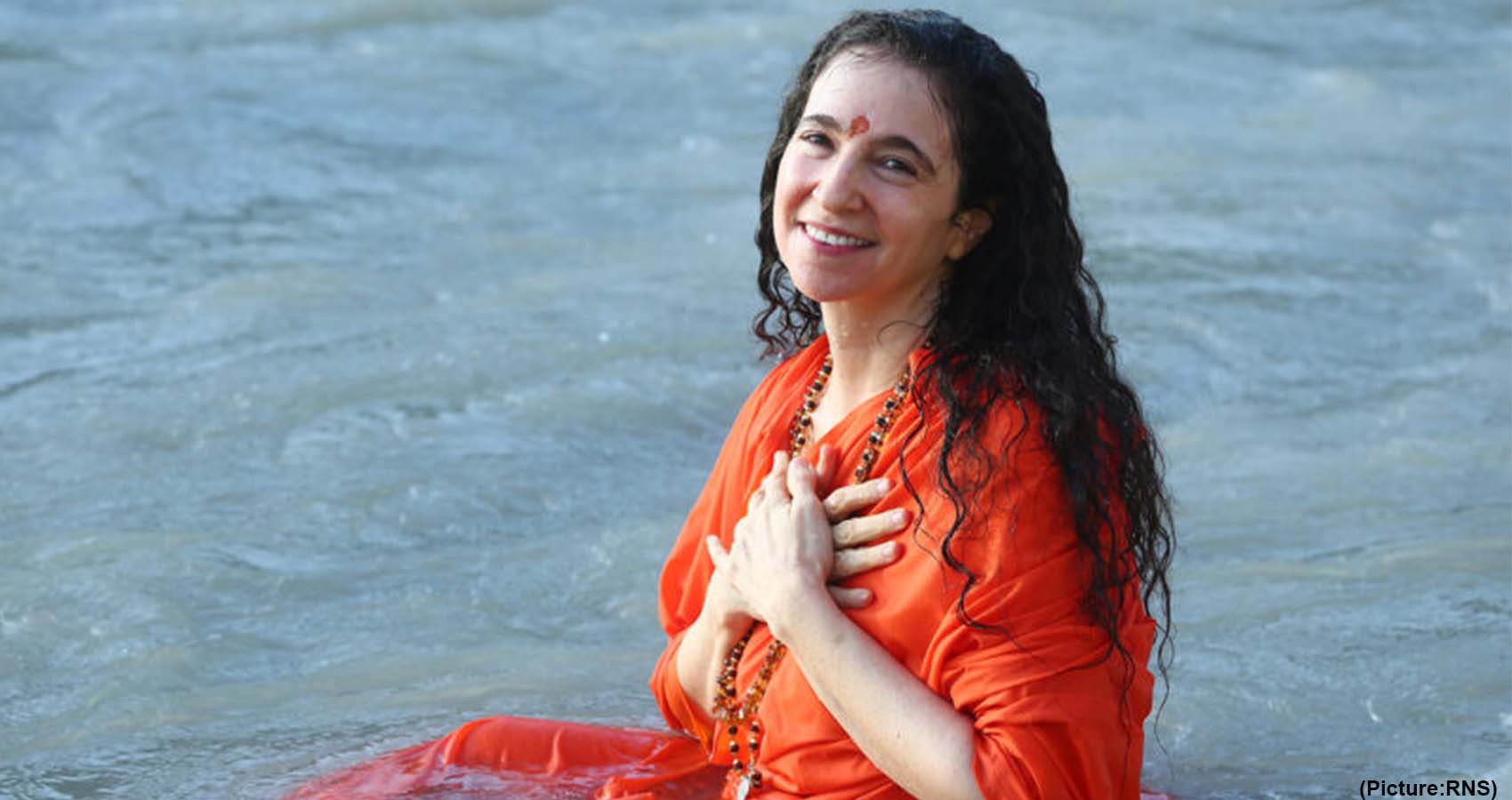
 Sadhvi Bhagawati Saraswati,
Sadhvi Bhagawati Saraswati, When you talk about grace, a lot of people might think you mean the Christian concept of grace, a free gift usually associated with belief in Jesus. What do you mean by grace?
When you talk about grace, a lot of people might think you mean the Christian concept of grace, a free gift usually associated with belief in Jesus. What do you mean by grace?

 However, even if the ban is ultimately blocked, it will have a lasting impact on Texas and provide a roadmap for other conservative states to enact similar abortion restrictions. Senate Bill 8, signed by Republican Gov. Greg Abbott in May, bars abortions once a doctor can detect fetal cardiac activity, which is often before many people know they are pregnant. The ban would prevent at least 85% of abortions sought in Texas, according to abortion rights advocates and providers. It is now the most restrictive abortion law in the nation; at least 12 other states have passed six-week abortion bans, but all have been blocked from going into effect. “Texas politicians will have effectively overturned Roe v. Wade,” Nancy Northup, president and CEO of the Center for Reproductive Rights, said shortly before the law went into effect, referring to the landmark 1973 decision that established the constitutionally protected right to abortion before a fetus is viable.
However, even if the ban is ultimately blocked, it will have a lasting impact on Texas and provide a roadmap for other conservative states to enact similar abortion restrictions. Senate Bill 8, signed by Republican Gov. Greg Abbott in May, bars abortions once a doctor can detect fetal cardiac activity, which is often before many people know they are pregnant. The ban would prevent at least 85% of abortions sought in Texas, according to abortion rights advocates and providers. It is now the most restrictive abortion law in the nation; at least 12 other states have passed six-week abortion bans, but all have been blocked from going into effect. “Texas politicians will have effectively overturned Roe v. Wade,” Nancy Northup, president and CEO of the Center for Reproductive Rights, said shortly before the law went into effect, referring to the landmark 1973 decision that established the constitutionally protected right to abortion before a fetus is viable.
 The 24 stunning national finalists from different parts of India who had competed at the prestigious pageant included Zoya Afroz, Archana Ravi, Aishwarya Dikshit, Naina Vijay Sharma, Tanya Sinha, Sejal Renake, Himani Gaikwad, Megha Shetty, Megha Julka, Deeksha Narang, Shivani Tak, Saachi Gurav, Asmita Chakraborty, Tanu Shree, Shweta Shinde, Hannah Tamalapakula, Susang Sherpa, Disha Shamwani, Isha Vaidya, Annu Bhati, Arushi Singh, Divija Gambhir, Shalini Rana, Anisha Sharmathe. Divija Gambhir was crowned Miss India Multinational 2021 and Tanya Sinha was crowned Miss India Globe 2021. Asmita Chakraborty and Anisha Sharma were crowned as the first and second runner-ups, at the end of the event, respectively. Divija Gambhir is a 21-year-old who started her own community which helps the stray dogs find shelter and food. She aims to become the voice of the voiceless, is a trained dancer and enjoys modelling. Tanya Sinha will represent India at Miss Globe International. She’s 23-year-old from Jharkhand and holds the advocacy of addressing the issue of untouchability especially in rural areas.
The 24 stunning national finalists from different parts of India who had competed at the prestigious pageant included Zoya Afroz, Archana Ravi, Aishwarya Dikshit, Naina Vijay Sharma, Tanya Sinha, Sejal Renake, Himani Gaikwad, Megha Shetty, Megha Julka, Deeksha Narang, Shivani Tak, Saachi Gurav, Asmita Chakraborty, Tanu Shree, Shweta Shinde, Hannah Tamalapakula, Susang Sherpa, Disha Shamwani, Isha Vaidya, Annu Bhati, Arushi Singh, Divija Gambhir, Shalini Rana, Anisha Sharmathe. Divija Gambhir was crowned Miss India Multinational 2021 and Tanya Sinha was crowned Miss India Globe 2021. Asmita Chakraborty and Anisha Sharma were crowned as the first and second runner-ups, at the end of the event, respectively. Divija Gambhir is a 21-year-old who started her own community which helps the stray dogs find shelter and food. She aims to become the voice of the voiceless, is a trained dancer and enjoys modelling. Tanya Sinha will represent India at Miss Globe International. She’s 23-year-old from Jharkhand and holds the advocacy of addressing the issue of untouchability especially in rural areas. Zoya Afroz was born in Lucknow, Uttar Pradesh, India to her parents, Shadaab Afroz and Saleha Afroz. She studied at R N Shah High School in Mumbai and earned her bachelor’s degree in commerce from Mithibai College in Vile Parle, Mumbai, India. Zoya started her career from Indian commercials, films and television series. In 1999, she starred in the films “Hum Saath Saath Hain” and “Mann.” In 2000, she starred in the TV series “Jai Mata Ki.” Along with that in 2001, she played Mukta in the Hindi film “Sant Gyaneshwar. Continually in 2003, she played Aarya in the Hindi film “Kuch Naa Kaho.” In 2004, she played Dimples in the TV series “Son Pari.”In 2005, she played the title role in the English film “From Tia With Love.” In 2012, she played Channo in the Punjabi film “Sadi Gali Aaya Karo.”
Zoya Afroz was born in Lucknow, Uttar Pradesh, India to her parents, Shadaab Afroz and Saleha Afroz. She studied at R N Shah High School in Mumbai and earned her bachelor’s degree in commerce from Mithibai College in Vile Parle, Mumbai, India. Zoya started her career from Indian commercials, films and television series. In 1999, she starred in the films “Hum Saath Saath Hain” and “Mann.” In 2000, she starred in the TV series “Jai Mata Ki.” Along with that in 2001, she played Mukta in the Hindi film “Sant Gyaneshwar. Continually in 2003, she played Aarya in the Hindi film “Kuch Naa Kaho.” In 2004, she played Dimples in the TV series “Son Pari.”In 2005, she played the title role in the English film “From Tia With Love.” In 2012, she played Channo in the Punjabi film “Sadi Gali Aaya Karo.”
 Mother Teresa also known as Saint Teresa of Calcutta, but her original name was Anjeze Gonxhe Bojaxhiu. The word “Anjeze” means “a little flower” in Albanian. In 1928, when Mother Teresa was just 18 years old, she left her family to devote her life into social service. She had joined the Sisters of Loreto at Loreto Abbey in Rathfarnhan, Ireland to learn English with the view of becoming a missionary. She never saw her mother or sister after leaving home. Mother Teresa arrived in India in 1929, when she was mere 19. She spent most of her life in India. Mother Teresa was baptized in Skopje a day after her birth. She later started to consider the day of her baptised, August 27, as her “true birthday”.
Mother Teresa also known as Saint Teresa of Calcutta, but her original name was Anjeze Gonxhe Bojaxhiu. The word “Anjeze” means “a little flower” in Albanian. In 1928, when Mother Teresa was just 18 years old, she left her family to devote her life into social service. She had joined the Sisters of Loreto at Loreto Abbey in Rathfarnhan, Ireland to learn English with the view of becoming a missionary. She never saw her mother or sister after leaving home. Mother Teresa arrived in India in 1929, when she was mere 19. She spent most of her life in India. Mother Teresa was baptized in Skopje a day after her birth. She later started to consider the day of her baptised, August 27, as her “true birthday”.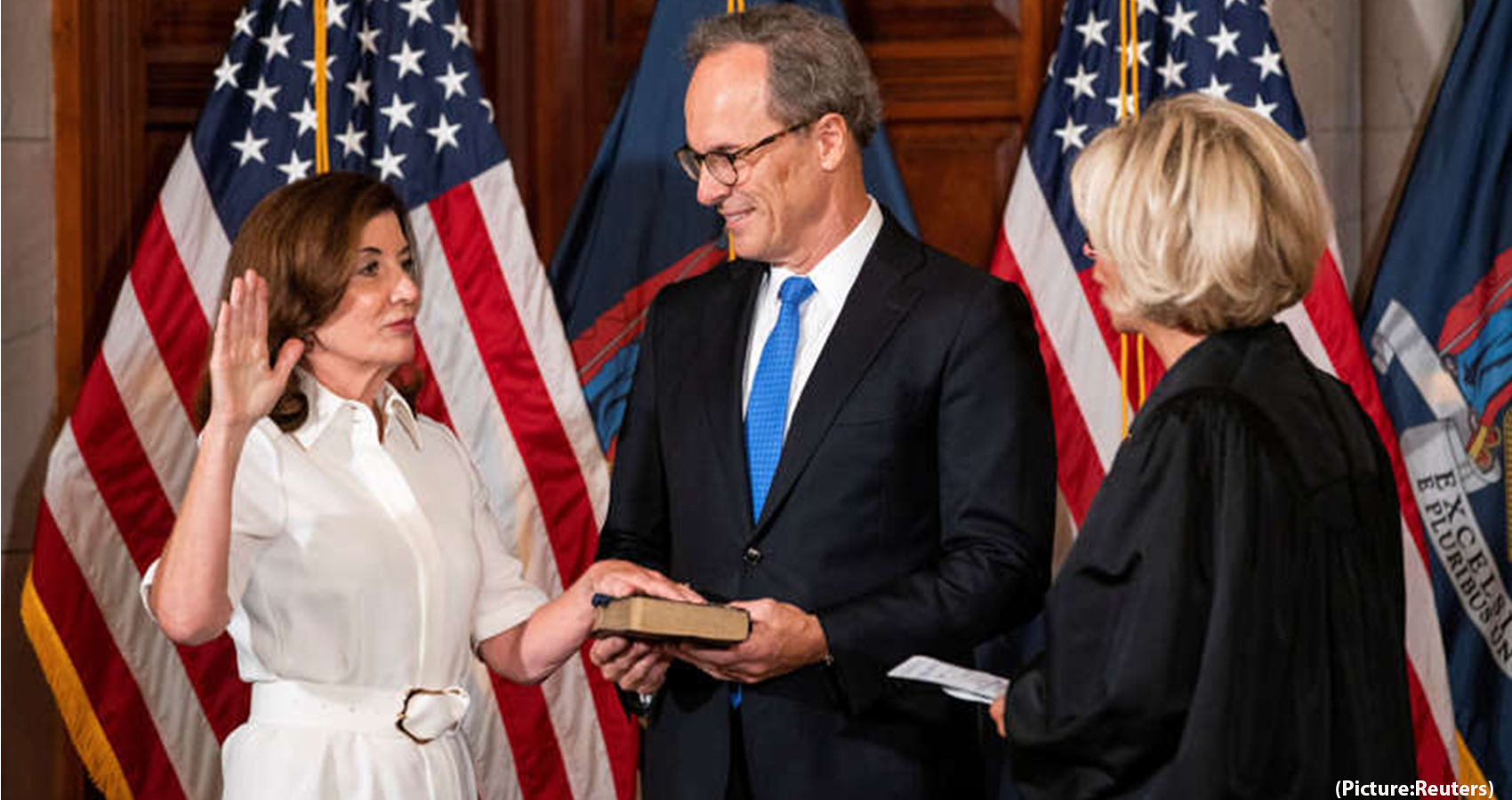
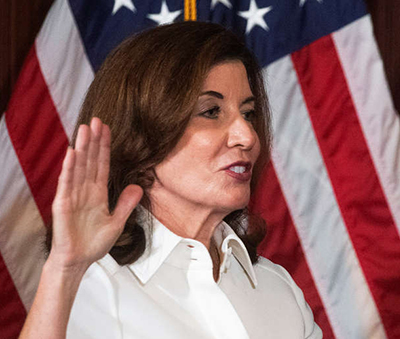 “I’ll tell New Yorkers I’m up to the task. And I’m really proud to be able to serve as their governor and I won’t let them down,” she said. Hochul’s ascent to the top job was a history-making moment in a capital. Where women have only recently begun chipping away at a notoriously male-dominated political culture. Kathy Hochul, serving as New York’s lieutenant governor, has catapulted into the national spotlight when Gov. Andrew Cuomo abruptly announced his resignation amid a growing sexual harassment scandal 2 weeks ago.
“I’ll tell New Yorkers I’m up to the task. And I’m really proud to be able to serve as their governor and I won’t let them down,” she said. Hochul’s ascent to the top job was a history-making moment in a capital. Where women have only recently begun chipping away at a notoriously male-dominated political culture. Kathy Hochul, serving as New York’s lieutenant governor, has catapulted into the national spotlight when Gov. Andrew Cuomo abruptly announced his resignation amid a growing sexual harassment scandal 2 weeks ago.
 The spectrum of these ailments is wide and deep, with many tricky “masqueraders” in the mix creating confusion, potential misdiagnoses, and faulty or poor treatment, and causing immeasurable suffering for millions of people. Dr. Ruchi Gupta, a world-renowned researcher and physician on the front lines of this silent epidemic, in her first book, shares revolutionary research from her lab to address the entire spectrum of food-related health conditions.
The spectrum of these ailments is wide and deep, with many tricky “masqueraders” in the mix creating confusion, potential misdiagnoses, and faulty or poor treatment, and causing immeasurable suffering for millions of people. Dr. Ruchi Gupta, a world-renowned researcher and physician on the front lines of this silent epidemic, in her first book, shares revolutionary research from her lab to address the entire spectrum of food-related health conditions. The book has won excellent reviews from well-known authors. David Perlmutter, MD, Fellow, American College of Nutrition, author, #1 New York Times bestseller Grain Brain and Brain Wash, wrote of the book: “Food Without Fear explores how our individual uniqueness plays into how we respond to the information that our food choices purvey. And the dichotomy between “good” and “bad” foods is explored through the lenses of both leading edge science as well as our food-related responses. Both these data sets empower the reader with tools to optimize food choices and pave the way for a healthier life.”
The book has won excellent reviews from well-known authors. David Perlmutter, MD, Fellow, American College of Nutrition, author, #1 New York Times bestseller Grain Brain and Brain Wash, wrote of the book: “Food Without Fear explores how our individual uniqueness plays into how we respond to the information that our food choices purvey. And the dichotomy between “good” and “bad” foods is explored through the lenses of both leading edge science as well as our food-related responses. Both these data sets empower the reader with tools to optimize food choices and pave the way for a healthier life.”
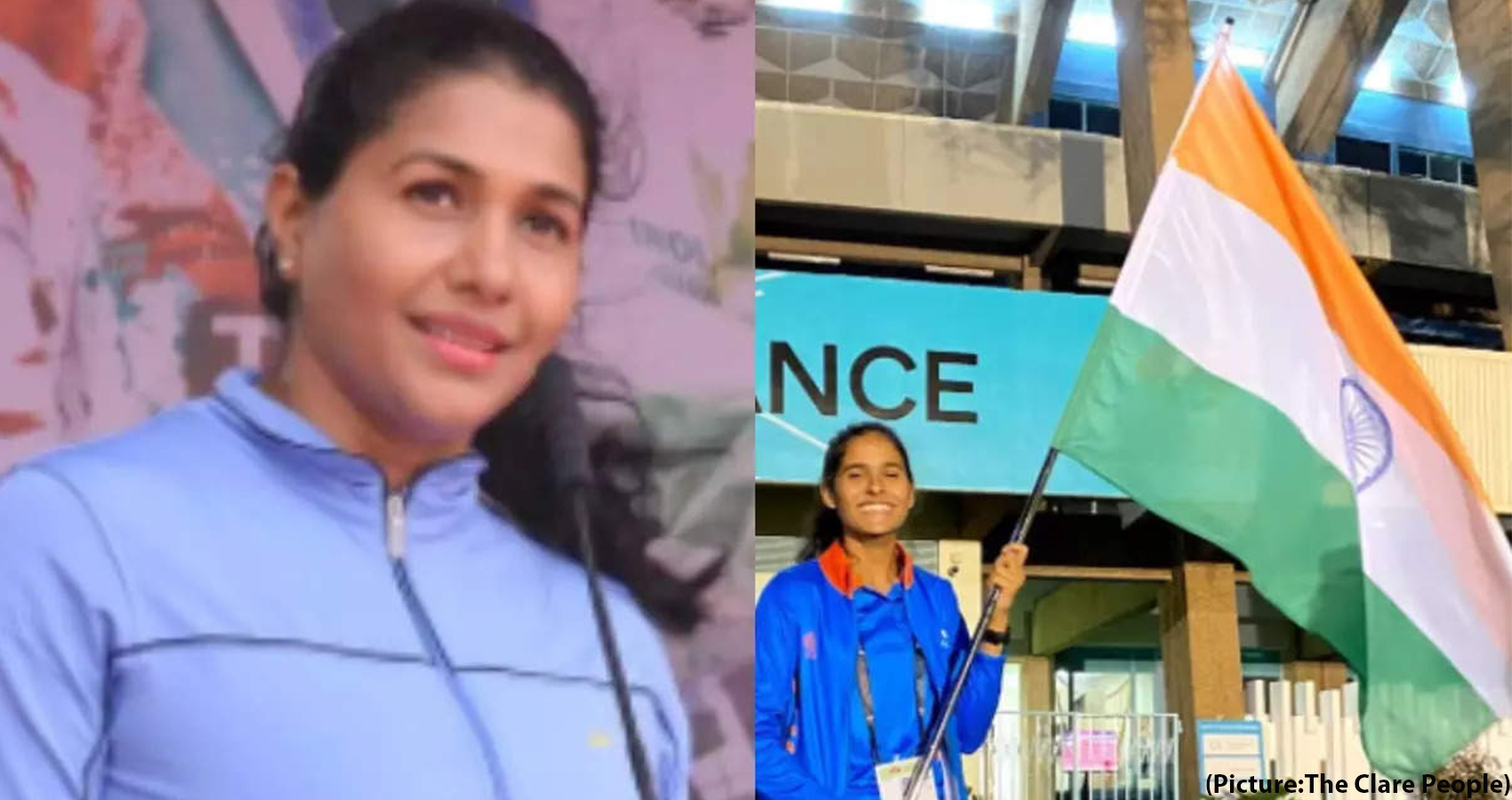
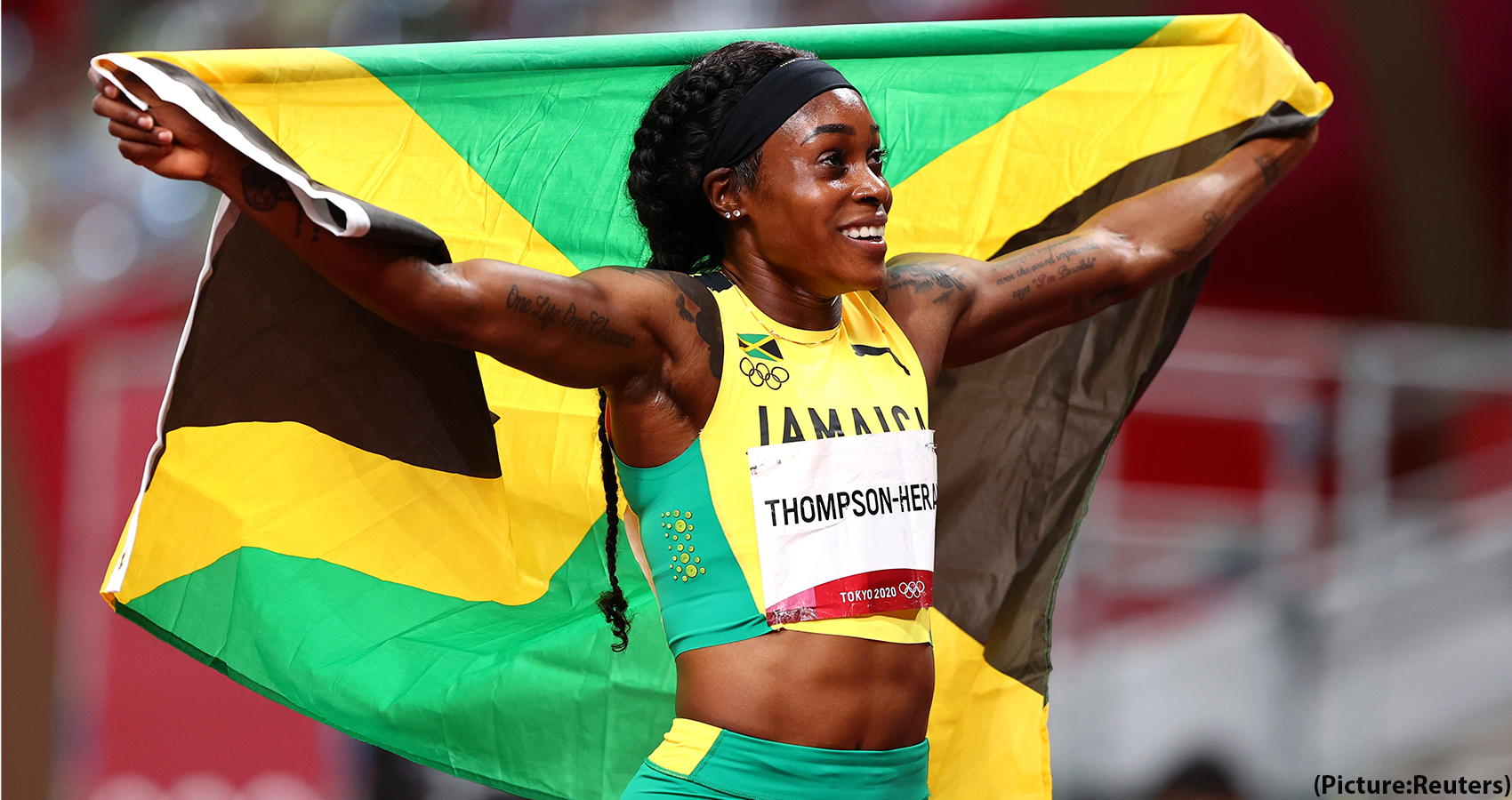

 “On the occasion of the 75thIndependence Day of India, we the physicians of Indian origin serving every 7th patient in the United States, is excited to launch this unique and noble initiative in collaboration with Bitcare, ‘AAPI Blood Donation and Stem Cell Drive” in 75 cities across the United States,” Dr. Gotimukula added.
“On the occasion of the 75thIndependence Day of India, we the physicians of Indian origin serving every 7th patient in the United States, is excited to launch this unique and noble initiative in collaboration with Bitcare, ‘AAPI Blood Donation and Stem Cell Drive” in 75 cities across the United States,” Dr. Gotimukula added. Blood saves lives. Blood is needed every two seconds. Nearly 21 million blood components are transfused in the U.S. every year. While not everyone is able to donate blood, Dr. Gotimukula pointed out that only 37 percent of the country’s population is able to donate blood. On why she and the AAPI leadership chose this as a priority\, Dr. Gotiumuka said, “The 3rd Covid Wave is causing increased ICU admissions again. There is a dire need for blood. Your friends or family may need your blood someday. And this noble cause helps save many lives.”
Blood saves lives. Blood is needed every two seconds. Nearly 21 million blood components are transfused in the U.S. every year. While not everyone is able to donate blood, Dr. Gotimukula pointed out that only 37 percent of the country’s population is able to donate blood. On why she and the AAPI leadership chose this as a priority\, Dr. Gotiumuka said, “The 3rd Covid Wave is causing increased ICU admissions again. There is a dire need for blood. Your friends or family may need your blood someday. And this noble cause helps save many lives.” Describing the benefits of Blood Donation, Dr. Gotiumukula said, a single donation can save three lives. Each blood component of whole blood transfusion can help up to three different people. Pointing to the fact that Blood cannot be manufactured, The President of AAPI said, “Despite medical and technological advances, blood cannot be made, so donations are the only way we can give blood to those who need it.”
Describing the benefits of Blood Donation, Dr. Gotiumukula said, a single donation can save three lives. Each blood component of whole blood transfusion can help up to three different people. Pointing to the fact that Blood cannot be manufactured, The President of AAPI said, “Despite medical and technological advances, blood cannot be made, so donations are the only way we can give blood to those who need it.”
 Rangan will officially take over the role from September 7 onwards. “Yamini has been overseeing day to day operations at HubSpot since March, managing Board meetings, the HubSpot earnings call, and key hiring and growth initiatives, working closely with Dharmesh and the rest of the leadership team. She’s made HubSpot better by being here, and I know that trend will continue with her as CEO,” Halligan wrote.
Rangan will officially take over the role from September 7 onwards. “Yamini has been overseeing day to day operations at HubSpot since March, managing Board meetings, the HubSpot earnings call, and key hiring and growth initiatives, working closely with Dharmesh and the rest of the leadership team. She’s made HubSpot better by being here, and I know that trend will continue with her as CEO,” Halligan wrote.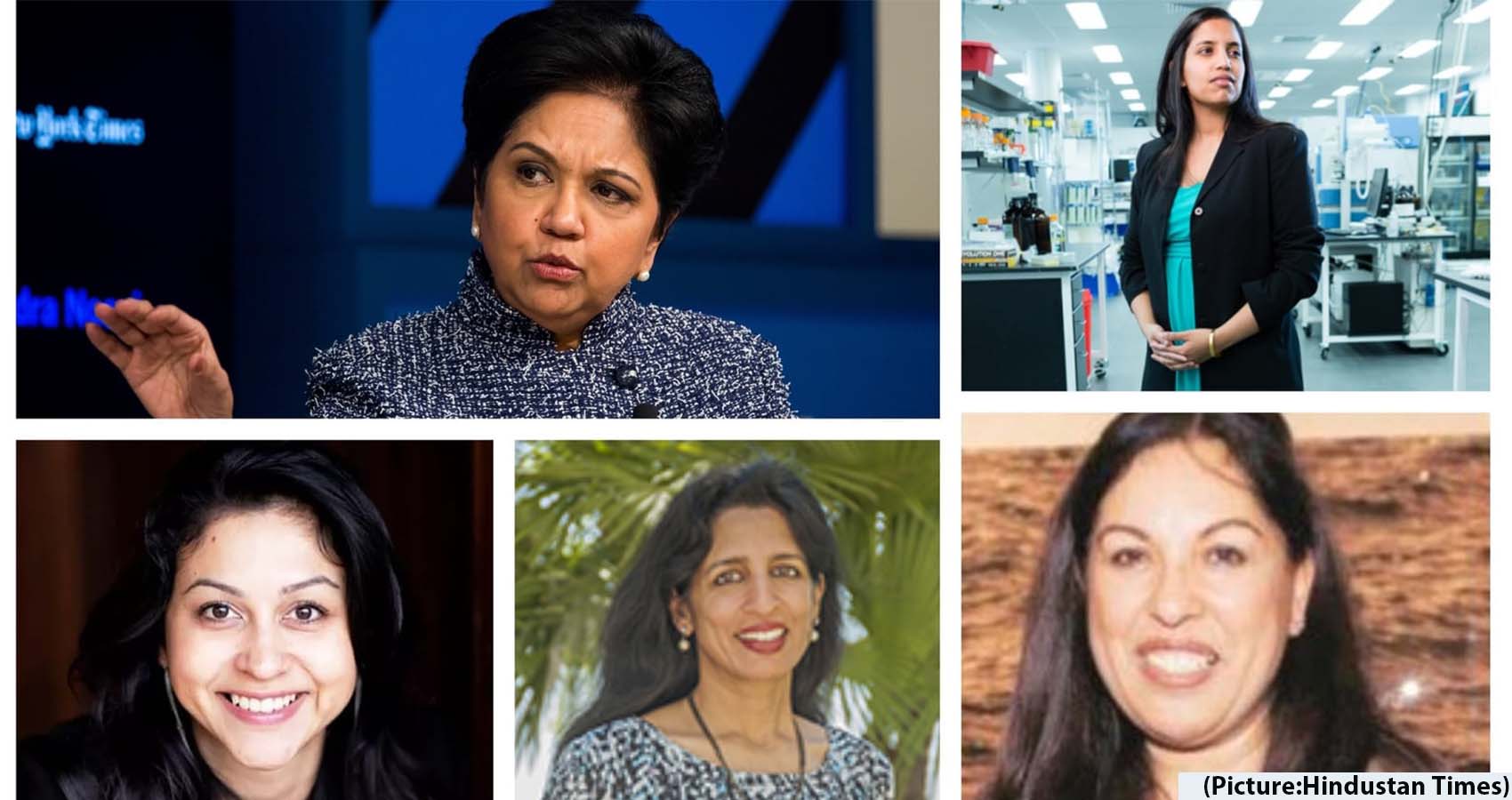
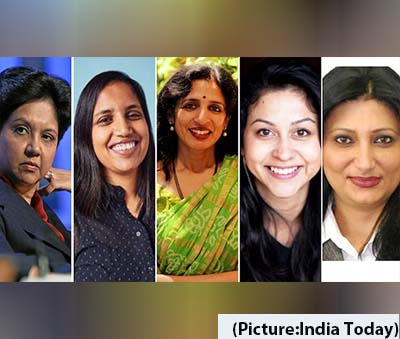 A record 26 are now billionaires, including pop star mogul Rihanna and 23andMe’s Anne Wojcicki. The Indian Americans on the list include Neha Narkhede, co-founder and former chief technology officer of Confluent; PepsiCo’s former chair and CEO Indra Nooyi; Neerja Sethi, co-founder of Syntel; Reshma Shetty, co-founder of Gingko Bioworks; and Jayshree Ullal, president and CEO of Arista Networks.
A record 26 are now billionaires, including pop star mogul Rihanna and 23andMe’s Anne Wojcicki. The Indian Americans on the list include Neha Narkhede, co-founder and former chief technology officer of Confluent; PepsiCo’s former chair and CEO Indra Nooyi; Neerja Sethi, co-founder of Syntel; Reshma Shetty, co-founder of Gingko Bioworks; and Jayshree Ullal, president and CEO of Arista Networks.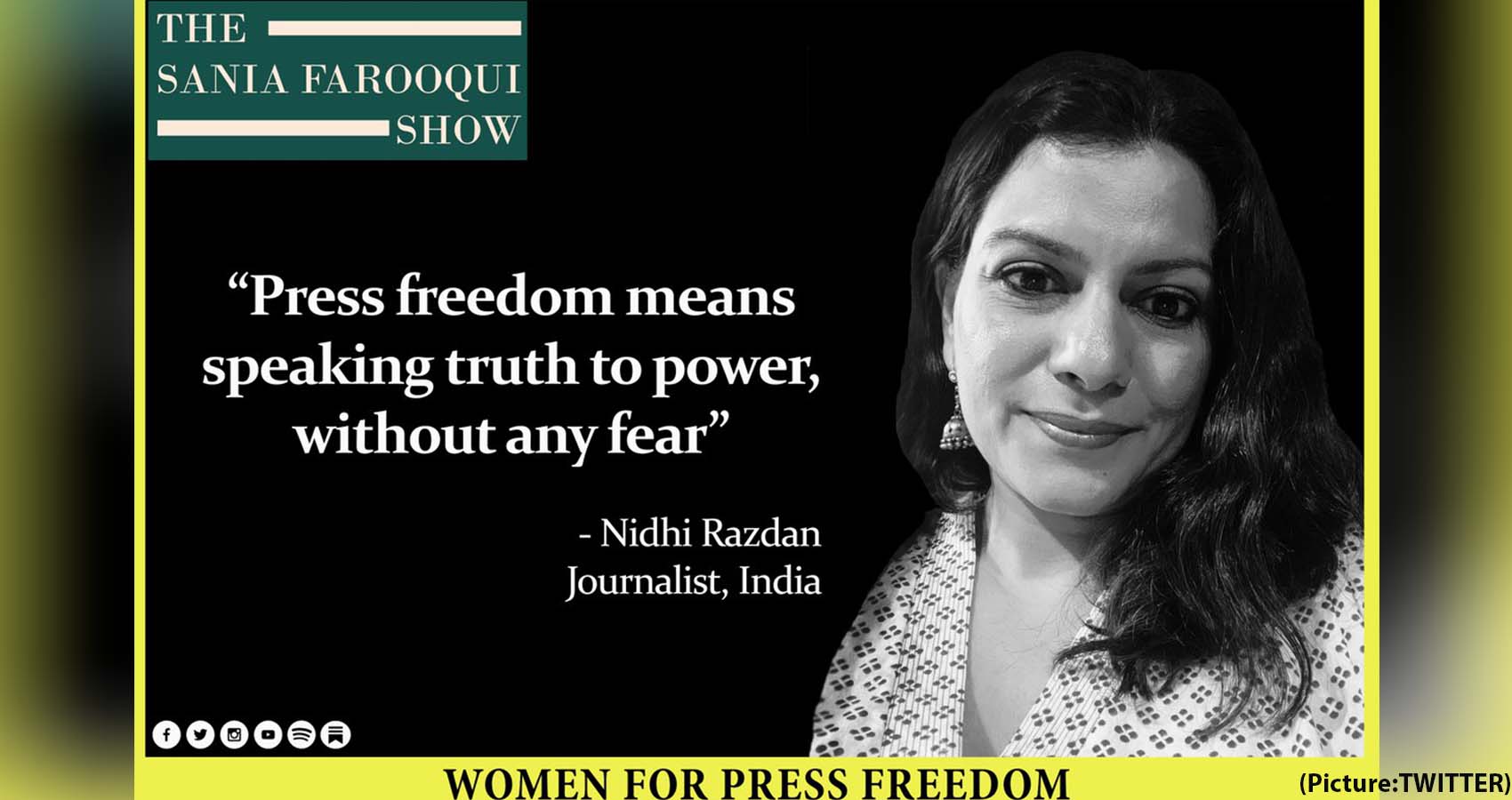
 It all started in November 2019, when she was invited to speak at an event organized by the Harvard Kennedy School. Razdan was later contacted by an apparent organiser of the event, who asked if she would be interested in applying for a teaching position.
It all started in November 2019, when she was invited to speak at an event organized by the Harvard Kennedy School. Razdan was later contacted by an apparent organiser of the event, who asked if she would be interested in applying for a teaching position.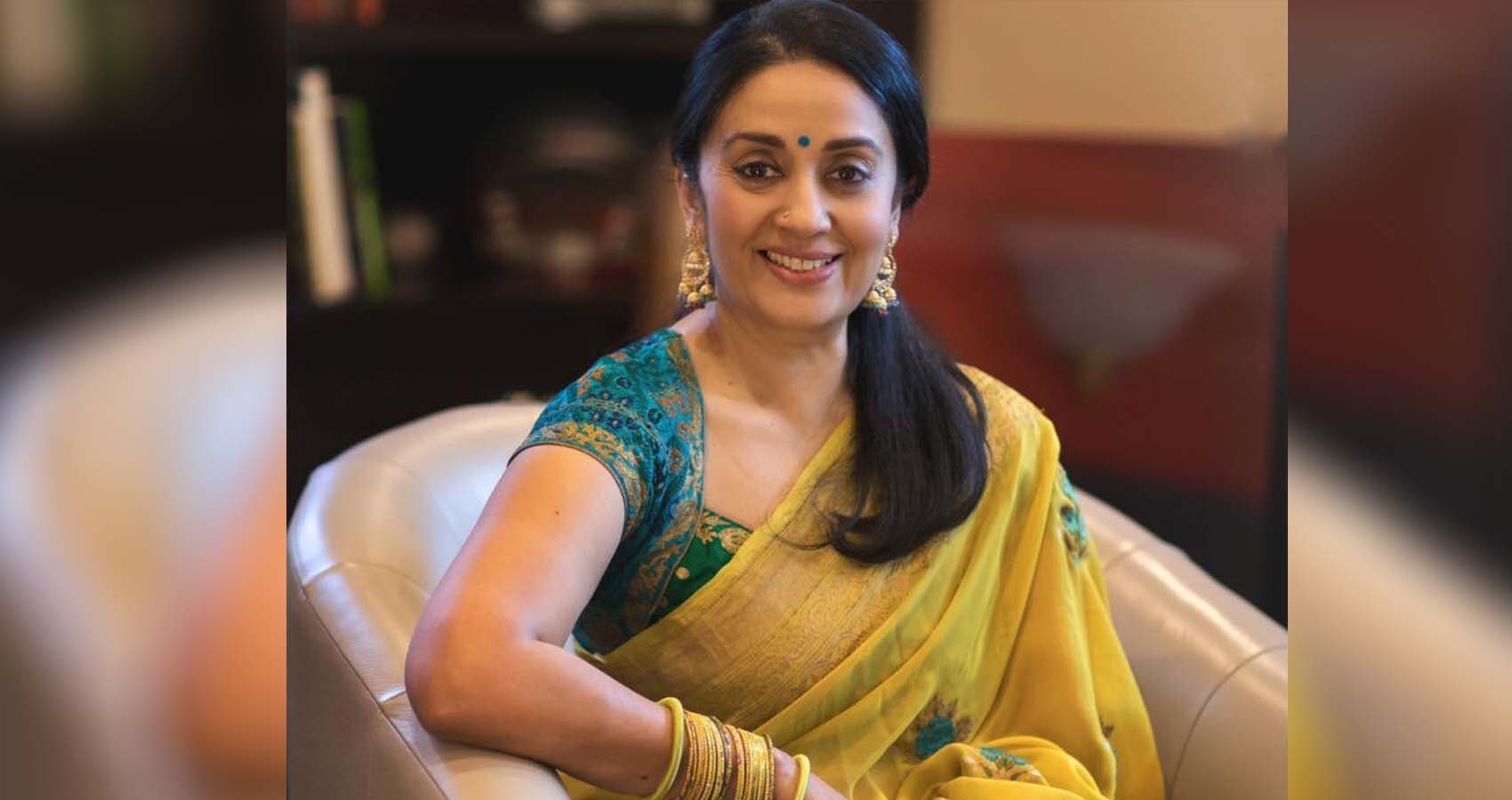

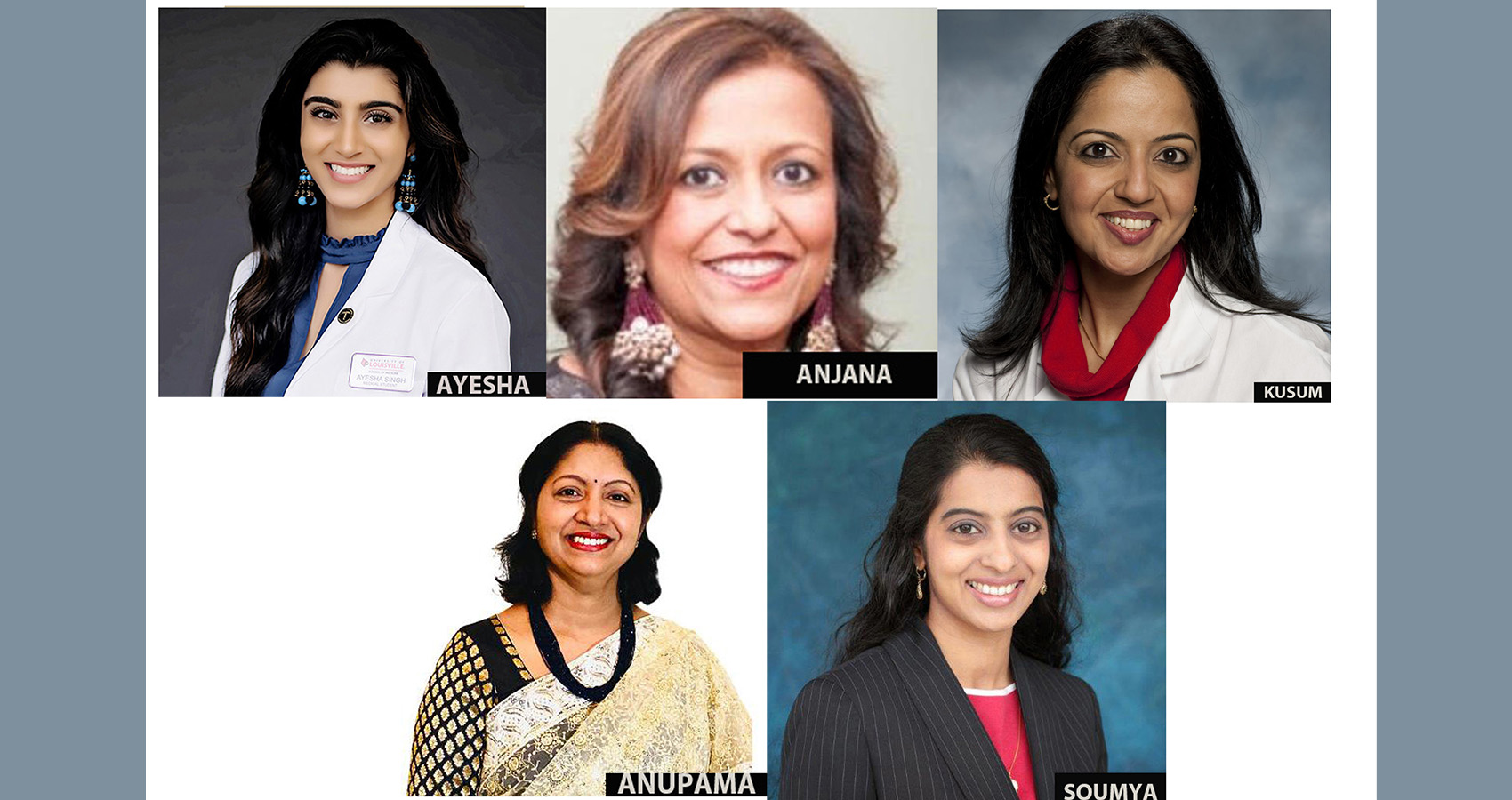
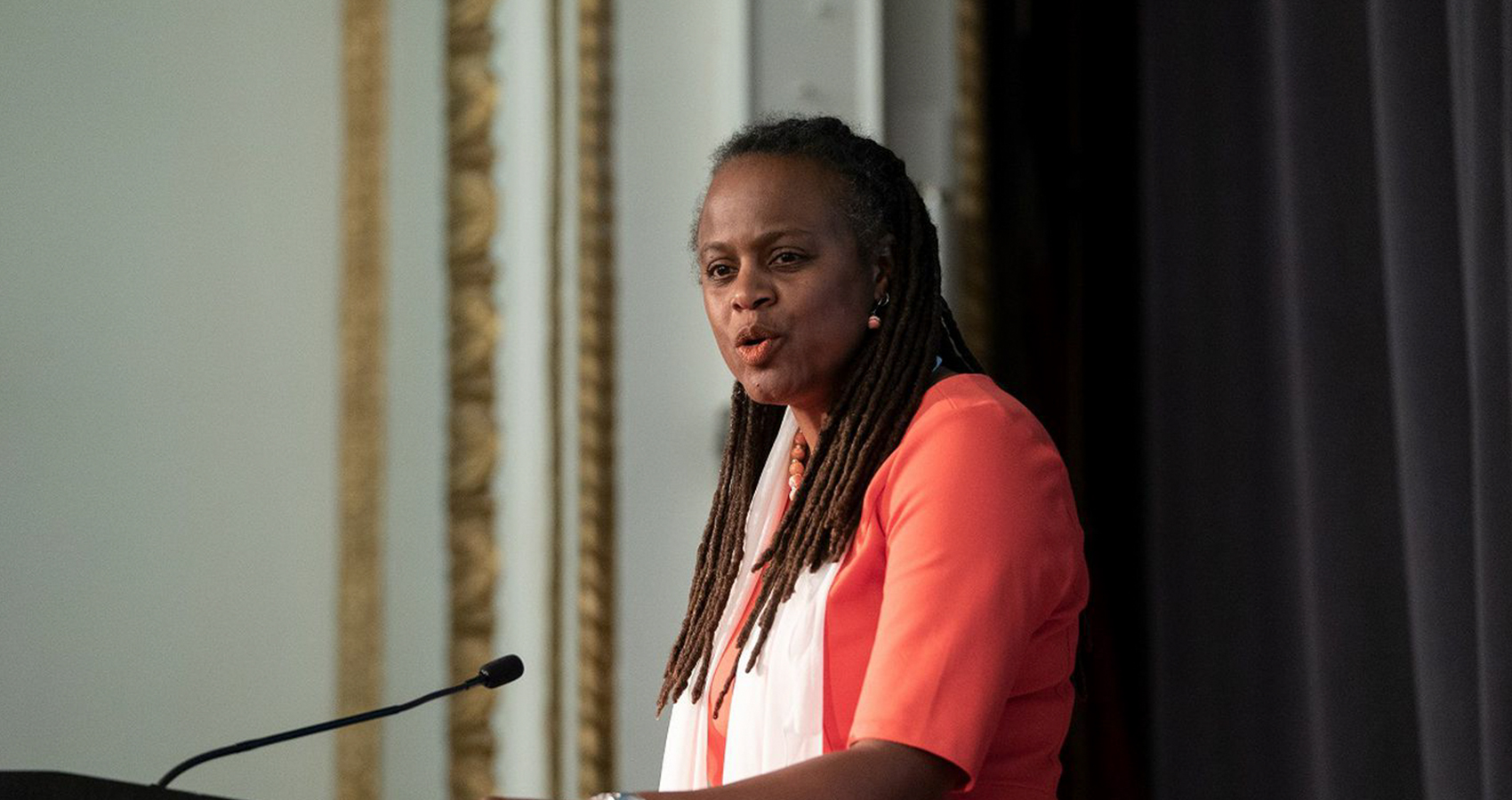
 In her Chai with Manju interview, Ms. Chandler talks about being addressed with the ‘N word ‘and not being allowed to join local clubs including the country club. She also talks about her being a professional basketball player and important lessons she has learnt as a player and also leadership lessons learnt in her journey to becoming the President & CEO of YWCA Boston, which is also the first YWCA in the United States.
In her Chai with Manju interview, Ms. Chandler talks about being addressed with the ‘N word ‘and not being allowed to join local clubs including the country club. She also talks about her being a professional basketball player and important lessons she has learnt as a player and also leadership lessons learnt in her journey to becoming the President & CEO of YWCA Boston, which is also the first YWCA in the United States.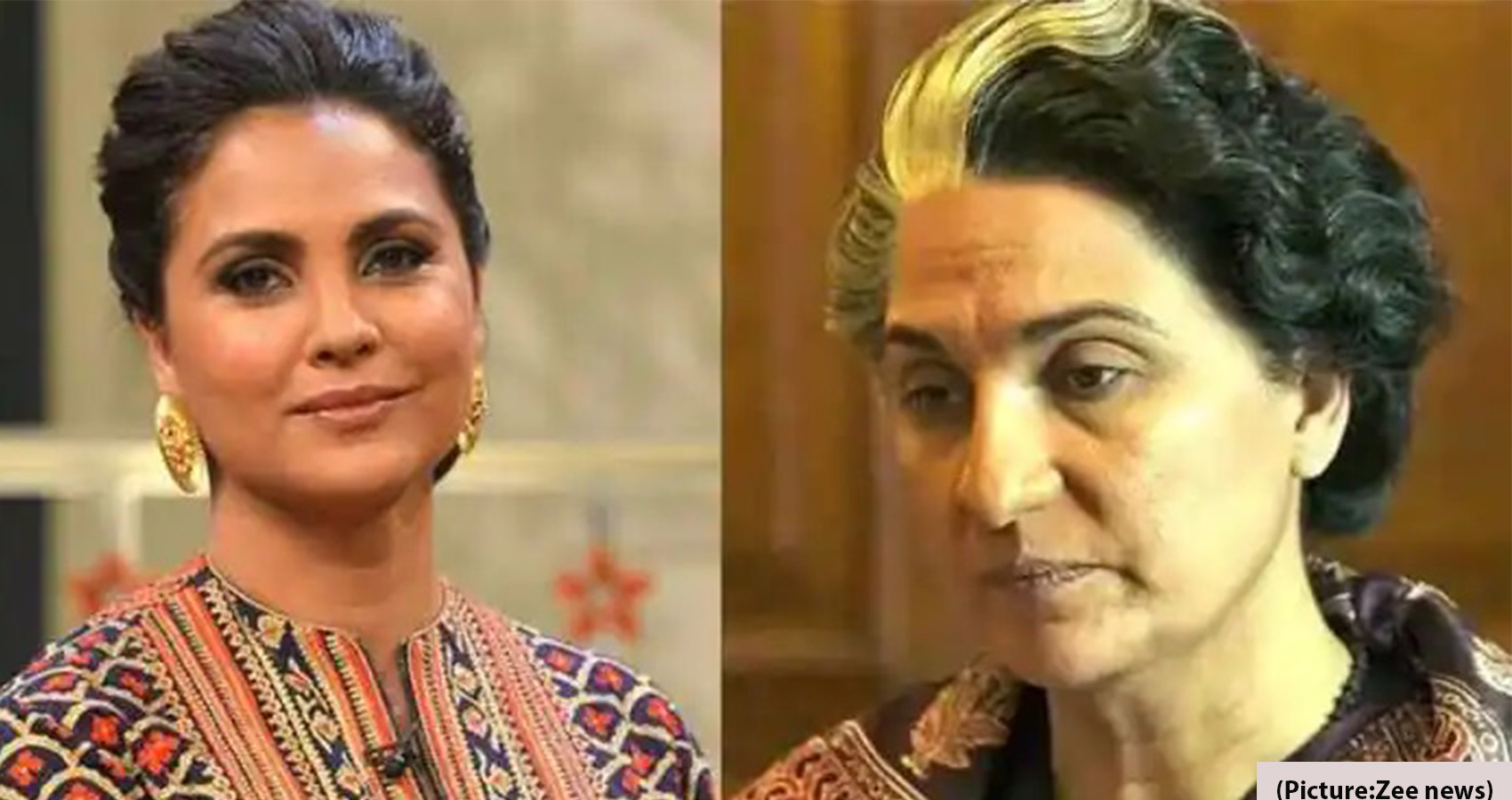
 Calling it an opportunity of a lifetime, she said it was a great responsibility to play the late former prime minister. “It is a great responsibility when you portray someone who’s an iconic figure like Mrs. Gandhi. It was very important to get her body language right,” the 46-year-old actress said at the ‘Bell Bottom’ trailer launch.
Calling it an opportunity of a lifetime, she said it was a great responsibility to play the late former prime minister. “It is a great responsibility when you portray someone who’s an iconic figure like Mrs. Gandhi. It was very important to get her body language right,” the 46-year-old actress said at the ‘Bell Bottom’ trailer launch.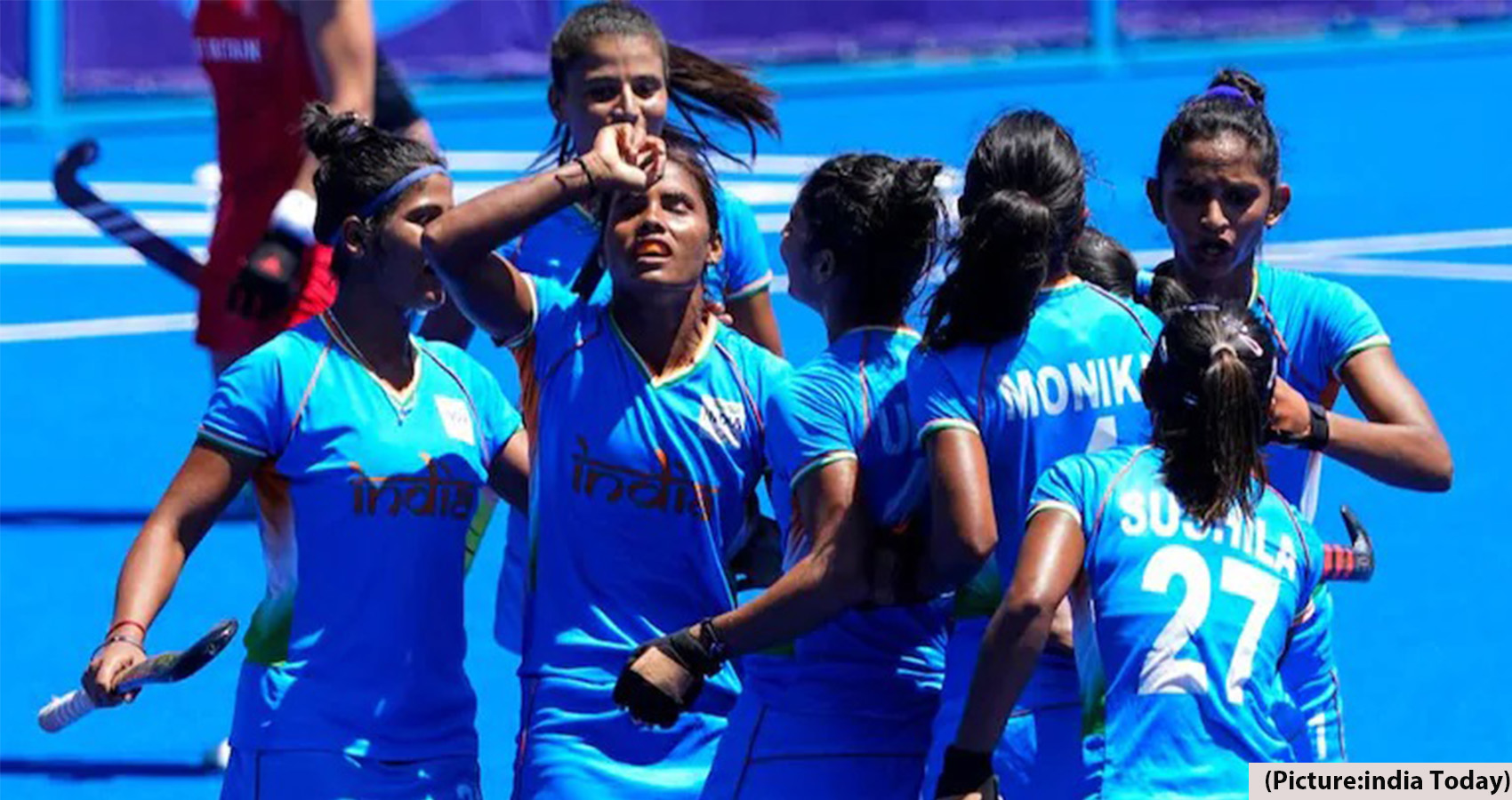
 India went down 4-3 to Great Britain in a closely-fought bronze medal playoff on August 6th despite fighting back from a two-goal deficit. The team led 3-2 at half-time but the British came back strongly in the second half and denied them a historic medal in only their third appearance in the Olympics since women’s hockey made its debut in 1980 at Moscow.
India went down 4-3 to Great Britain in a closely-fought bronze medal playoff on August 6th despite fighting back from a two-goal deficit. The team led 3-2 at half-time but the British came back strongly in the second half and denied them a historic medal in only their third appearance in the Olympics since women’s hockey made its debut in 1980 at Moscow.

 “I knew I had it in me, but obviously, I’ve had my ups and downs with injuries,” she said Saturday, referring to a persistent ailment in 2018 and 2019. “I’ve been keeping faith all this time. It is amazing.”
“I knew I had it in me, but obviously, I’ve had my ups and downs with injuries,” she said Saturday, referring to a persistent ailment in 2018 and 2019. “I’ve been keeping faith all this time. It is amazing.” Fraser-Pryce, who won the event at the Olympics in Beijing and London, came into the event trying to become the first woman to win three gold medals at this distance. The 34-year-old clocked the fastest time in the heats to qualify for the final, with a time quicker than her gold medal races.
Fraser-Pryce, who won the event at the Olympics in Beijing and London, came into the event trying to become the first woman to win three gold medals at this distance. The 34-year-old clocked the fastest time in the heats to qualify for the final, with a time quicker than her gold medal races.
 Sindhu, who won India’s historic silver at Rio Olympics in 2016, lost the semi-finals to Chinese Taipei’s Tai Tzu Ying on Saturday but defeated China’s He Bing Jiao the next day to secure the third spot at the podium.
Sindhu, who won India’s historic silver at Rio Olympics in 2016, lost the semi-finals to Chinese Taipei’s Tai Tzu Ying on Saturday but defeated China’s He Bing Jiao the next day to secure the third spot at the podium. Sindhu began earning global recognition for India when she entered the international circuit in 2009 at age 14, winning
Sindhu began earning global recognition for India when she entered the international circuit in 2009 at age 14, winning 
 Urging women to join the Women Who Win in empowering the next generation of Women Leaders, its co-founder Dr. Manju Sheth states, “We are excited to launch a free Mentorship/ Career Exploration program with six very successful women who have given their gift of time to empower other women. I have always believed that we learn from each other and grow together. My sincere gratitude to our mentors for making this dream a reality for us at Women Who Win platform.”
Urging women to join the Women Who Win in empowering the next generation of Women Leaders, its co-founder Dr. Manju Sheth states, “We are excited to launch a free Mentorship/ Career Exploration program with six very successful women who have given their gift of time to empower other women. I have always believed that we learn from each other and grow together. My sincere gratitude to our mentors for making this dream a reality for us at Women Who Win platform.”
 “Women’s diets were lacking in diverse foods even before the pandemic, but COVID-19 has further exacerbated the situation,” said Soumya Gupta, a research economist at TCI who coauthored the study along with
“Women’s diets were lacking in diverse foods even before the pandemic, but COVID-19 has further exacerbated the situation,” said Soumya Gupta, a research economist at TCI who coauthored the study along with 
 Kamala Harris was born to Indian-origin Shyamala Gopalan, a biomedical scientist, and Jamaican-origin Donald J. Harris, an economist and professor emeritus at Stanford University. Kamala and her sister were primarily raised by her mother after the couple parted ways.
Kamala Harris was born to Indian-origin Shyamala Gopalan, a biomedical scientist, and Jamaican-origin Donald J. Harris, an economist and professor emeritus at Stanford University. Kamala and her sister were primarily raised by her mother after the couple parted ways.
 Dr. Juthani is an infectious diseases physician at Yale School of Medicine in New Haven, where she specializes in the diagnosis, management, and prevention of infections in older adults. Her most recent area of interest is at the interface of infectious diseases and palliative care, including the role of antibiotics at the end of life, the press release from the Governor noted.
Dr. Juthani is an infectious diseases physician at Yale School of Medicine in New Haven, where she specializes in the diagnosis, management, and prevention of infections in older adults. Her most recent area of interest is at the interface of infectious diseases and palliative care, including the role of antibiotics at the end of life, the press release from the Governor noted.


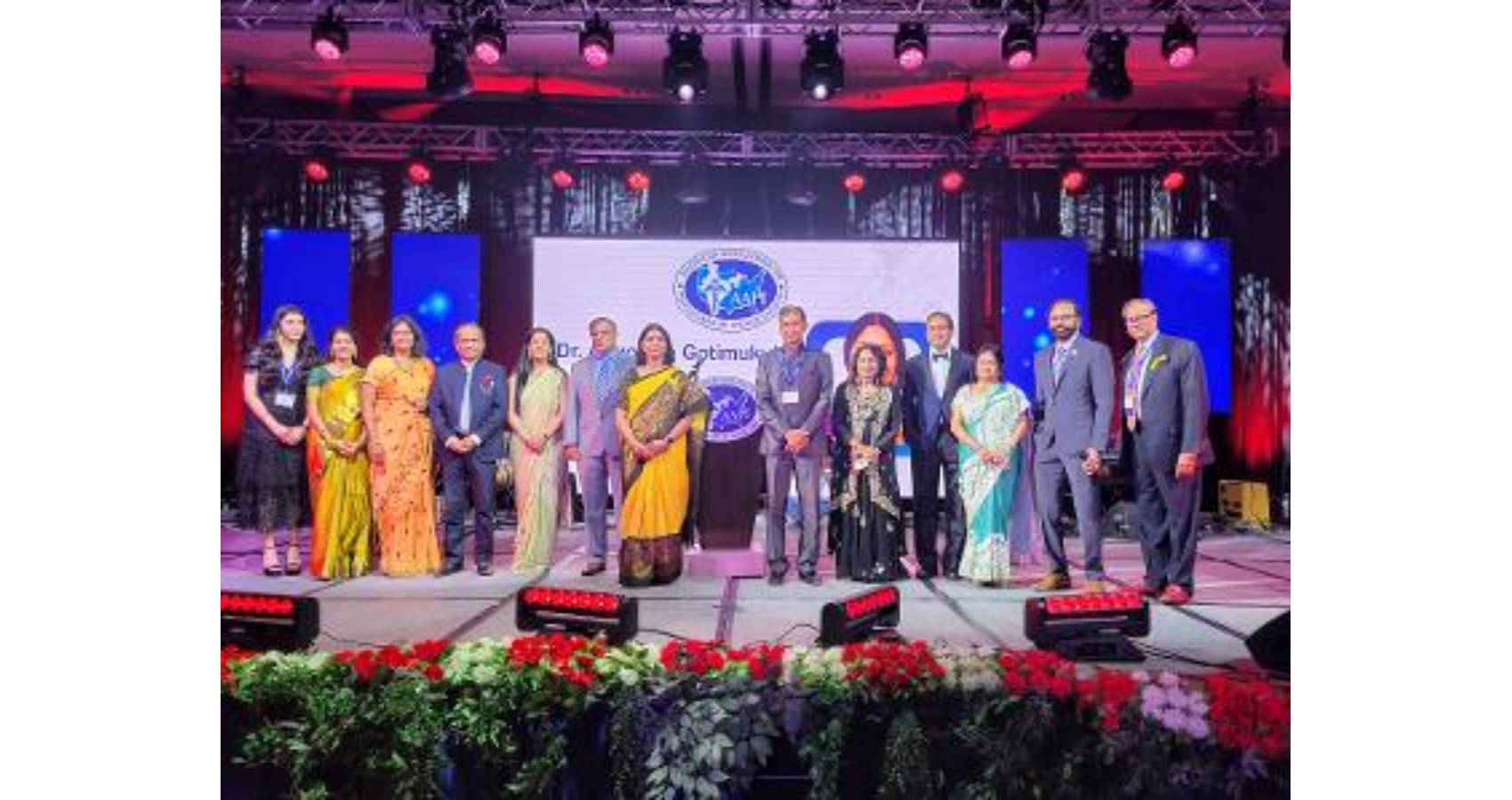
 Edited by the Delhi-based veteran journalist and foreign policy analystTarunBasu, the evocative collection titled, “Kamala Harris and the Rise of Indian Americans,” captures the rise of the Indians in the US across domains by exceptional achievers like Shashi Tharoor, a former UN public servant-turned Indian politician, and top diplomats like TP Sreenivasan and Arun K Singh. Sixteen eminent journalists, business leaders and scholars have contributed essays to the timely and priceless volume, which charts the community’s growing and influential political engagement. The book was released July 15 by New Delhi-based publisher Wisdom Tree and is available in the U.S. via Amazon. Basu describes the book as an “eclectic amalgam of perspectives on the emerging Indian-American story.”
Edited by the Delhi-based veteran journalist and foreign policy analystTarunBasu, the evocative collection titled, “Kamala Harris and the Rise of Indian Americans,” captures the rise of the Indians in the US across domains by exceptional achievers like Shashi Tharoor, a former UN public servant-turned Indian politician, and top diplomats like TP Sreenivasan and Arun K Singh. Sixteen eminent journalists, business leaders and scholars have contributed essays to the timely and priceless volume, which charts the community’s growing and influential political engagement. The book was released July 15 by New Delhi-based publisher Wisdom Tree and is available in the U.S. via Amazon. Basu describes the book as an “eclectic amalgam of perspectives on the emerging Indian-American story.”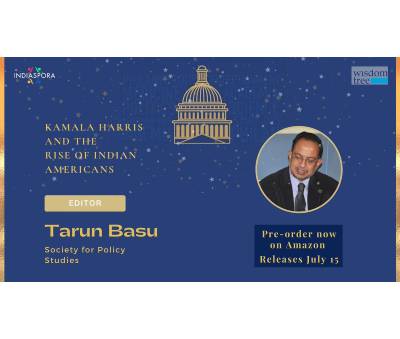 Basu has maintained a keen interest in the accomplishments of Indians abroad and has kept close touch with the community. The purpose of this anthology of essays edited by him is to bring to the global eye the unfolding saga of four million Indians in the United States. Indian Americans currently are just 1% of the US population but are expected to rise to 2% by 2030. Portraying the rise of the Indian American physicians as a strong and influential force in the United States, Ajay Ghosh chronicling their long journey to the United States and their success story, in a Chapter titled, “Physicians of Indian Heritage: America’s Healers” takes the readers to the times of Dr. AnandibaiJoshi, the first documented physician of Indian origin who had landed on the shores of the United States in 1883.
Basu has maintained a keen interest in the accomplishments of Indians abroad and has kept close touch with the community. The purpose of this anthology of essays edited by him is to bring to the global eye the unfolding saga of four million Indians in the United States. Indian Americans currently are just 1% of the US population but are expected to rise to 2% by 2030. Portraying the rise of the Indian American physicians as a strong and influential force in the United States, Ajay Ghosh chronicling their long journey to the United States and their success story, in a Chapter titled, “Physicians of Indian Heritage: America’s Healers” takes the readers to the times of Dr. AnandibaiJoshi, the first documented physician of Indian origin who had landed on the shores of the United States in 1883. “The nomination — and subsequent election — of the U.S.-born Indian origin Kamala Harris put the media spotlight on the small, but respected and high-achieving Indian American community,” writes Basu in his preface. “It is a fascinating and inspiring story of how an immigrant population from a developing country, with low education levels, became the most educated, highest-earning ethnic community in the world’s most advanced nation in almost a single generation,” he said, noting that Indian Americans have made their mark in almost every field, from the traditional trifecta of science, engineering and medicine, to the arts, academia, philanthropy, and, increasingly, politics.
“The nomination — and subsequent election — of the U.S.-born Indian origin Kamala Harris put the media spotlight on the small, but respected and high-achieving Indian American community,” writes Basu in his preface. “It is a fascinating and inspiring story of how an immigrant population from a developing country, with low education levels, became the most educated, highest-earning ethnic community in the world’s most advanced nation in almost a single generation,” he said, noting that Indian Americans have made their mark in almost every field, from the traditional trifecta of science, engineering and medicine, to the arts, academia, philanthropy, and, increasingly, politics.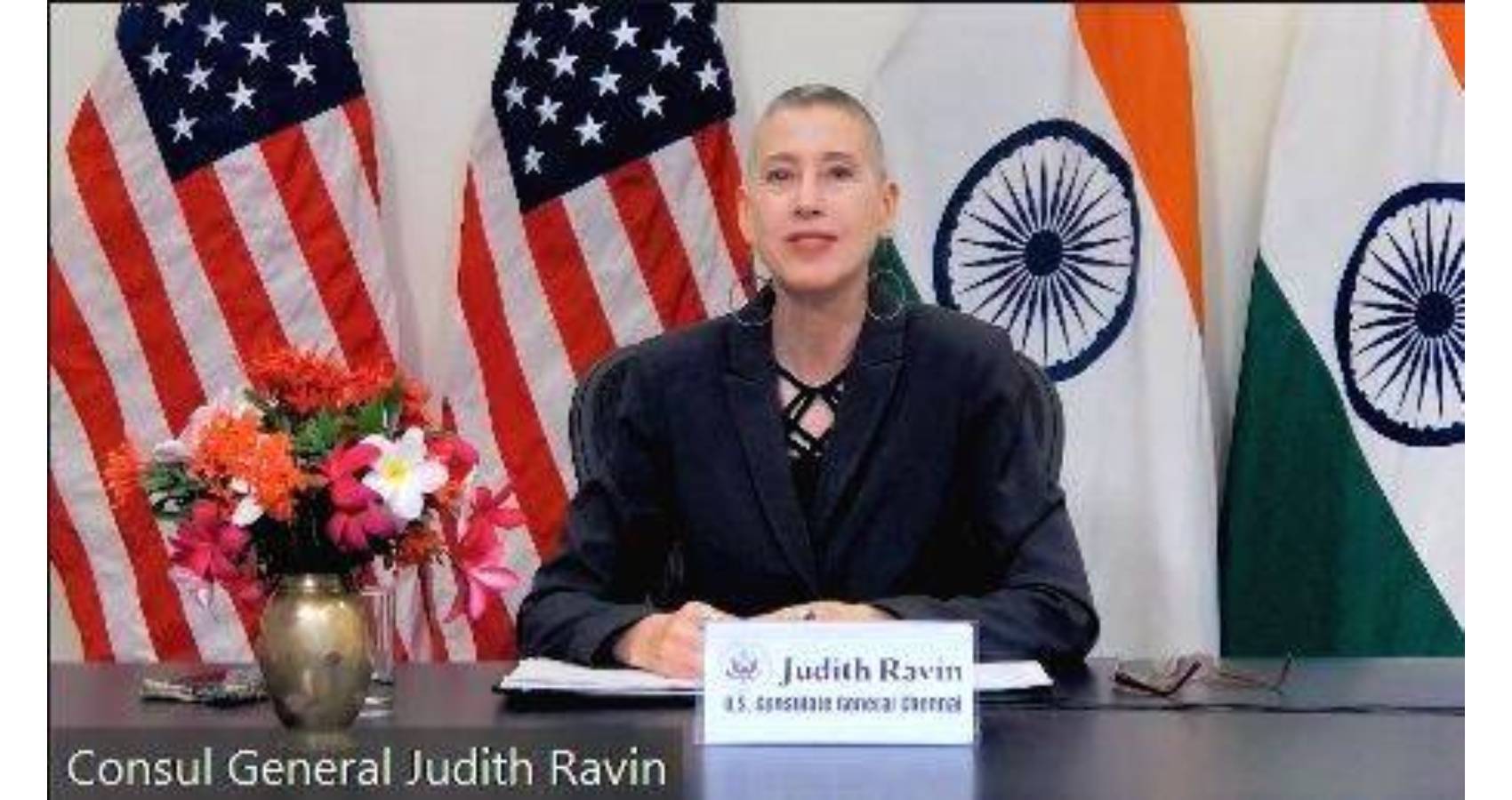
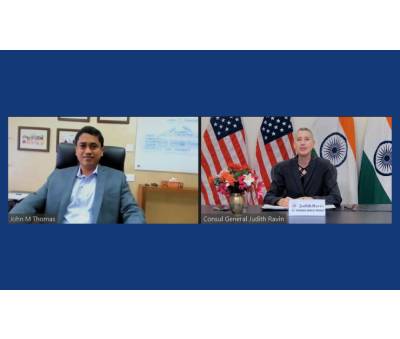 She was welcomed to the city by C.V. Ranvindra, a leading economist and the director of Thiruvananthapuram’s International airport. In his discussion with the Consul General, he explained the Kerala Model of Development, which emphasizes both the traditional and modern sectors like IT, tourism, space technology, and coastal infrastructure. She was also led on a virtual tour of the Government of Kerala’s Technopark by its CEO John M. Thomas. Technopark is the largest IT Park in India. Representatives from 7 major Indian and U.S. IT companies met with the General Consul to discuss Kerala’s current business environment.
She was welcomed to the city by C.V. Ranvindra, a leading economist and the director of Thiruvananthapuram’s International airport. In his discussion with the Consul General, he explained the Kerala Model of Development, which emphasizes both the traditional and modern sectors like IT, tourism, space technology, and coastal infrastructure. She was also led on a virtual tour of the Government of Kerala’s Technopark by its CEO John M. Thomas. Technopark is the largest IT Park in India. Representatives from 7 major Indian and U.S. IT companies met with the General Consul to discuss Kerala’s current business environment.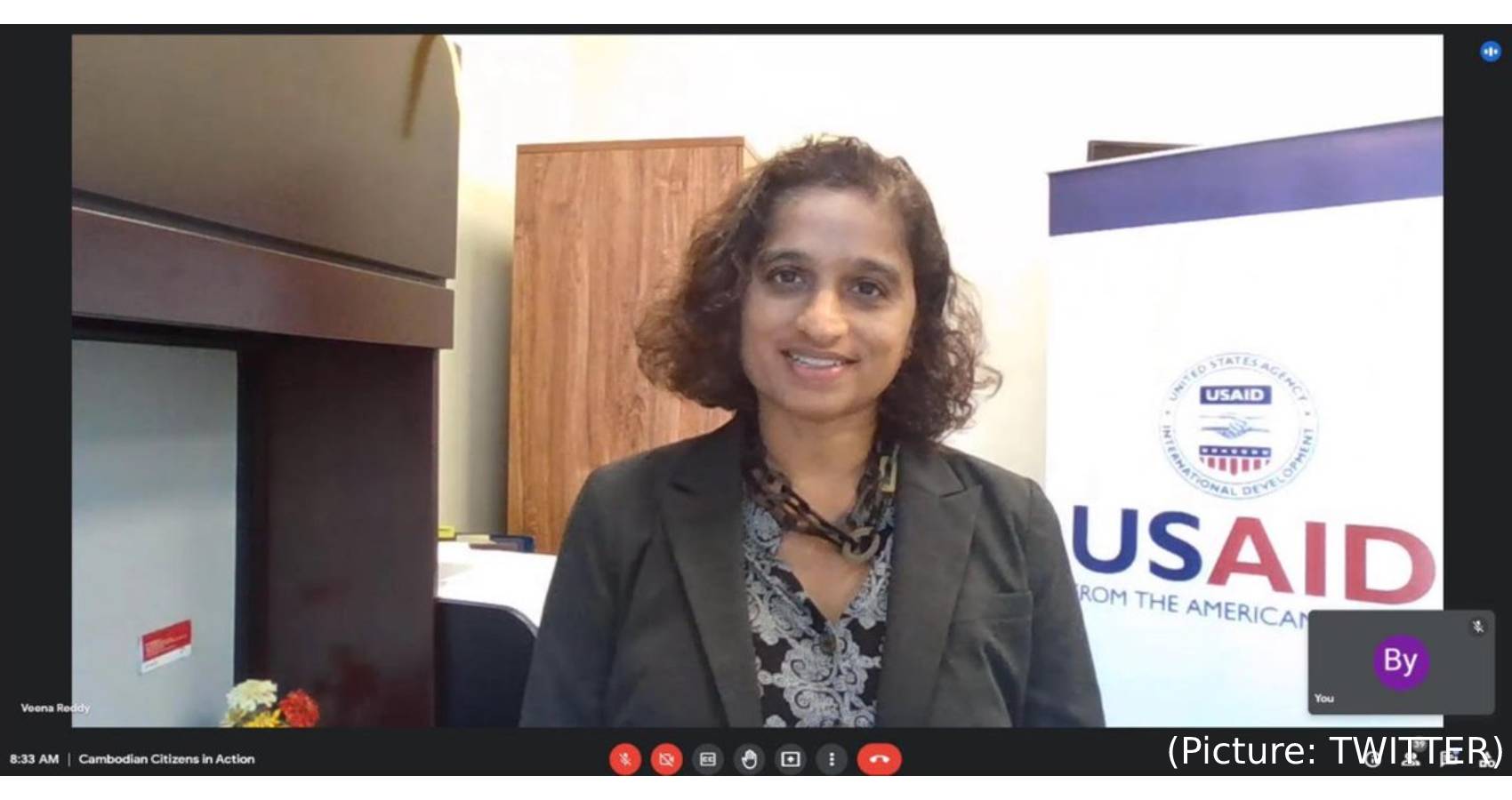
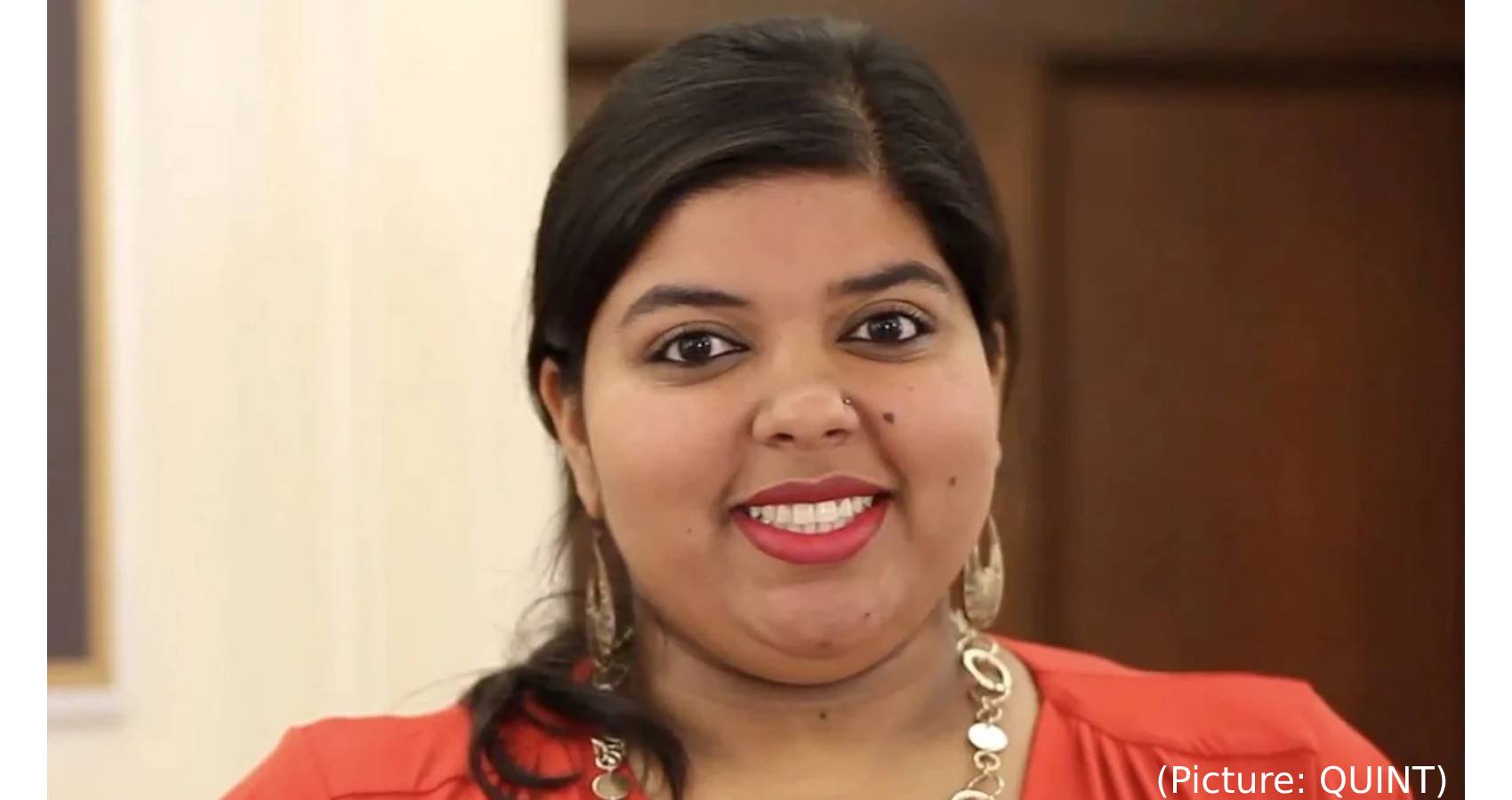

 The researchers conducted an online survey of nurses and other non-physician health care workers (HCWs), and received responses from 2,459 participants who provided direct patient care. The survey focused on risk factors for decreased well-being: a key contributor to the epidemic of burnout among health care professionals. The survey also evaluated aspects of resilience. Defined as the ability to cope with and adapt positively to adversity, resilience is an important contributor to well-being. Data were collected in June and July 2020, providing a snapshot of well-being and resilience among HCWs a few months into the pandemic.
The researchers conducted an online survey of nurses and other non-physician health care workers (HCWs), and received responses from 2,459 participants who provided direct patient care. The survey focused on risk factors for decreased well-being: a key contributor to the epidemic of burnout among health care professionals. The survey also evaluated aspects of resilience. Defined as the ability to cope with and adapt positively to adversity, resilience is an important contributor to well-being. Data were collected in June and July 2020, providing a snapshot of well-being and resilience among HCWs a few months into the pandemic.
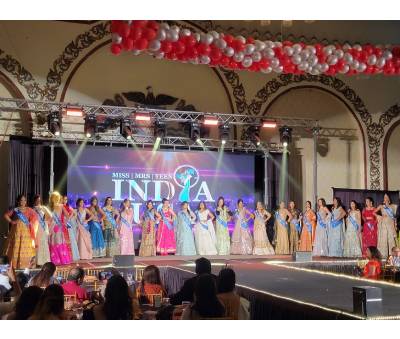 Vaidehi Dongre, 25, a graduate of University of Michigan with International Business as Major, currently employed as Business Development Manager with New Zealand Trade Commission, won the coveted Miss India USA 2021 Pageant on Friday, July 16th at Royal Alberts Palace, Edison, NJ. Organized by the New York based India Festival Committee (IFC) and chaired by Neelam & Dharmatma Saran, this is the longest running Indian pageant outside of India.” I am overwhelmed with the great response this year, said Dharmatma Saran, “with a record number of 61 contestants representing 30 states from across the United States.”
Vaidehi Dongre, 25, a graduate of University of Michigan with International Business as Major, currently employed as Business Development Manager with New Zealand Trade Commission, won the coveted Miss India USA 2021 Pageant on Friday, July 16th at Royal Alberts Palace, Edison, NJ. Organized by the New York based India Festival Committee (IFC) and chaired by Neelam & Dharmatma Saran, this is the longest running Indian pageant outside of India.” I am overwhelmed with the great response this year, said Dharmatma Saran, “with a record number of 61 contestants representing 30 states from across the United States.”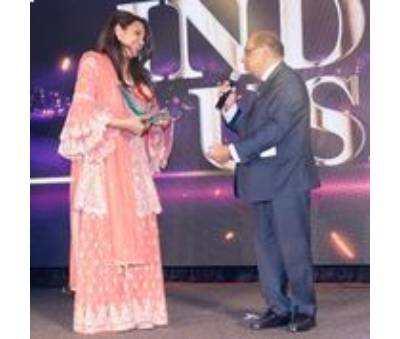 Sonal Dua, 36, from North Carolina won the Mrs Talented Title; Mrs Congeniality was Mohana Namle, 35, from Connecticut. Harshada Patil Fegade, 32 walked away with the Mrs Catwalk Title. Mrs Photogenic was Aparna Chakravarty, 55 from Florida; Mrs Popularity was Swathy Vimalkumar, 32 of Connecticut, and Mrs Chairman Professional was Sheetal Rana, 36 from New York. Amelia Mallareddy from North Carolina was declared Miss Beautiful Face, while Miss Catwalk was Mira Kasari from North Carolina. Rishika Pal of Massachusetts took the
Sonal Dua, 36, from North Carolina won the Mrs Talented Title; Mrs Congeniality was Mohana Namle, 35, from Connecticut. Harshada Patil Fegade, 32 walked away with the Mrs Catwalk Title. Mrs Photogenic was Aparna Chakravarty, 55 from Florida; Mrs Popularity was Swathy Vimalkumar, 32 of Connecticut, and Mrs Chairman Professional was Sheetal Rana, 36 from New York. Amelia Mallareddy from North Carolina was declared Miss Beautiful Face, while Miss Catwalk was Mira Kasari from North Carolina. Rishika Pal of Massachusetts took the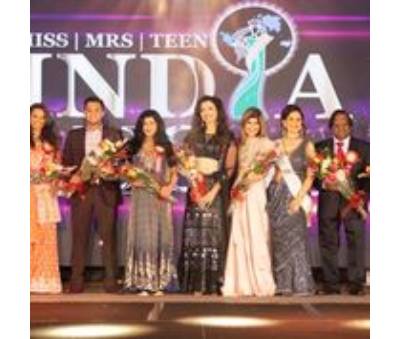 Diana Hayden, a popular Indian actress from Bollywood and Miss World 1997 was the Chief Guest. Shruthi Bekal, Mrs India USA 2019 and Tarna Kaur, Mrs India Worldwide 2019 elegantly emceed the pageant. Kim Kunari, former Miss India USA 2019 and Easha Kode, the first ever Miss Teen India USA were emcees for the pre-pageant event on July 15th. Nishi Bahl was the choreographer assisted by Shilpa Jhurani. This year’s pageant was presented by Yash Pandya and supported by TV Asia and Royal Albert’s Palace. Yash Pandya, Albert Jassani and H R Shah sashed the winners at the pageant.
Diana Hayden, a popular Indian actress from Bollywood and Miss World 1997 was the Chief Guest. Shruthi Bekal, Mrs India USA 2019 and Tarna Kaur, Mrs India Worldwide 2019 elegantly emceed the pageant. Kim Kunari, former Miss India USA 2019 and Easha Kode, the first ever Miss Teen India USA were emcees for the pre-pageant event on July 15th. Nishi Bahl was the choreographer assisted by Shilpa Jhurani. This year’s pageant was presented by Yash Pandya and supported by TV Asia and Royal Albert’s Palace. Yash Pandya, Albert Jassani and H R Shah sashed the winners at the pageant.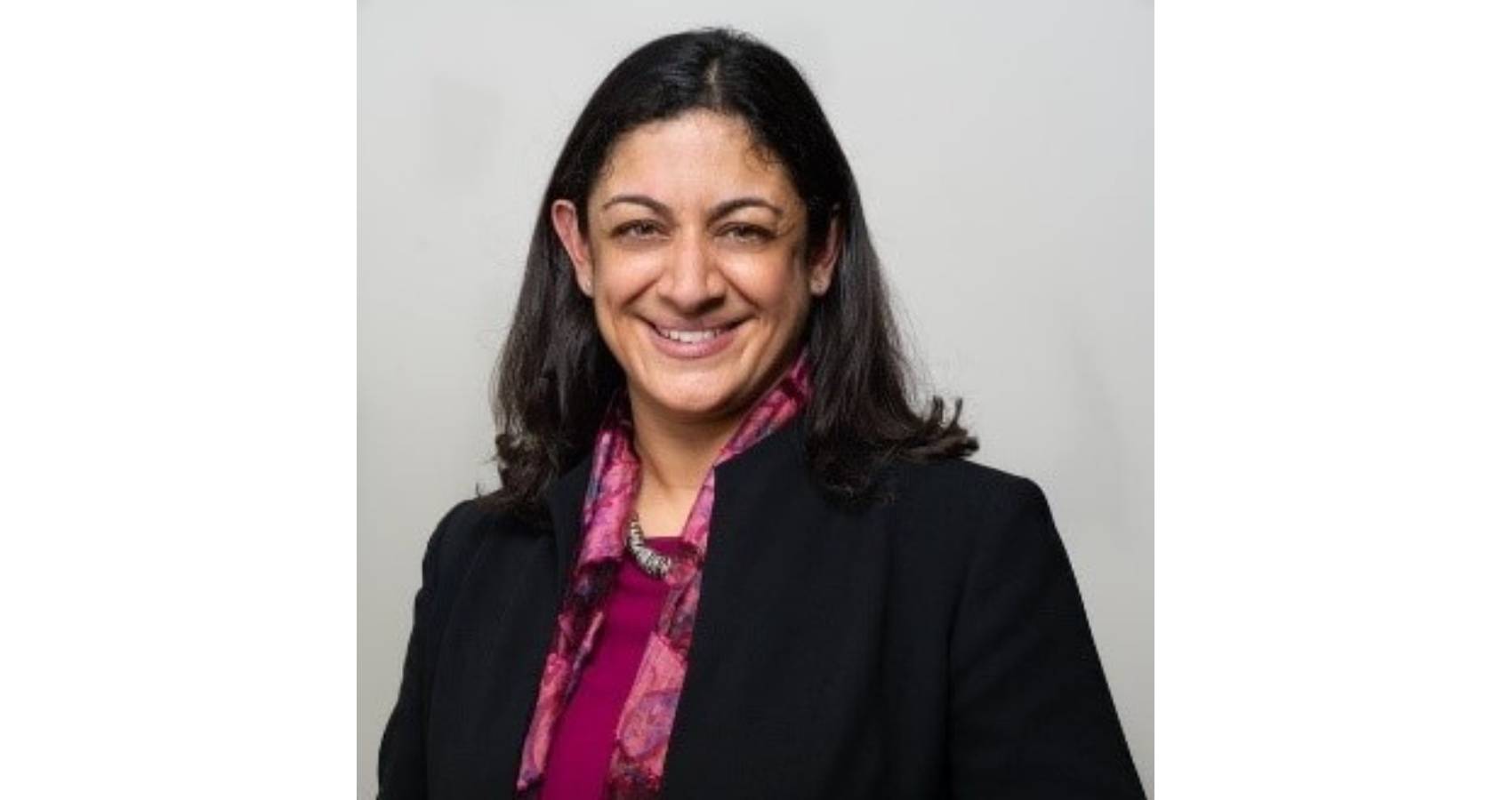
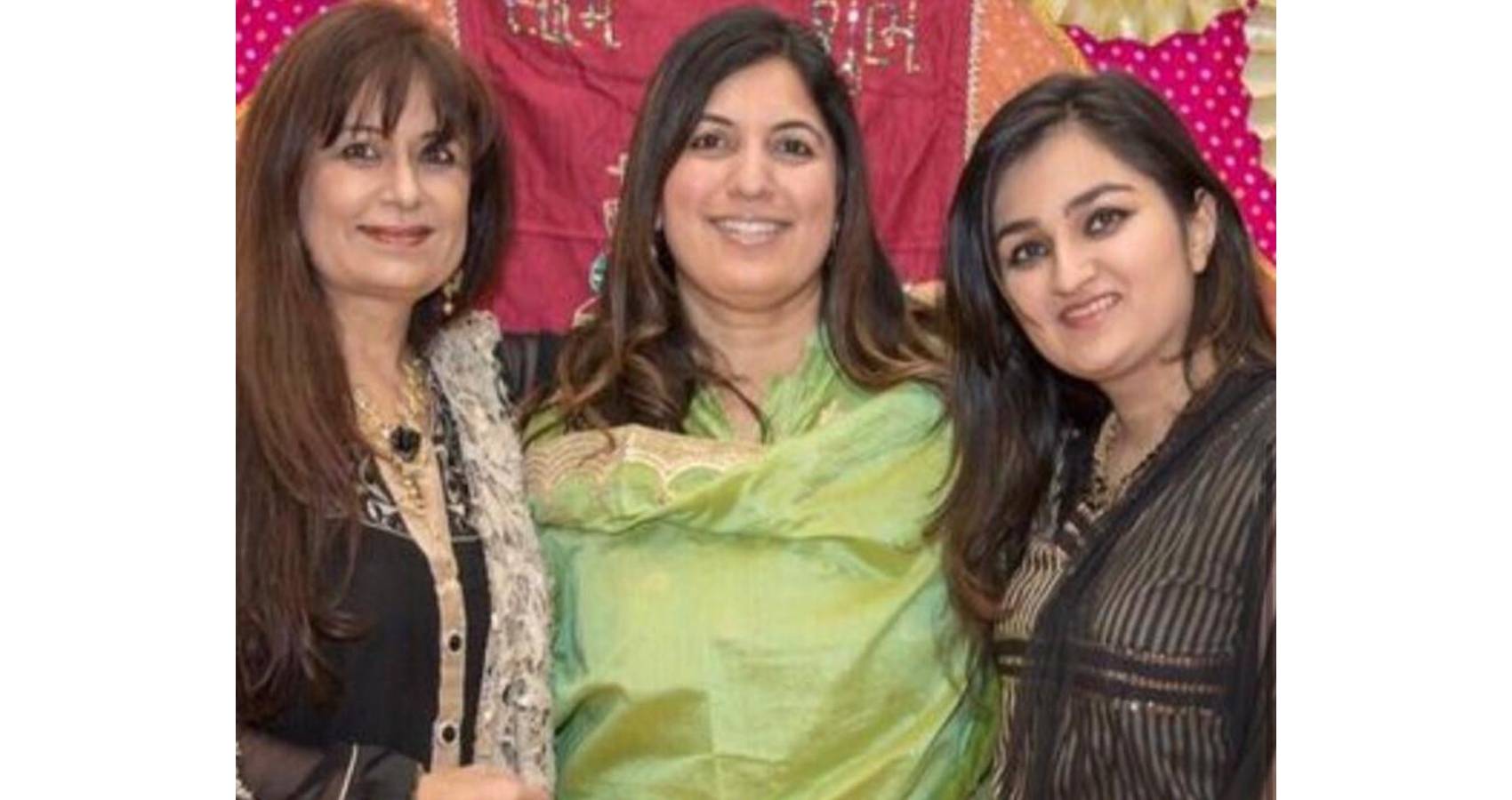
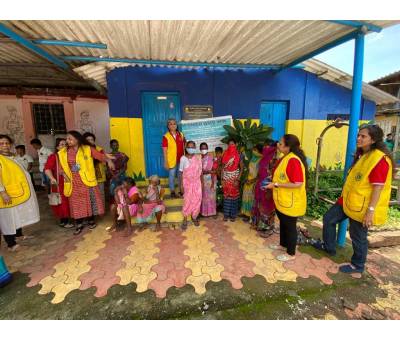 Women Who Win collaborated with the Indian Medical Association of New England to provide the shoes and educational materials on proper foot health. This summer, they had an outstanding response to their pilot program. They partnered with Lions Club of Juhu in Mumbai, to donate over 700 pairs of shoes to the women of the Adivasi village. These women were excited to finally have the right footwear to complete their work, and showed sincere blessings to our entire team. Co-founder Dr. Manju Sheth states, “The donation of shoes project to those who need it the most has been the fulfillment of the dream of our co-founders. As a physician,I have seen up close the devastation caused by multiple medical conditions including diabetes on the feet including ulcers ,gangrene leading to amputations.
Women Who Win collaborated with the Indian Medical Association of New England to provide the shoes and educational materials on proper foot health. This summer, they had an outstanding response to their pilot program. They partnered with Lions Club of Juhu in Mumbai, to donate over 700 pairs of shoes to the women of the Adivasi village. These women were excited to finally have the right footwear to complete their work, and showed sincere blessings to our entire team. Co-founder Dr. Manju Sheth states, “The donation of shoes project to those who need it the most has been the fulfillment of the dream of our co-founders. As a physician,I have seen up close the devastation caused by multiple medical conditions including diabetes on the feet including ulcers ,gangrene leading to amputations.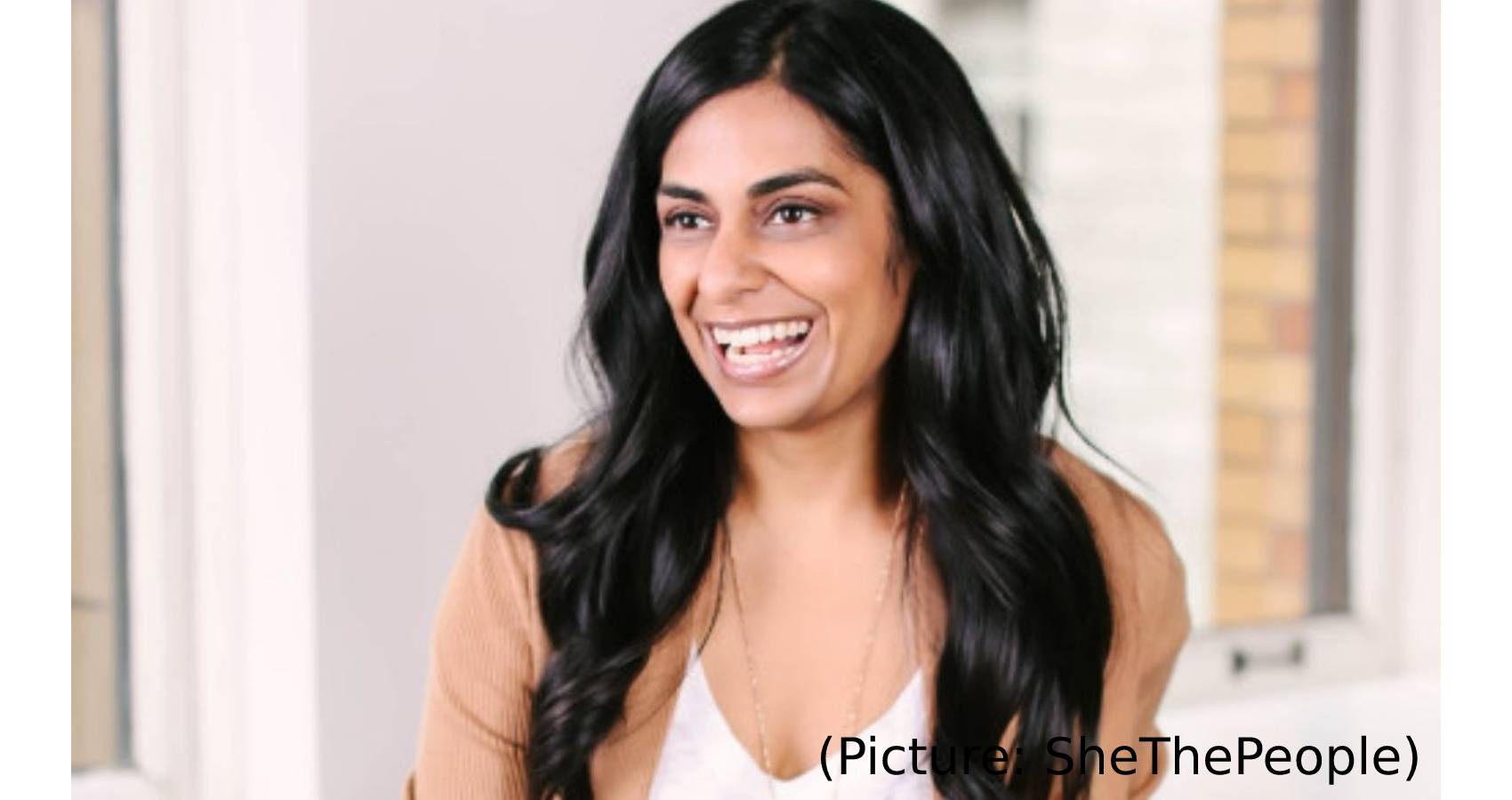


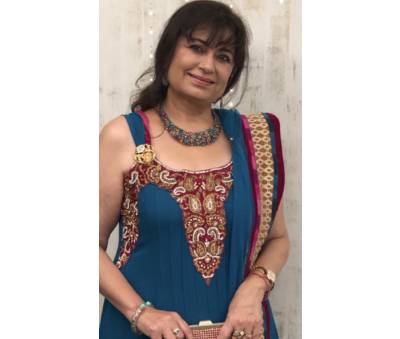 Her advice to those looking for a career in Fashion industry is very timely. She also talks about her fashion icons and styles that she loves including that of our VP Kamala Harris and how much she would love to dress Madonna. Masaba’s bold and beautiful designs which combine traditions with needs of modern women have made her the game changer of the industry. She is the daughter of National award winning actress Neena Gupta and West Indian cricketer, Legendary Vivian Richards.“It was great to have a candid conversation with her. She is so down to earth and fun .She shared her journey of self love and appreciation after a very tough childhood as a biracial child in stereotypical India, adds Dr. Manju.
Her advice to those looking for a career in Fashion industry is very timely. She also talks about her fashion icons and styles that she loves including that of our VP Kamala Harris and how much she would love to dress Madonna. Masaba’s bold and beautiful designs which combine traditions with needs of modern women have made her the game changer of the industry. She is the daughter of National award winning actress Neena Gupta and West Indian cricketer, Legendary Vivian Richards.“It was great to have a candid conversation with her. She is so down to earth and fun .She shared her journey of self love and appreciation after a very tough childhood as a biracial child in stereotypical India, adds Dr. Manju.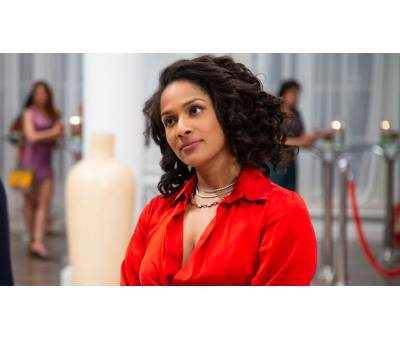 A physician by profession, having a passion for media and commitment to serve the larger humanity, with special focus on women’s empowerment, Dr. Manju Sheth is a Board Certified Internist, currently serving patients at Beth Israel Lahey Hospital.in the Boston Region in Massachusetts. Dr. Sheth is the co-founder and CEO of INE MultiMedia, a non-profit organization devoted to promoting and supporting charitable organizations, art, culture, education and empowerment through workshops, seminars and multimedia. Dr. Sheth is known to be a natural storyteller her popular “Chai with Manju” celebrity series is one of the most read news features in the New England region, where she featured celebrities and spiritual leaders such as Sadhguru, Sri Sri Ravi Shankar, the Kennedys and the like.
A physician by profession, having a passion for media and commitment to serve the larger humanity, with special focus on women’s empowerment, Dr. Manju Sheth is a Board Certified Internist, currently serving patients at Beth Israel Lahey Hospital.in the Boston Region in Massachusetts. Dr. Sheth is the co-founder and CEO of INE MultiMedia, a non-profit organization devoted to promoting and supporting charitable organizations, art, culture, education and empowerment through workshops, seminars and multimedia. Dr. Sheth is known to be a natural storyteller her popular “Chai with Manju” celebrity series is one of the most read news features in the New England region, where she featured celebrities and spiritual leaders such as Sadhguru, Sri Sri Ravi Shankar, the Kennedys and the like.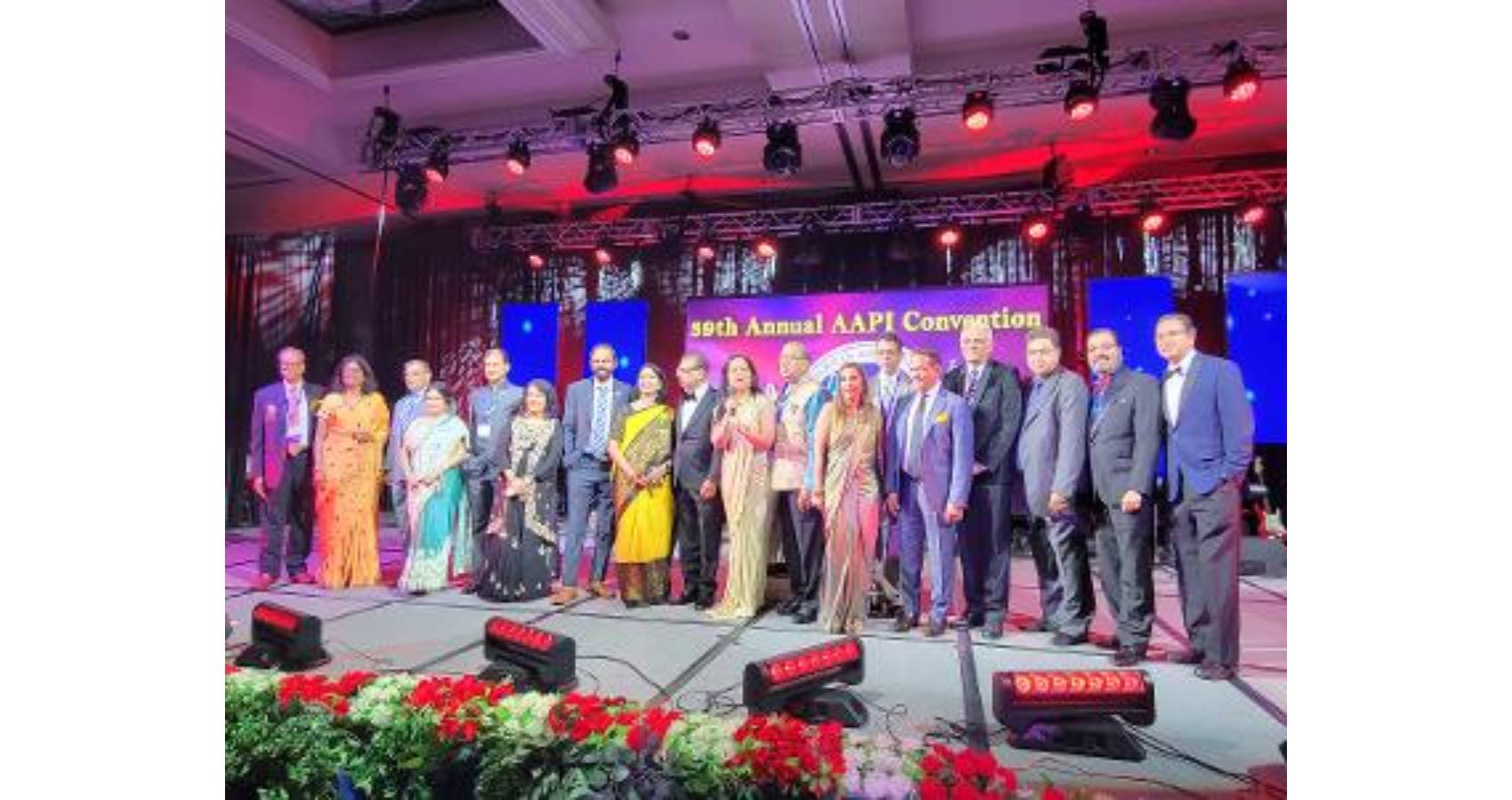
 In her inaugural address after she was administered the oath of Office, Dr. Gotimukula reminded the AAPI members about our origin. “We came to the US pursuing the American Dream. Through hard work and a bit of luck, most of us achieved that dream and have become successful and caring doctors who play a crucial role in the American healthcare system. We serve patients. Raise money for local causes. Contribute to our education system and improve the lives of millions of Americans. We joined AAPI to socialize and meet others like us and in that journey learned that through this wonderful organization, we were able to make a bigger impact with the many academic, philanthropic and social initiatives.”
In her inaugural address after she was administered the oath of Office, Dr. Gotimukula reminded the AAPI members about our origin. “We came to the US pursuing the American Dream. Through hard work and a bit of luck, most of us achieved that dream and have become successful and caring doctors who play a crucial role in the American healthcare system. We serve patients. Raise money for local causes. Contribute to our education system and improve the lives of millions of Americans. We joined AAPI to socialize and meet others like us and in that journey learned that through this wonderful organization, we were able to make a bigger impact with the many academic, philanthropic and social initiatives.”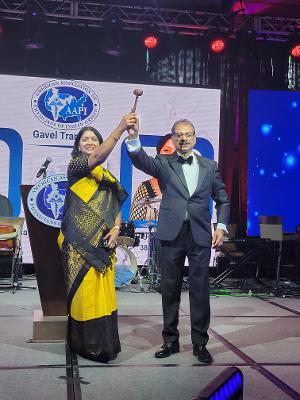 A resident of San Antonio, TX, Dr.Gotimukula is a board certified Pediatric Anesthesiologist, practicing since 2007, is affiliated with Christus Santa Rosa, Baptist and Methodist Healthcare systems in San Antonio. After graduating with distinction from Kakatiya Medical College, NTR University of Health Sciences in India, she did Residency at University of Miami & University of Illinois, and Fellowship in Pediatric Anesthesiology at University of Michigan.
A resident of San Antonio, TX, Dr.Gotimukula is a board certified Pediatric Anesthesiologist, practicing since 2007, is affiliated with Christus Santa Rosa, Baptist and Methodist Healthcare systems in San Antonio. After graduating with distinction from Kakatiya Medical College, NTR University of Health Sciences in India, she did Residency at University of Miami & University of Illinois, and Fellowship in Pediatric Anesthesiology at University of Michigan.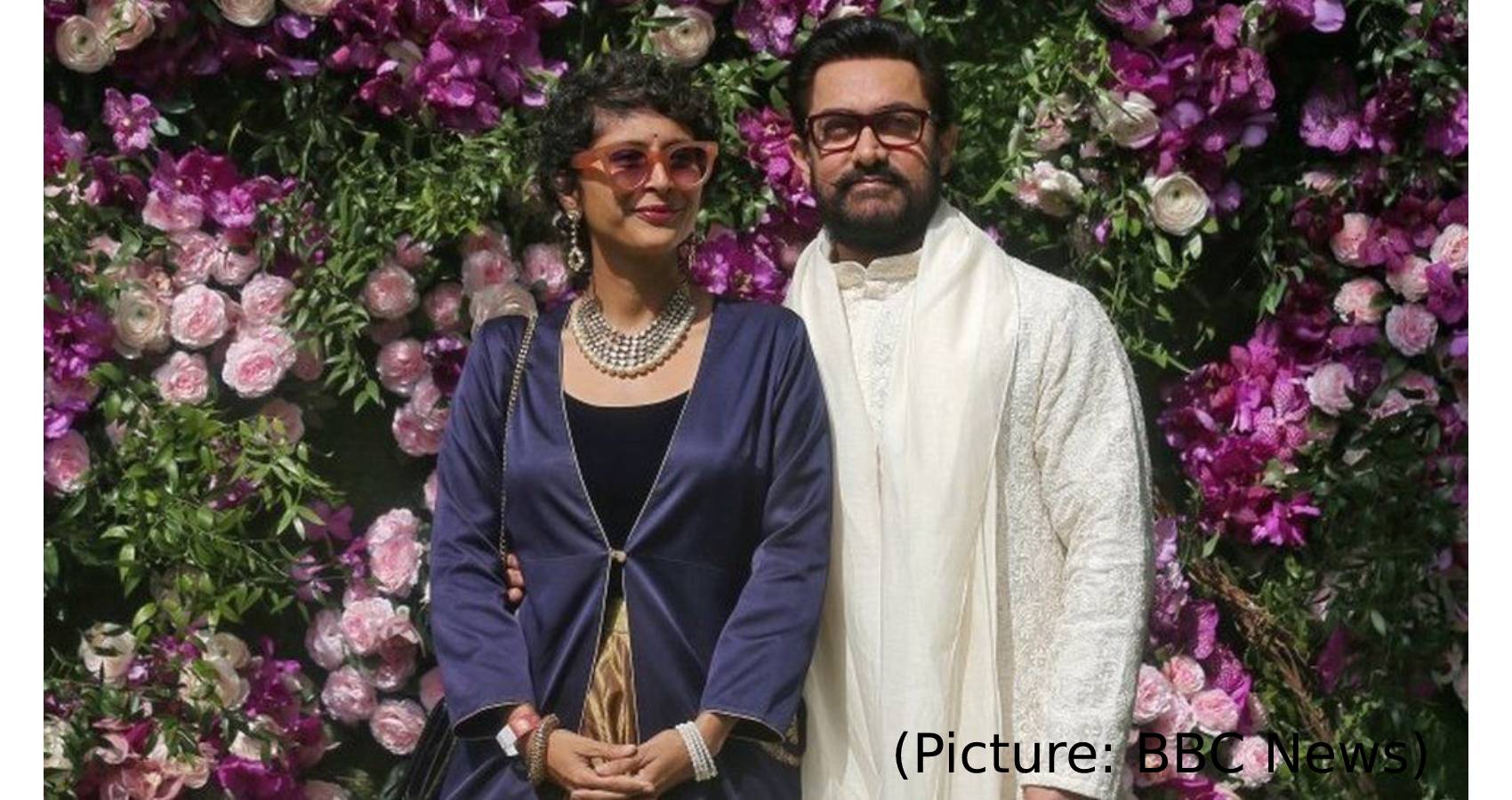
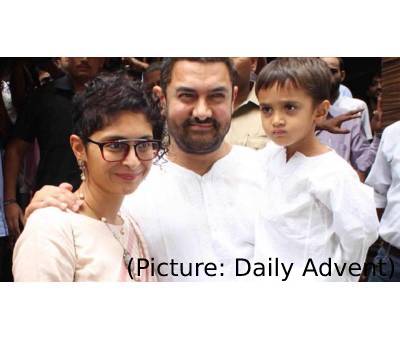 “In these 15 beautiful years together we have shared a lifetime of experiences, joy and laughter,” the statement said. Khan, 56, and Rao, 47, first met in 2001, and married four years later. They said they wanted to “begin a new chapter in our lives – no longer as husband and wife, but as co-parents and family for each other”. They added that their relationship had “only grown in trust, respect and love”. They met on sets of the AshutoshGowariker-directed Lagaan (2001), one of the most commercially successful Indian movies, where the former was an assistant director. Their romance, Khan said in some interviews, bloomed later when the actor was going through the process of legal separation from his first wife, Reena Dutta. Khan and Dutta, who have a son, Junaid, and a daughter, Ira, together, divorced in 2002.
“In these 15 beautiful years together we have shared a lifetime of experiences, joy and laughter,” the statement said. Khan, 56, and Rao, 47, first met in 2001, and married four years later. They said they wanted to “begin a new chapter in our lives – no longer as husband and wife, but as co-parents and family for each other”. They added that their relationship had “only grown in trust, respect and love”. They met on sets of the AshutoshGowariker-directed Lagaan (2001), one of the most commercially successful Indian movies, where the former was an assistant director. Their romance, Khan said in some interviews, bloomed later when the actor was going through the process of legal separation from his first wife, Reena Dutta. Khan and Dutta, who have a son, Junaid, and a daughter, Ira, together, divorced in 2002. Kiran Rao and Aamir Khan’s plain-spoken statement assures that they will continue collaborating on work and pet projects. “We began a planned separation some time ago, and now feel comfortable to formalise this arrangement, of living separately yet sharing our lives the way an extended family does. We remain devoted parents to our son Azad, who we will nurture and raise together. We will also continue to work as collaborators on films, Paani Foundation, and other projects that we feel passionate about,” they said. Announcing Azad’s birth in 2011, the former couple had shown similar forthrightness when they mentioned that he was born after “a long wait” and “through IVF-surrogacy”. They ended their statement saying: “A big thank you to our families and friends for their constant support and understanding about this evolution in our relationship, and without whom we would not have been so secure in taking this leap. We request our well wishers for good wishes and blessings, and hope that — like us — you will see this divorce not as an end, but as the start of a new journey.”
Kiran Rao and Aamir Khan’s plain-spoken statement assures that they will continue collaborating on work and pet projects. “We began a planned separation some time ago, and now feel comfortable to formalise this arrangement, of living separately yet sharing our lives the way an extended family does. We remain devoted parents to our son Azad, who we will nurture and raise together. We will also continue to work as collaborators on films, Paani Foundation, and other projects that we feel passionate about,” they said. Announcing Azad’s birth in 2011, the former couple had shown similar forthrightness when they mentioned that he was born after “a long wait” and “through IVF-surrogacy”. They ended their statement saying: “A big thank you to our families and friends for their constant support and understanding about this evolution in our relationship, and without whom we would not have been so secure in taking this leap. We request our well wishers for good wishes and blessings, and hope that — like us — you will see this divorce not as an end, but as the start of a new journey.”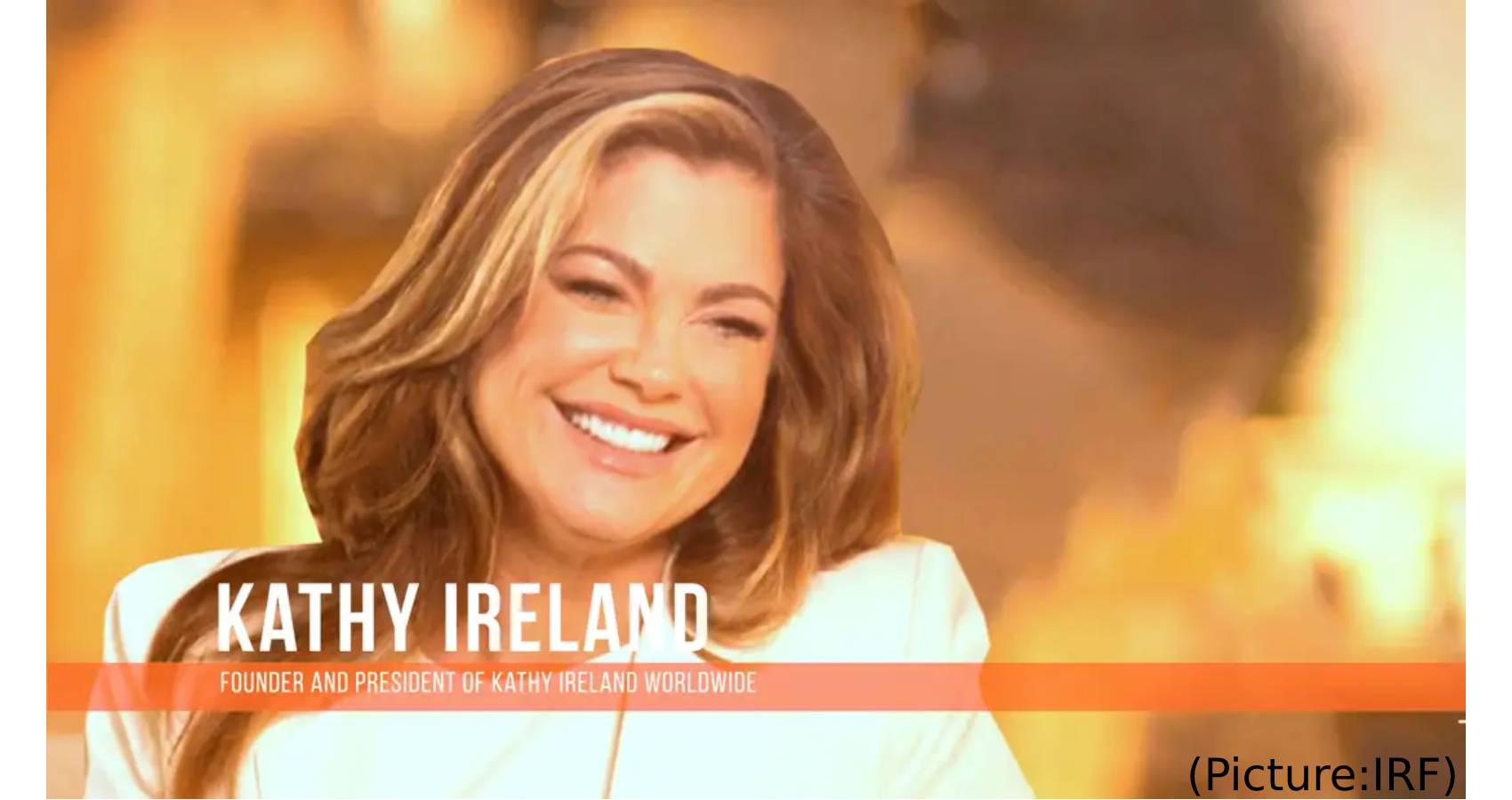
 Kathy’s engagement did not stop when the genocide did. This August 22, Kathy is co-hosting with the Religious Freedom & Business Foundation a
Kathy’s engagement did not stop when the genocide did. This August 22, Kathy is co-hosting with the Religious Freedom & Business Foundation a 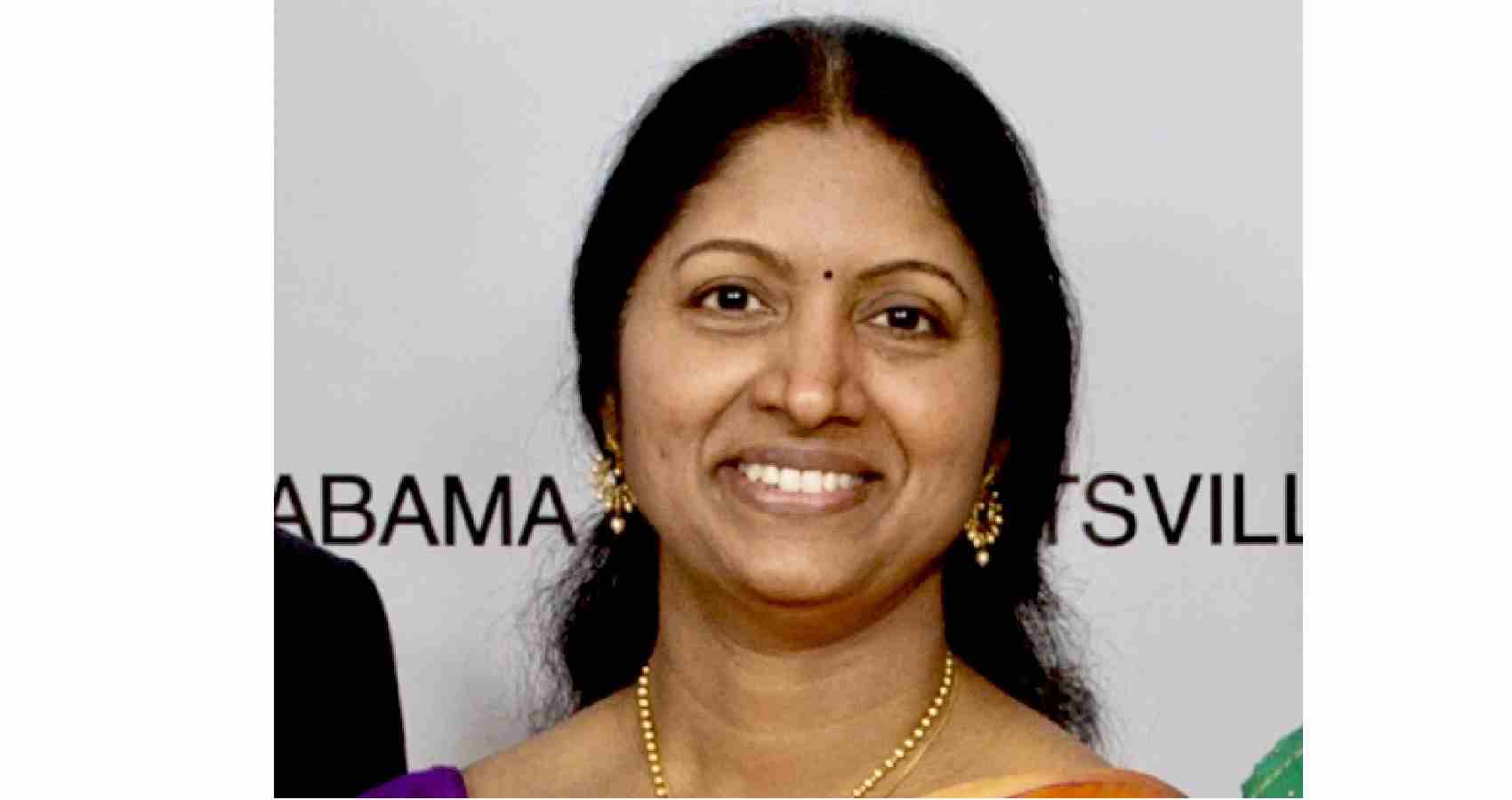
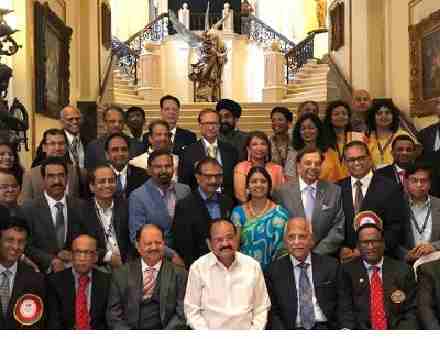
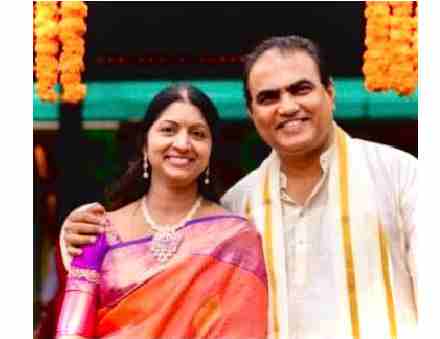 After graduating with distinction from Kakatiya Medical College, NTR University of Health Sciences in India, she did Residency at University of Miami & University of Illinois, and Fellowship in Pediatric Anesthesiology at University of Michigan.Narrating her childhood ambitions “my parents always encouraged and nurtured me the skills to be a leader and this positive culture influenced me throughout my childhood,” recalls Dr. Gotimukula, who grew up in a family of engineers at Regional Engineering College Campus all her childhood. Her ambition in childhood was “to become a doctor, both to make her parents happy, and to do good for the community. Joining medical school and later on, practicing Medicine was a dream come true and says “I am thankful to my parents and my family who motivated me and mentored me to achieve my goals.”
After graduating with distinction from Kakatiya Medical College, NTR University of Health Sciences in India, she did Residency at University of Miami & University of Illinois, and Fellowship in Pediatric Anesthesiology at University of Michigan.Narrating her childhood ambitions “my parents always encouraged and nurtured me the skills to be a leader and this positive culture influenced me throughout my childhood,” recalls Dr. Gotimukula, who grew up in a family of engineers at Regional Engineering College Campus all her childhood. Her ambition in childhood was “to become a doctor, both to make her parents happy, and to do good for the community. Joining medical school and later on, practicing Medicine was a dream come true and says “I am thankful to my parents and my family who motivated me and mentored me to achieve my goals.”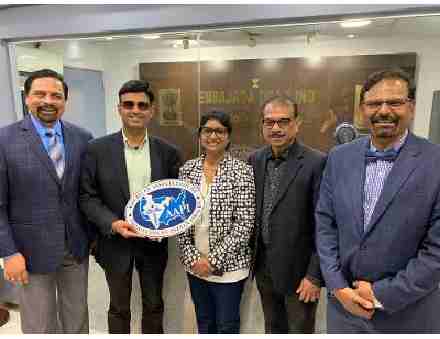 As the President of AAPI, Dr. Gotimukula will work towards “strengthening the organization’s mission, encourage participation of more young physicians, develop the best communications platforms for Indian American Physicians and keep the members well connected. “Patience, Perseverance, Passion and Positive Attitude,” are her mantra to be successful in leadership. She realizes that leadership is a skill and these attributes within her have been well recognized by the physician community locally and nationally.
As the President of AAPI, Dr. Gotimukula will work towards “strengthening the organization’s mission, encourage participation of more young physicians, develop the best communications platforms for Indian American Physicians and keep the members well connected. “Patience, Perseverance, Passion and Positive Attitude,” are her mantra to be successful in leadership. She realizes that leadership is a skill and these attributes within her have been well recognized by the physician community locally and nationally.
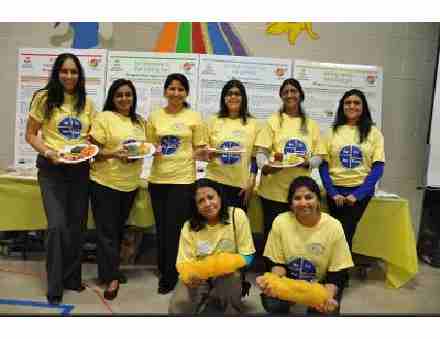 As a woman leader and as the elected leader of a diverse organization such as AAPI, Dr. Gotimukula is aware of the many challenges she is likely to encounter as AAPI’s President. “As leader of the largest physician ethnic nonprofit organization with diverse cultures, yes, challenges are expected.” “On a personal note, time management, balancing career and family responsibilities,” will be challenging. Dr. Gotimukula plans to address them with proper communication, nurture team and engage BK members in problem solving. Being an anesthesiologist, profession has taught me the skills of multi-tasking and staying focused! Daily Meditation and physical exercise keep me energetic and productive until the last minute of my day. Being a woman, I have leaned into being compassionate, empathetic, persevering, patient, and resilient.
As a woman leader and as the elected leader of a diverse organization such as AAPI, Dr. Gotimukula is aware of the many challenges she is likely to encounter as AAPI’s President. “As leader of the largest physician ethnic nonprofit organization with diverse cultures, yes, challenges are expected.” “On a personal note, time management, balancing career and family responsibilities,” will be challenging. Dr. Gotimukula plans to address them with proper communication, nurture team and engage BK members in problem solving. Being an anesthesiologist, profession has taught me the skills of multi-tasking and staying focused! Daily Meditation and physical exercise keep me energetic and productive until the last minute of my day. Being a woman, I have leaned into being compassionate, empathetic, persevering, patient, and resilient.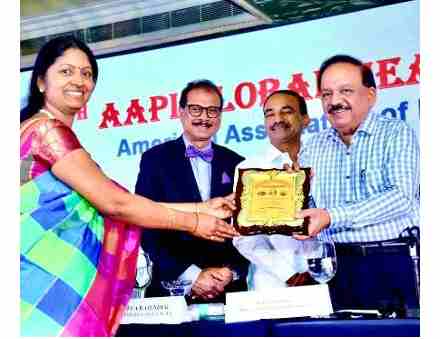
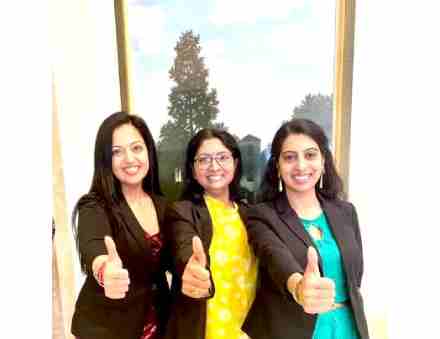
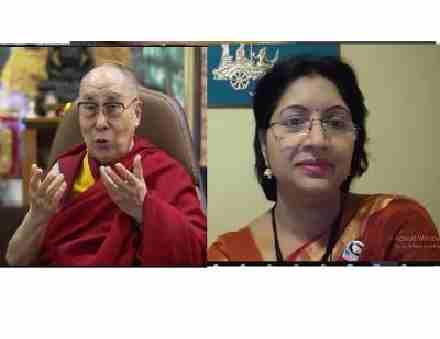 Her biggest achievement in life so far is “Being what I am today, a physician, a leader, and a humble human being and be able to give back to my society,” says Dr. Gotimukula. Among the goals for AAPI, the visionary woman leader says, “With the collaboration, cooperation and support of the Executive Committee, and the entire AAPI family, I want to build a strong support system to protect the IMG physicians and their issues and help with physician burnout. I will further the existing educational goals and charitable goals and engage member physicians to support these goals.” While dedicating her talents, skills, and experiences for the AAPI family, which she has come to call as her own, Dr. Gotimukula says, “I am looking forward to get the best wishes & blessings from our members in my pursuit to lead this prestigious organization and do the best to our physician community.”
Her biggest achievement in life so far is “Being what I am today, a physician, a leader, and a humble human being and be able to give back to my society,” says Dr. Gotimukula. Among the goals for AAPI, the visionary woman leader says, “With the collaboration, cooperation and support of the Executive Committee, and the entire AAPI family, I want to build a strong support system to protect the IMG physicians and their issues and help with physician burnout. I will further the existing educational goals and charitable goals and engage member physicians to support these goals.” While dedicating her talents, skills, and experiences for the AAPI family, which she has come to call as her own, Dr. Gotimukula says, “I am looking forward to get the best wishes & blessings from our members in my pursuit to lead this prestigious organization and do the best to our physician community.”
 “It was like our worst fears being confirmed,” says
“It was like our worst fears being confirmed,” says 


 Mindy Kaling, George Clooney, Don Cheadle, Eva Longoria and Kerry Washington are among several Hollywood personalities who will come together to co-found a film school for underserved communities next year. The institution, named Roybal School of Film and Television Production, will provide academic as well as practical lessons, and access to Hollywood stalwarts and professionals, besides an internship initiative, according to variety.com.
Mindy Kaling, George Clooney, Don Cheadle, Eva Longoria and Kerry Washington are among several Hollywood personalities who will come together to co-found a film school for underserved communities next year. The institution, named Roybal School of Film and Television Production, will provide academic as well as practical lessons, and access to Hollywood stalwarts and professionals, besides an internship initiative, according to variety.com.
 Gender difference is intimately stitched into the fabric of humanness. At
Gender difference is intimately stitched into the fabric of humanness. At 



 The congregation, however, followed church laws to give her an opportunity to appeal to the Vatican and continue in the convent. The nun appealed against the congregation’s dismissal order before the Vatican’s Congregation for Oriental Churches, which rejected her appeal on Oct. 11, 2019.But she refused to move out of the convent and within a fortnight appealed to the Supreme Tribunal, the Vatican’s highest appeal court, against her dismissal. The appeal now stands rejected and the Vatican has confirmed her dismissal, said Sister Ann Joseph, the congregation’s superior general, in a June 12 letter.
The congregation, however, followed church laws to give her an opportunity to appeal to the Vatican and continue in the convent. The nun appealed against the congregation’s dismissal order before the Vatican’s Congregation for Oriental Churches, which rejected her appeal on Oct. 11, 2019.But she refused to move out of the convent and within a fortnight appealed to the Supreme Tribunal, the Vatican’s highest appeal court, against her dismissal. The appeal now stands rejected and the Vatican has confirmed her dismissal, said Sister Ann Joseph, the congregation’s superior general, in a June 12 letter.
 Speaking on her first overseas trip since taking office, she said the journey north was dangerous and would mainly benefit people smugglers. Her comments, during a press conference after she met privately with Giammattei, underscored the challenge that remains even as Harris engages in substantive talks with the Guatemalan and Mexican presidents during a three-day visit to the region this week, her first foreign trip as vice president.“I want to emphasize that the goal of our work is to help Guatemalans find hope at home,” Harris said. “At the same time, I want to be clear to folks in this region who are thinking about making that dangerous trek to the United States-Mexico border: Do not come, do not come.”
Speaking on her first overseas trip since taking office, she said the journey north was dangerous and would mainly benefit people smugglers. Her comments, during a press conference after she met privately with Giammattei, underscored the challenge that remains even as Harris engages in substantive talks with the Guatemalan and Mexican presidents during a three-day visit to the region this week, her first foreign trip as vice president.“I want to emphasize that the goal of our work is to help Guatemalans find hope at home,” Harris said. “At the same time, I want to be clear to folks in this region who are thinking about making that dangerous trek to the United States-Mexico border: Do not come, do not come.”
 “I just feel a kind of relieved and happy because I am not looking for breaking record. I just [wanted to] challenge myself,” Ms Tsang told media in Nepal’s capital Kathmandu on Sunday, after safely returning from Everest.Last Sunday, Arthur Muir, 75, became the oldest American to climb the mountain, while 46-year old Zhang Hong of China became the first blind man from Asia to complete the feat on Monday.
“I just feel a kind of relieved and happy because I am not looking for breaking record. I just [wanted to] challenge myself,” Ms Tsang told media in Nepal’s capital Kathmandu on Sunday, after safely returning from Everest.Last Sunday, Arthur Muir, 75, became the oldest American to climb the mountain, while 46-year old Zhang Hong of China became the first blind man from Asia to complete the feat on Monday.
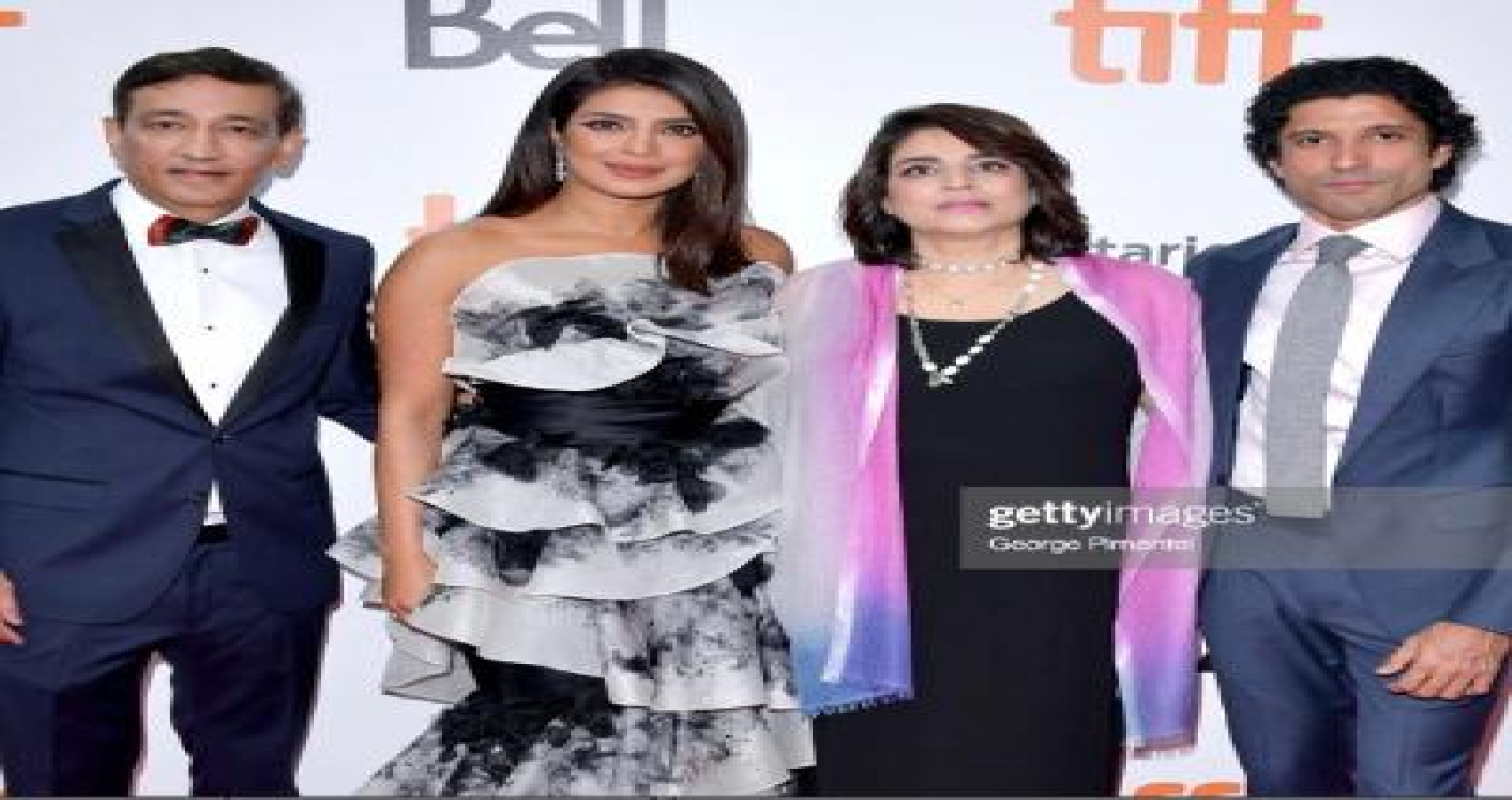
 Her life has been made into a powerful movie called ‘Sky is Pink’ with Priyanka Chopra Jonas , Farhan Akhtar and ZairaWasim playing lead roles. The movie is now streaming on Netflix. It was inspiring to share Niren’s journey on Chai with Manju. His input in the food and hospitality industry were very insightful including leading Panera profitably in tough Covid times. His advice to those looking to invest in India is worth a watch. His emotional appeal to donate bone marrow to save lives is important as Indian lag behind and his daughter’s life would have been saved with a timely bone marrow donation I loved his three step recipe to make dreams come true and to live life fully describing life as an unfinished painting.
Her life has been made into a powerful movie called ‘Sky is Pink’ with Priyanka Chopra Jonas , Farhan Akhtar and ZairaWasim playing lead roles. The movie is now streaming on Netflix. It was inspiring to share Niren’s journey on Chai with Manju. His input in the food and hospitality industry were very insightful including leading Panera profitably in tough Covid times. His advice to those looking to invest in India is worth a watch. His emotional appeal to donate bone marrow to save lives is important as Indian lag behind and his daughter’s life would have been saved with a timely bone marrow donation I loved his three step recipe to make dreams come true and to live life fully describing life as an unfinished painting.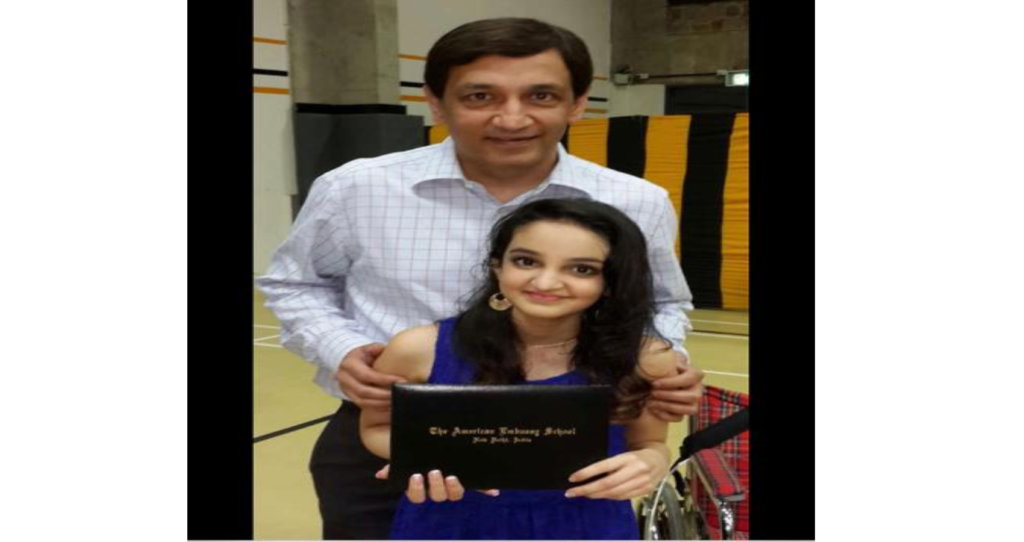 He holds a bachelor’s degree in Economics from St. Stephen’s College in Delhi, an MBA in marketing from the University of Delhi, and also completed the Advanced Management Program at Harvard Business School.One of the best parts of the interview with Dr. Manju Shethwas to watch him sing. Music plays a huge role in his life. Indeed, he is a rockstar CEO.
He holds a bachelor’s degree in Economics from St. Stephen’s College in Delhi, an MBA in marketing from the University of Delhi, and also completed the Advanced Management Program at Harvard Business School.One of the best parts of the interview with Dr. Manju Shethwas to watch him sing. Music plays a huge role in his life. Indeed, he is a rockstar CEO.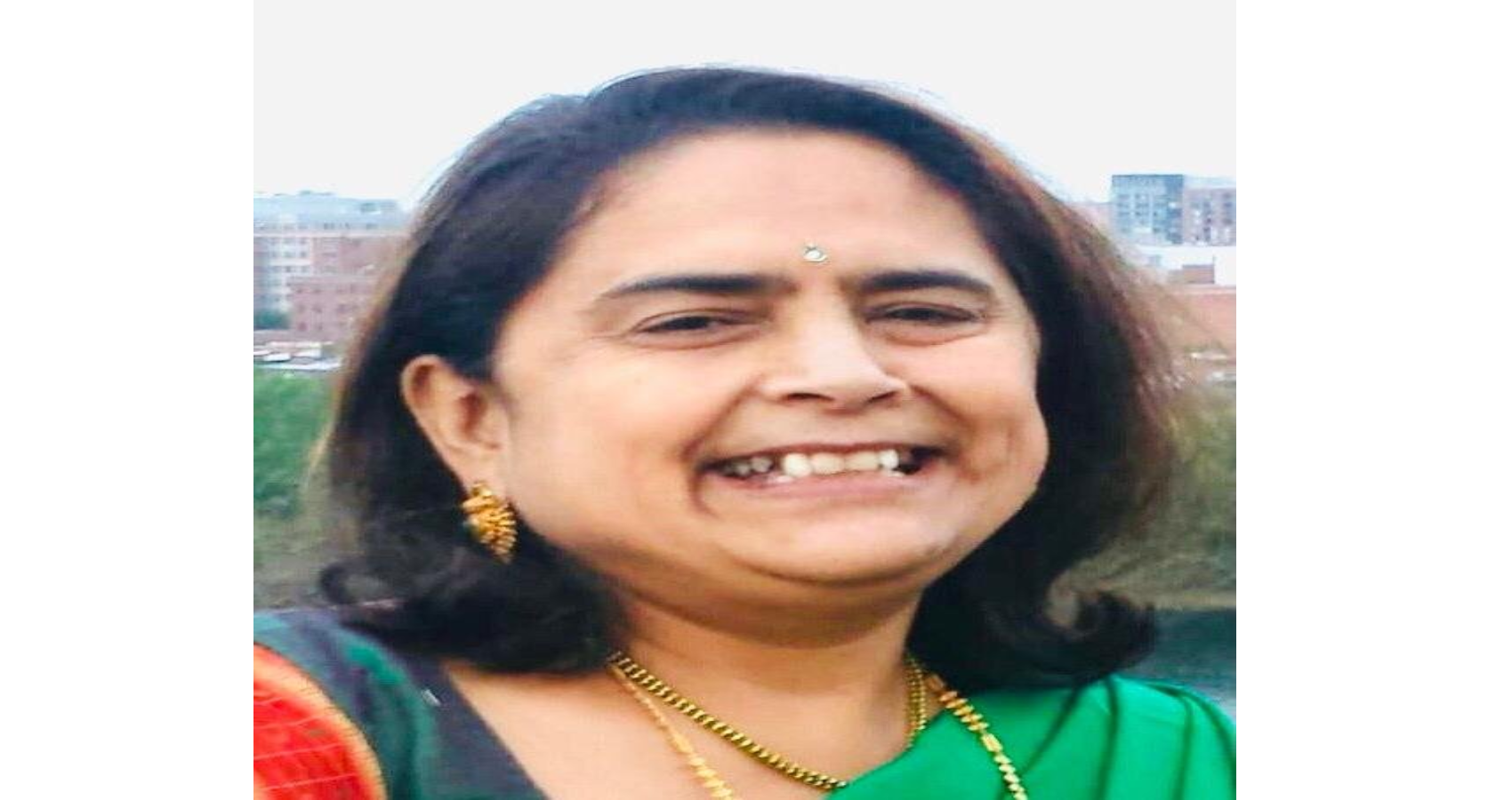
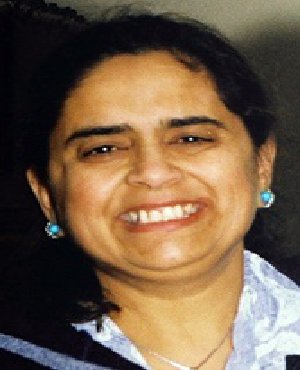 My childhood was mostly normal with one main exception: Since both my parents did theater, I spent a lot of evenings alone at home with domestic help or at the rehearsals with one of them. The weekends again would be spent backstage or dozing in the auditorium. Living in an apartment complex eventually introduced me to lots of friends, whose houses became another good option for weekends. When they toured for plays, I spent a lot of time with my maternal grandparents. While I didn’t see my parents often, being surrounded by people 24/7 definitely gave me a supportive environment to grow up in. Although I grew up in a vibrant theater background, the theater bug did not really bite till much later in life after I met my Husband Chandu Shah, who is also from a similar background.
My childhood was mostly normal with one main exception: Since both my parents did theater, I spent a lot of evenings alone at home with domestic help or at the rehearsals with one of them. The weekends again would be spent backstage or dozing in the auditorium. Living in an apartment complex eventually introduced me to lots of friends, whose houses became another good option for weekends. When they toured for plays, I spent a lot of time with my maternal grandparents. While I didn’t see my parents often, being surrounded by people 24/7 definitely gave me a supportive environment to grow up in. Although I grew up in a vibrant theater background, the theater bug did not really bite till much later in life after I met my Husband Chandu Shah, who is also from a similar background.
 Sonal Shah, the foundation’s president, and TAAF board members were at the White House, where they briefed administration officials, including domestic policy adviser Susan Rice. They discussed how the foundation plans to spend the $1.1 billion in donations to fight back against hate crimes directed at these communities, according to a statement from the foundation. Biden and Vice President Kamala Harris dropped by the meeting to express their support, the foundation said.
Sonal Shah, the foundation’s president, and TAAF board members were at the White House, where they briefed administration officials, including domestic policy adviser Susan Rice. They discussed how the foundation plans to spend the $1.1 billion in donations to fight back against hate crimes directed at these communities, according to a statement from the foundation. Biden and Vice President Kamala Harris dropped by the meeting to express their support, the foundation said.
